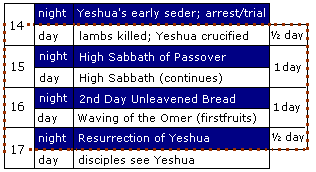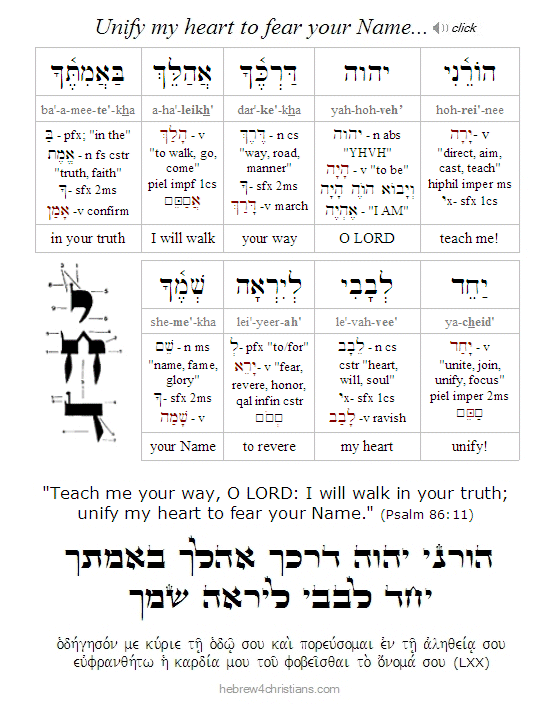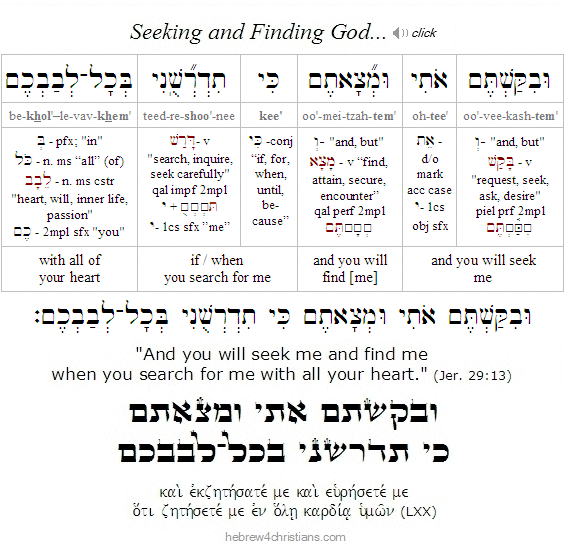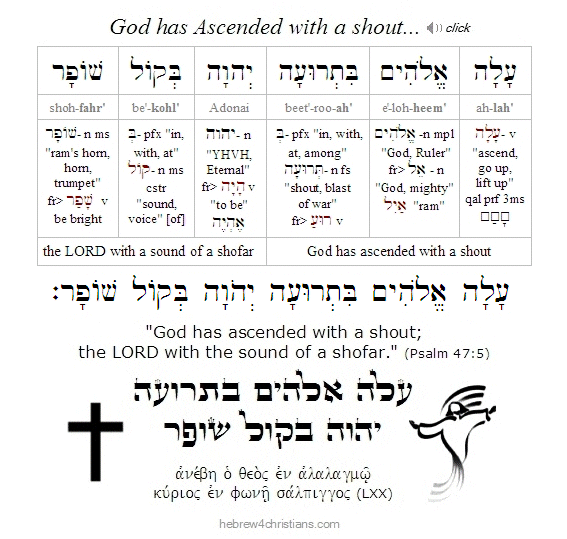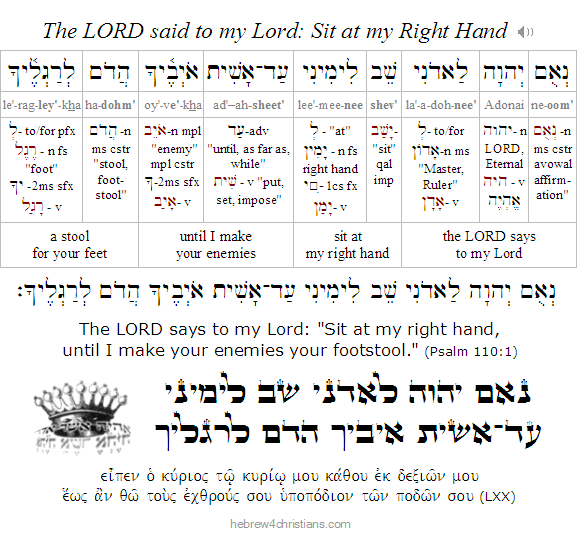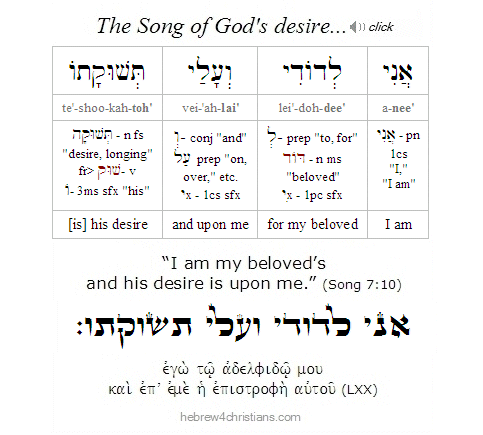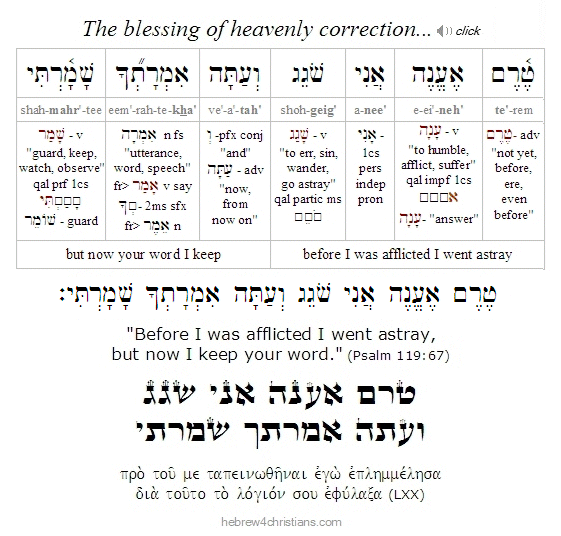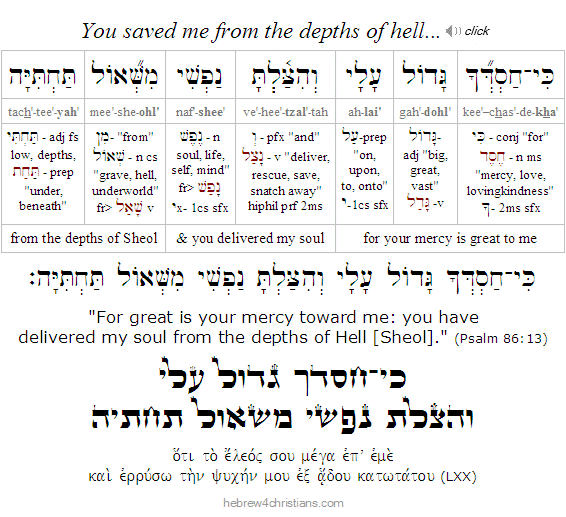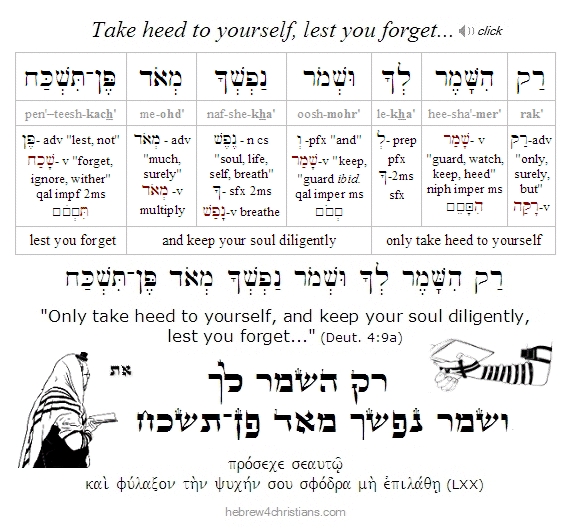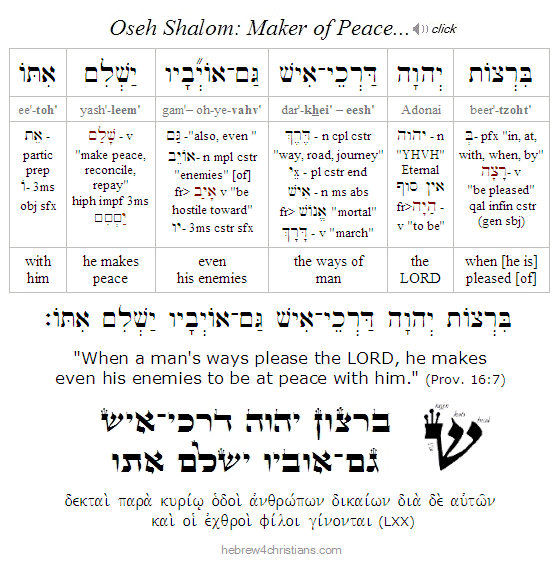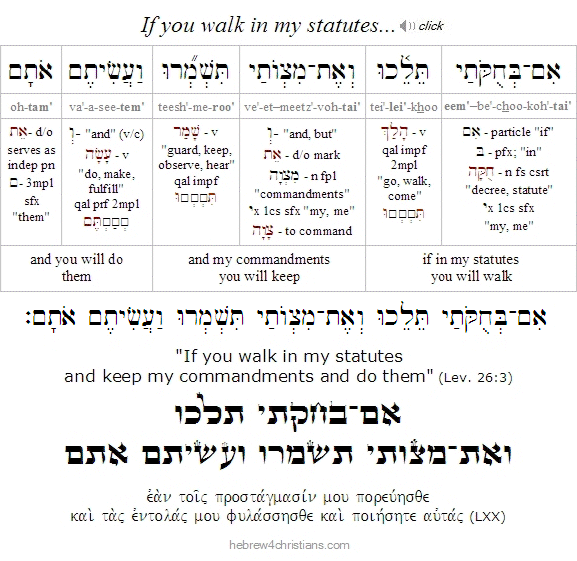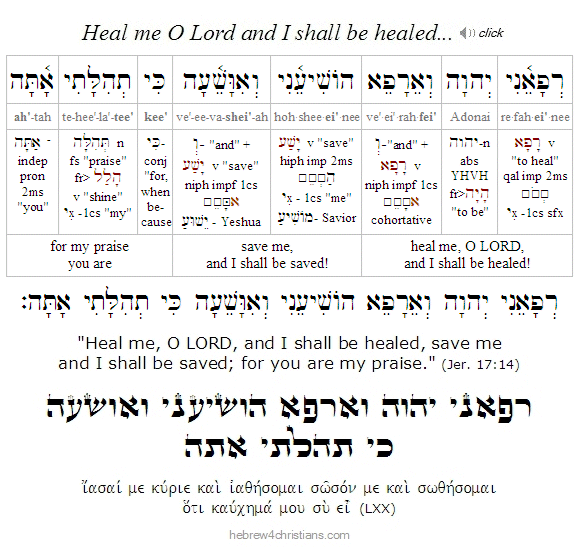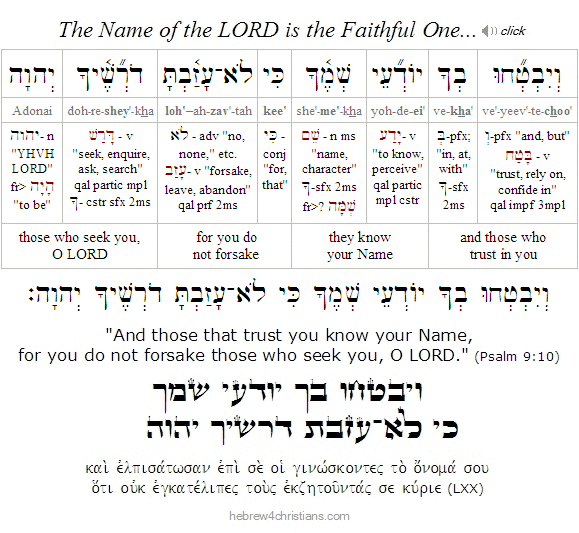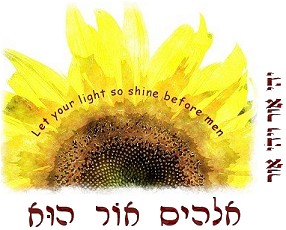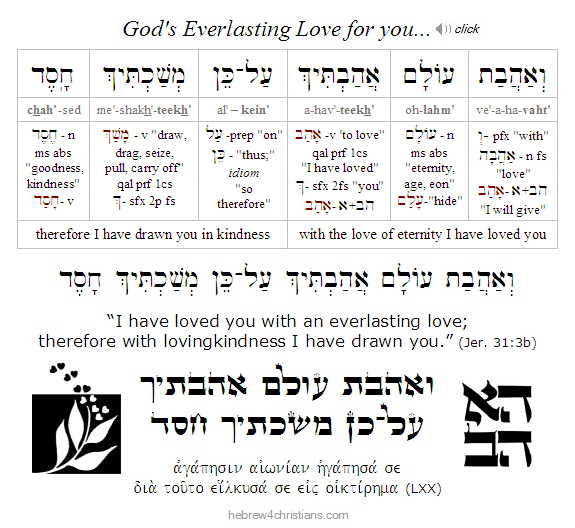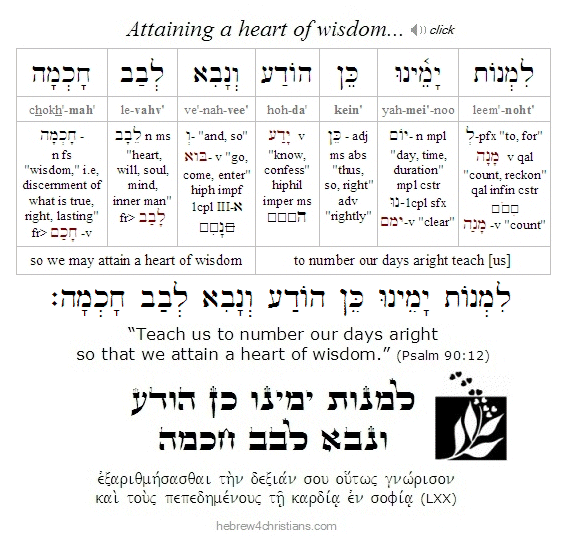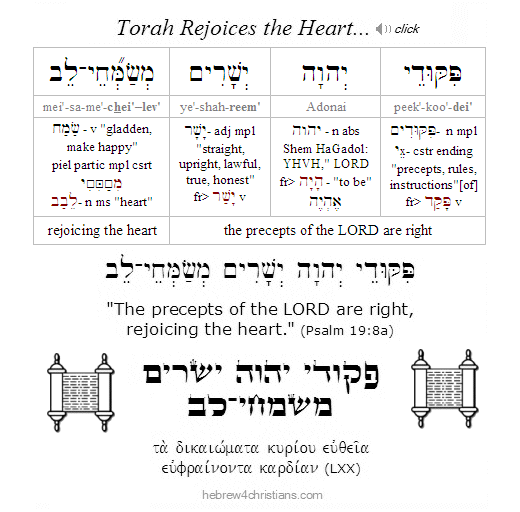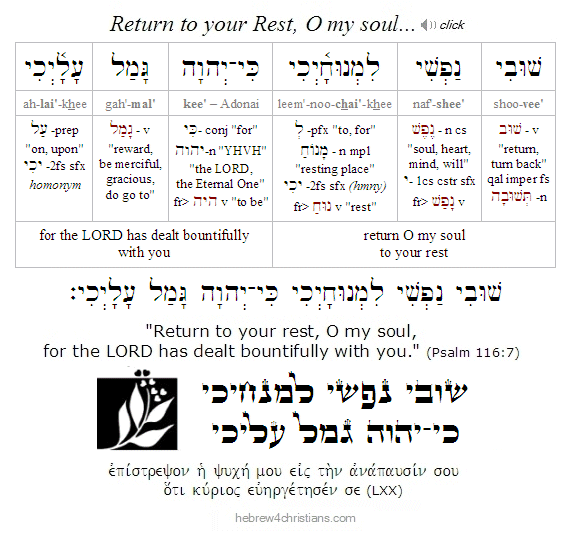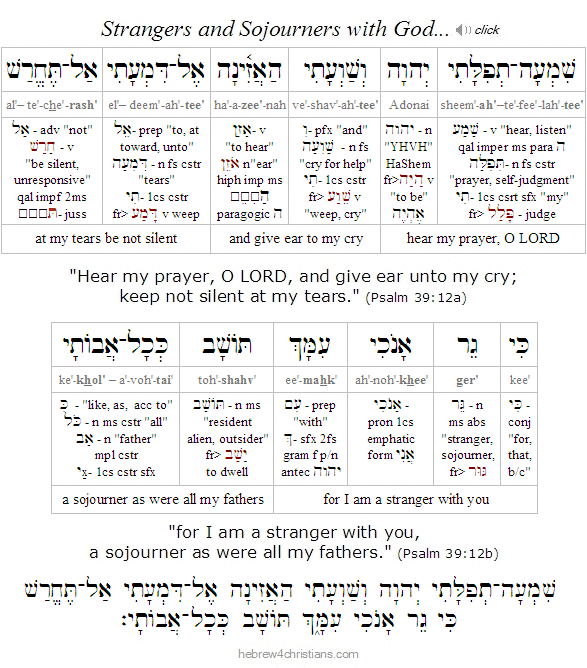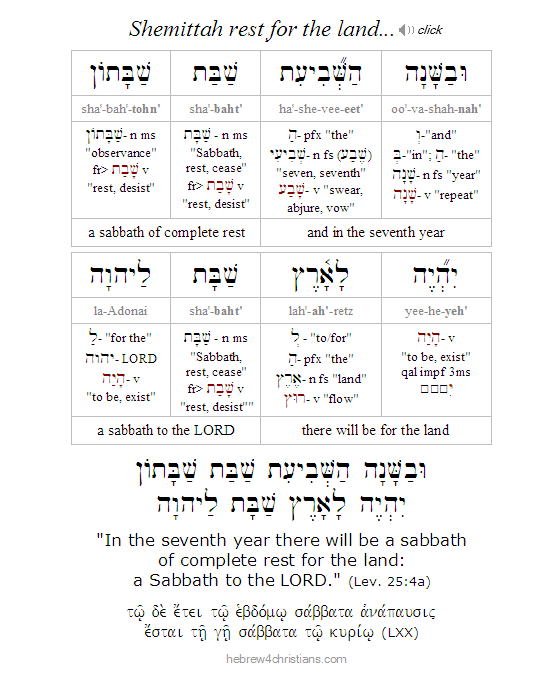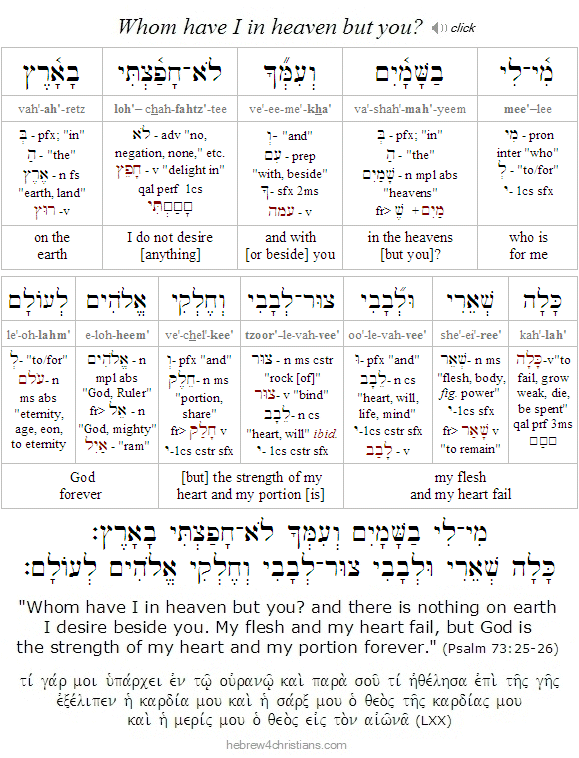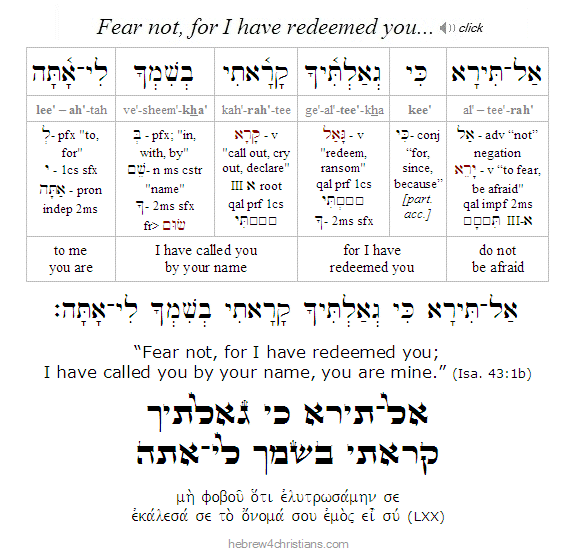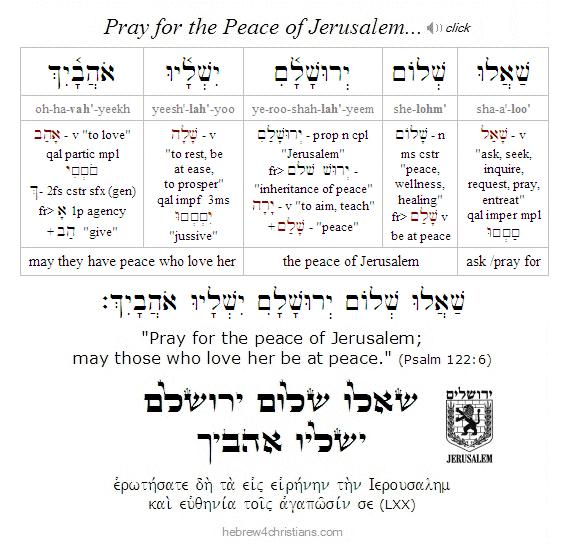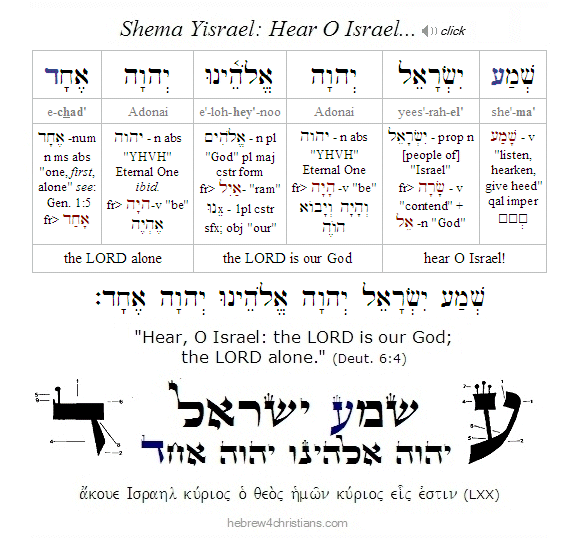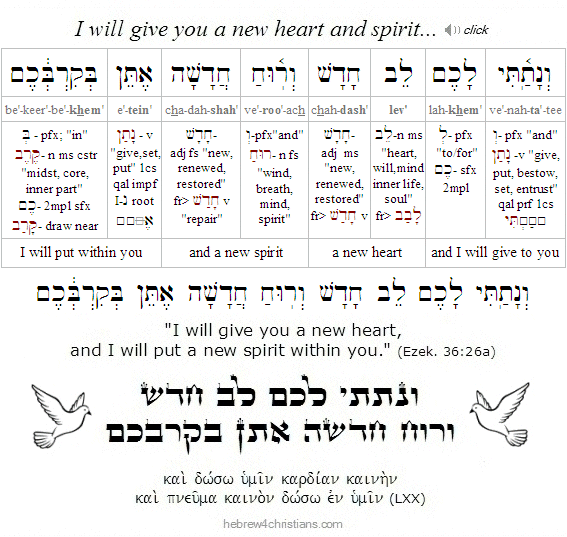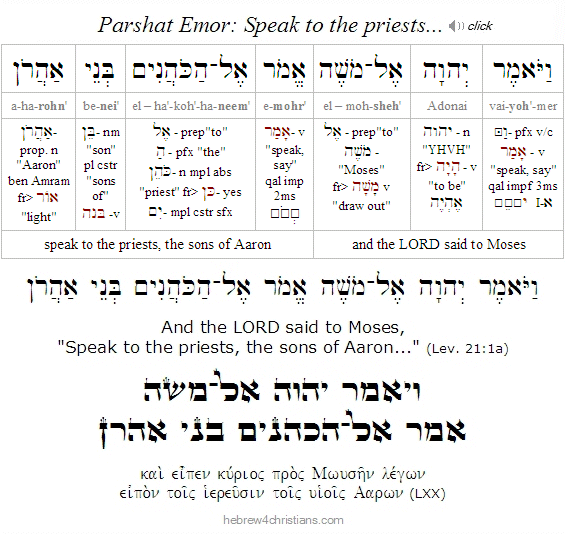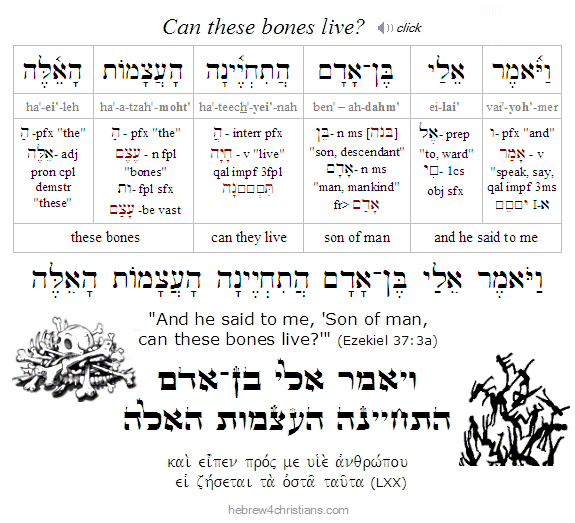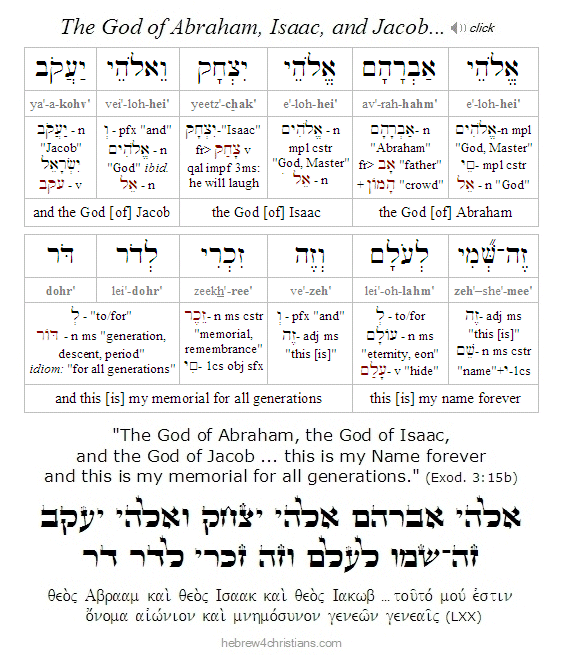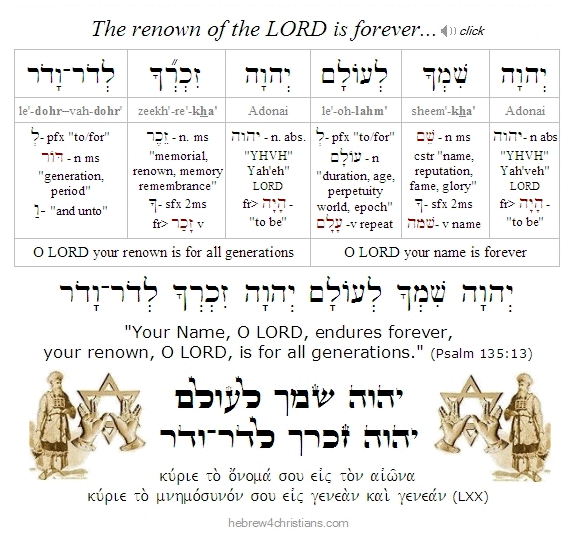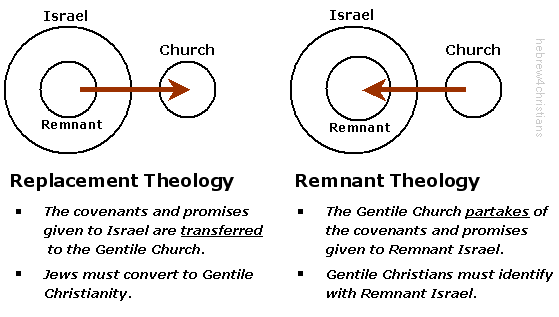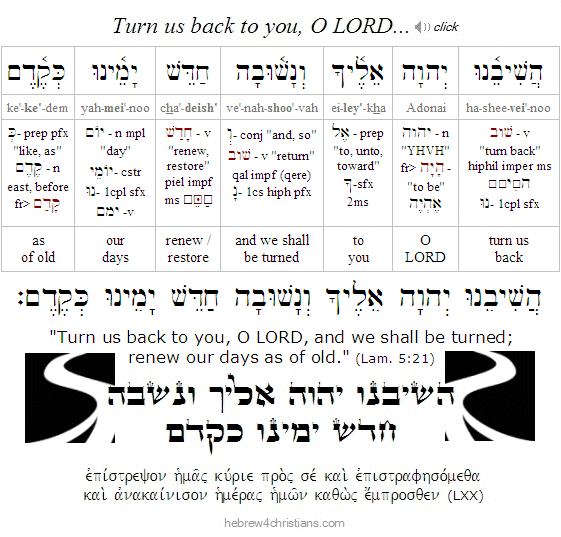|
Jewish Holiday Calendar
For May 2024 site updates, please scroll past this entry....
The Torah divides the calendar into two symmetrical halves: the Spring and the Fall, indicating the two advents of Messiah. The Biblical year officially begins during the month of the Passover from Egypt (called Rosh Chodashim, see Exod. 12:2), and the spring holidays of Passover, Unleavened Bread, and Firstfruits both recall our deliverance from Egypt and also our greater deliverance given by means of the death, burial, and resurrection of the Messiah, the great Passover Lamb of God. The holiday of Shavuot (i.e., "Pentecost") both commemorates the revelation of the Torah at Sinai as well as the revelation of the Ruach HaKodesh (Holy Spirit) at Zion, in fulfillment of the promise given by our Lord....
The intermediate months of summer end with the advent of the sixth month of the calendar, the month of Elul, which recalls the time Moses interceded on behalf of Israel after the sin of the Golden Calf. To commemorate this time of our history, we likewise focus on teshuvah (repentance) in anticipation of Rosh Hashanah and especially in anticipation of Yom Kippur, the great "Day of Atonement." In Jewish tradition the 30 days of Elul are combined with the first ten days of the seventh month (called the "Days of Awe") to set apart "Forty Days of Teshuvah" leading up to the Day of Forgiveness for Israel. Immediately following Yom Kippur, the mood changes as we begin preparing for a joyous week-long celebration called Sukkot (i.e., "Tabernacles") that concludes with the holiday of Simchat Torah.
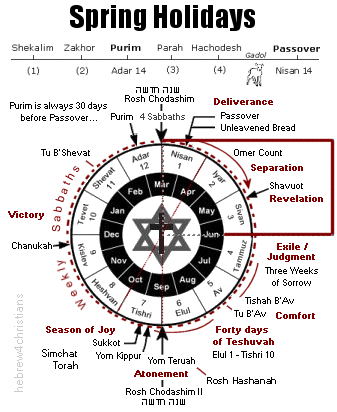 |
The Spring Holidays:

"This month (i.e., the month of Nisan in the spring) shall be for you the beginning of months (i.e., rosh chodashim: רֹאשׁ חֳדָשִׁים). It shall be the first month of the year for you" (Exodus 12:2). When God said Nisan 1 marked the "beginning of the year" (החודש הראשון של השנה), he was saying that all the other holidays were to be understood in relation to it. It is therefore called "Chodesh Ha'yeshuah" (חודש הישועה), the "Month of Salvation."
The Spring holidays (חגי האביב) then provide a portrait of the death, burial, and resurrection of the Messiah: Yeshua was crucified on erev Pesach (during the time of the sacrifice of the Passover lambs), buried during Chag Hamotzi (the festival of Unleavened Bread), and was resurrected from the dead on Yom Habikkurim (the Day of Firstfruits). Fifty days after Passover, on the climactic holiday of Shavuot (i.e., the feast of Pentecost), the Ruach HaKodesh (Holy Spirit) fell on the believers in fulfillment of the promise given by our Lord. Note that the giving of the Holy Spirit occurred precisely according to the calendar countdown given in the Torah (Lev. 23:15-16), and that it occurred after the resurrection of Yeshua -- just as our Messiah foretold (John 16:7; Acts 1:6-8, 2:1-4). This proves that the feasts of the LORD (מוֹעדי יהוה) were not abolished after the crucifixion. The meaning of the gospel is prefigured in the holidays given in Torah. See Luke 24:27, 24:44; John 5:46; Acts 26:22, etc.
![Spring Holiday Timeline (H4C]](../../../../About_HFC/Site_News/Archive-2024/roshchodeshim-line.gif) |
Kindly note that in accordance with both Torah and Jewish tradition, the following holiday dates begin at sundown (ויהי־ערב ויהי־בקר; Gen. 1:5):
- Month of Adar II (Sat. March 9th [eve]) - Mon. April 8th [day])
Dates for Passover Week 2024:
Free Seder Guide
- Month of Nisan (Mon. April 8th [eve] - Tues. May 7th [day])
- Month of Iyyar (Tues. May 7th [eve] - Thurs. June 6th [day])
- Month of Sivan (Thurs. June 6th [eve] - Sun. June 18th [day])
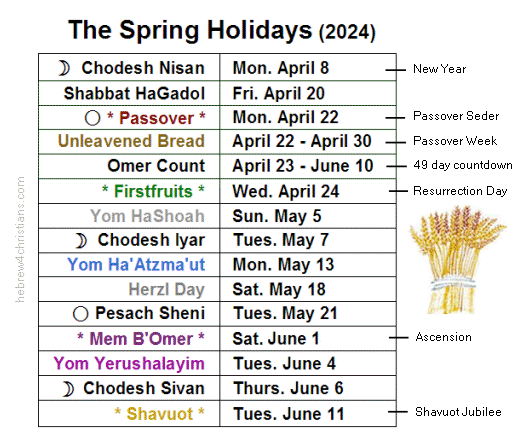 |
Note: For more information, see the Calendar Pages....
May 2024 Updates
Note: If any page content appears to be missing, please refresh the page...
Refusing the Voice of Doubt...

05.31.24 (Iyyar 23, 5784) If you have read the gospels, you are surely familiar with a disciple of Yeshua named "Thomas Didymus," sometimes referred to as "Doubting Thomas." Recall that when Thomas had first heard the testimony of the other disciples that Yeshua was raised from the dead, he was apprehensive and vowed to suspend his judgment until he had sufficient evidence to believe the matter for himself: "Unless I see the wounds from the nails in his hands, and put my finger into the wounds from the nails, and put my hand into his side," he said, "I will never believe it!" (John 20:25). You know the rest of the story. When Yeshua later appeared to the disciples and this time Thomas was present, he said to him: "Put your finger here, and examine my hands. Extend your hand and put it into my side. Do not be become faithless, but believe" (John 20:27).
You might think this lesson should be obvious enough for us: "Don't doubt, but believe; don't harden your heart; don't withhold your hope; don't trust in human reason more than the testimony of faith; in other words, don't act like Thomas did! And yet today it has become fashionable to "celebrate doubt" and to "deconstruct" the testimony of our fathers. Instead of venerating the Scriptures that tell of the ordained plan of God to send Yeshua to die for our sins (Gen. 3:15; Isa. 53:1-12; John 3:16; Acts 3:18; 1 Pet. 1:20; Heb. 1:1-3, etc.), false teachers have arisen to "tickle the ears" of those who do not want to believe: "For the time is coming when people will not endure sound teaching, but having itching ears they will accumulate for themselves teachers to suit their own passions, and will turn away from listening to the truth and wander off into myths" (2 Tim. 4:3-4). This is that time, friends. Instead of abhorring doubt as the sin against faith, people are now encouraged to question everything they thought they knew about God, truth, life, and death - to break free from their theological biases - so that their minds will be opened and their hearts set free from hidebound and "coercive" ways of understanding. Today's "Christian skeptics" deny the authority of the Word of God, reject the Biblical narrative that tells the gospel message about the meaning of life, and are generally skeptical regarding the possibility of doing theology at all. It is not what the Bible says that is important, they say, but how you read it that makes the difference. Surprise! The Bible is more about you than anything else! Affecting humility and sincerity, these dissemblers claim that being skeptical about "traditional assumptions" and disdaining "doctrines of dogmatism" constitute an improved and more authentic way of living the Christian life...
Now while it is true that we should be honest in our convictions and humble of heart, the way of Yeshua is not to "suspend" judgment (epochē) regarding matters of knowledge and truth (John 17:3). The starting point of faith is not the "I doubt, therefore I am" of the philosophers, but rather "I am loved, therefore I am" of the LORD. Philosophical (or rational) reflection approximates the truth of faith but is always at a remove from what faith really is all about, namely, a passionate inner conviction of what is most real "You shall love the LORD your God with all your heart, and with all your soul, and with all your being" is the antithesis of tentative reasoning that dispassionately withholds judgment in the reality of love. The message of the gospel is: "Find God or die." As long as "truths" do not cut us to the heart and to the bone, we have a secret disdain for them...
The epistemology of Yeshua centers on trusting God by means of the heart. As you believe, so you will know: "When you lift up the Son of Man, then you will know that I am he" (John 8:28). Doubt, on the other hand, steps back from faith by attempting to "understand" it. Paradoxically, the attempt to understand by means of answering doubt's questions leads to second-order questions and doubts, and so on, ad infinitum, so that the "way of reason" becomes vertiginous, unstable, uncertain, and ultimately nihilistic. An attitude of skepticism is both unstable and "unlivewithable," a sickness of the spirit that has no ground of being.
Indeed the epistemology of the so-called postmodern world (or the "metamodern" world as it is now sometimes pretentiously called) is notorious for failing to explain anything of substantive meaning at all.... Everything is left unexplained; no narrative is permitted (except the narrative that there is no narrative, of course); no logical connections to a "real world" are sound; there is no "story" to our lives, and therefore postmodernism entirely misses the essential point of everything. As such, it is a form of nihilism. And it is also a form of sophistry. It is one thing, after all, to affect philosophical sagacity, but that's a "rich man's game," played in places of comfort, ease, and the luxury of speculative indulgences. The message of the gospel, however, is for the poor in spirit, for the heavy laden, the downcast, the hurting, and the lost. And since it does nothing to feed the ego by flattering itself, the gospel is invariably despised by the rich of this world....
It's been said that there are two ways to be fooled. One is to believe what isn't true; the other is to refuse to believe what is... Doubt is a type of fear, a cautionary or "protective attitude" that deems it better to refrain from believing what may be untrue than to believe what may be true. For the doubter, the risk of being wrong outweighs any benefit of being right, and therefore the skeptic lives "suspended in midair."
The life of faith, however, is decisive, a matter of the will, and therefore God commands us to trust, obey, and to know the truth. The Lord calls out to us in the storm saying, "Take heart. It is I; be not afraid" (Matt. 14:27). When Peter answered the call and attempted to walk across the stormy waters, he lost courage and began to sink, but Yeshua immediately took hold of him, saying, "O you of little faith, why did you doubt (lit., think twice)?" Faith is "lived forward" in assurance and unwavering conviction of God's reality and blessing. "But without faith it is impossible to please Him, for whoever would draw near to God must believe that he exists and that he rewards those who seek him" (Heb. 11:6). A doubting heart cannot please God because God is known in relationship, but questioning God's love - drawing near and then stepping back - makes genuine relationship impossible. If we are ambivalent in our resolve to believe, regardless of whatever we may wager to hope, we will be unable to stand still long enough to receive the blessing!
The Scriptures warn that a "double minded person is unstable in all his ways" (James 1:8). The word translated "double minded" is dipsuchos (δίψυχος), a word formed from δίς, "twice" and ψυχή, "soul." The word describes the spiritual condition of having "two souls" that both want different things at once. It is therefore a state of inner contradiction, of having two separate minds holding contradictory thoughts. A doubting heart is shattered, fragmented, and multiple. The inner "dialog" of the doubting heart is "legion" as various voices vie for control, since there is no unifying power to unify the will (Psalm 86:11). Note that "doubting" Thomas' was called "Didymus" (Δίδυμος), meaning "twofold" or "twain."
So being double minded makes us "unstable in all our ways." Such a cross-eyed approach leads to disorientation and confusion. The Greek word used to describe being "unstable" (ἀκατάστατος) is the same word used to translate being "storm-tossed and not comforted" in Isaiah 54:11. The image of a ship being tossed in the sea pictures a state of distress and peril. Interestingly, the description of being "not comforted" is lo nuchamah (לא נֻחָמָה), which comes from the very word translated as "repent" or "regret" (nacham). When we are double-minded, we are "storm tossed" and unable to experience the comfort that comes from genuine repentance. We are like "a wave of the sea that is driven and tossed by the wind" (James 1:6). Being "single minded" (ἁπλοῦς) on the other hand, concentrates the will and produces wholeheartedness, conviction, stability, inner peace, and genuine character. "Purity of the heart is to will one thing" (Psalm 27:4). No longer wavering in doubt or engaged in duplicity, the heart is able to commune with God and to receive the blessing.
Doubt is a form of torment, an unsettled state of soul that is forever drawing close in hope yet pushing back in fear, lost within itself with no exit, with no means to escape the dread that is behind the rationalizations, the unending questions, the constant hunger for love, the sense of alienation, only to abandon the heart's great need. Being without faith is the ultimate form of human tragedy, a self-imposed prison, a room inside of hell. In this connection Blaise Pascal wrote: "I can feel nothing but compassion for those who sincerely lament their doubt, who regard it as the ultimate misfortune, and who, sparing no effort to escape from it, make their search their principal and most serious business. But as for those who spend their lives without a thought for this final end, I view differently. This negligence in the matter where they themselves, their eternity, their all are at stake, fills me more with irritation than pity: yea, it astounds and appalls me." (Pascal: Pensees).
Of course questioning has a place in our thinking, in matters of prudence and science, for example, but when it comes to relating to God these modes of thinking are inapplicable, since metaphysically God is not a "what" but a "who," and that implies that knowing God is inherently personal, "subjective" (i.e., inward), and attained by means of faith. The truth for which one lives and dies is never approached "objectively," that is, as something of subjective indifference, but involves all of the heart and soul. As Kierkegaard puts it: "There are two ways of reflection. For objective reflection, truth becomes an object, and the point is to disregard the knowing subject (the individual). By contrast, in subjective reflection truth becomes personal appropriation, a life, inwardness, and the point is to immerse oneself in this subjectivity" (Concluding Scientific Postscript). Kierkegaard did not deny that objective truth ("science") had its place but maintained that such knowledge only acquired meaning and "weight" when appropriated inwardly. Knowledge apart from value is indifferent; value apart from knowledge is blind... Indeed, the very value we place on knowledge indicates that it is more basic than knowledge itself. "Faith is the contradiction between the infinite passion of inwardness and objective uncertainty. In other words, if I apprehend God objectively, I do not have faith; but because I cannot do this, I must have faith" (for more on this see "Passion and Paradox"). Each person inescapably chooses to live according to the passion of their own heart, and that is the truth that marks that person's life...
Yeshua asks the uncertain heart, "O you of little faith, why do you doubt?" (Matt. 14:31). Thomas had a skeptical mindset, a doubting heart, perhaps because he was influenced by Hellenistic thinking of his time. Recall that in the "Upper Room" when Yeshua spoke with his disciples during their last Passover together, Thomas questioned Yeshua's promise that he was going to go and prepare and place for them, and he wondered what Yeshua meant when he said the disciples knew where he was going (John 14:1-5). Yeshua replied to Thomas by saying "I am the way, the truth, and the life, no one comes to the Father without me" (John 14:1-6). Thomas' doubt had blinded his heart to the very reason for Yeshua's sacrificial death and ministry! Likewise Thomas later refused to believe that Yeshua was resurrected from the dead and insisted on getting confirmation first: he wanted to examine the body of the Lord so that he could judge whether it was really true (John 20:25). As it happened, however, Thomas was given some time to ponder the testimony of his friends. Perhaps he might have recalled how Yeshua repeatedly foretold of his crucifixion and resurrection (see Matt. 16:21; 17:23; Mark 10:32; Luke 9:22; etc.), and perhaps he was beginning to turn away his doubt to believe the miracle. A week later Yeshua appeared again to the disciples, and this time Thomas was present. Turning to him Yeshua said: "Put your finger here, and examine my hands. Extend your hand and put it into my side." Here Yeshua appeared to go along with Thomas' demand for empirical evidence, but instead he rebuked his lack of faith: "Do not be faithless, but believe" (John 20:27). Thomas' blindness was then taken way as he exclaimed: "My Lord and My God." Yeshua then asked him: "Have you believed because you have seen me? Blessed are those who have not seen and yet have believed" (John 20:29). It is not those who see in order to believe that are blessed, but those who have not seen and yet believe. A special blessing is given to those who believe in order to see - to those who do not need evidence or "proof" before they will believe.
So seeing is not believing, despite the old adage to the contrary. Just as the Israelites saw innumerable miracles at the time of the Exodus, the ten plagues upon Egypt, the splitting of the sea and the overthrow of Pharaoh's army, the giving of manna from heaven and water from the rock, the pillar of divine fire that led them to Sinai to become God's people and to be in covenant with him, and so on, nonetheless later, in a time of testing, they had the effrontery to ask whether God was really with them or not (see Exod. 17:1-7). Likewise when crowds of people - including the respected religious leaders of his day - witnessed astounding miracles of Yeshua, such as giving sight to a man born blind, the healing of the lame and the lepers, and even raising Lazarus from the dead, many still refused to believe in him, again demonstrating that seeing miracles is not sufficient for the heart to believe. "This is an evil generation: they seek a sign; and there shall no sign be given it, but the sign of Jonas the prophet" (Luke 11:29). Faith itself is the miracle, and therefore evidence for faith is not found by means of the natural, but by means of God's Spirit.
So we relate to the Living God by faith, and like father Abraham this means we must not doubt or waver in our connection with him. "No unbelief made him waver concerning the promise of God, but he grew strong in his faith as he gave glory to God, fully convinced that God was able to do what he had promised, and that is why his faith was "counted to him as righteousness" (Rom. 4:20-22).
However, when doubt arises within the mind (and it will, if we are earnest), understand it as temptation to return to the double-mindedness of despair. We must therefore renew our minds by resolving to trust in God, especially if we are tempted to qualify our resolution by seeking to understand. We take "every thought captive" to obey the Messiah. We cannot fight doubt by offering reasons, since the reasons themselves express a kind of doubt, and engaging in a debate with the voice of doubt leads to further doubt. Finding reasons to believe in God, to answer questions raised by doubt, is an downward vortex, since doubt rises against reason at every turn. The way out of this circle is to break the cycle - to silence the voice of doubt by making up your mind. "How long will you go limping between two different opinions? If the LORD is God, follow him; but if Baal, then follow him." As Kierkegaard says: "Offering to doubt reasons in order to kill it is like offering the tasty food it likes best of all to a hungry monster one wishes to eliminate. No... one must order it to shut its mouth and to that end keep quiet and offer no further reasons" (For Self-Examination).
Regarding the decision of faith, Blaise Pascal famously said "the heart has its reasons that reasons knows not of," which is to say "Enough! I believe!" Doubt is extinguished by an act of self-denial - taking up the cross - and receiving the miracle of the exchange (2 Cor. 5:21). Faith has its own energy and life and it needs no justification outside of itself, and indeed no justification outside of itself is possible. "The fear of the LORD is the beginning of wisdom" (Prov. 9:10). Faith is foundational to everything else.
So we must believe even when we suffer without explanation or reason. This again presents an occasion for self-denial. Again I quote Kierkegaard on this point: "When a person suffers then it seems as if the struggle were about justifying God... The person wants to reverse the relation, to make God the defendant, to make him the one from whom something is required... But right here is faith's struggle: to believe without being able to understand. And when this struggle of faith begins, the consciousness of guilt comes to the rescue... helping the believer not to doubt God but himself. Instead of the duplicity about thinking through the doubt, which is doubt's most dangerous appeal, the consciousness of guilt thunders 'Halt!'" (Upbuilding Discourses). Our struggle, in other words, is with ourselves, not with God, since our doubt derives from our own will which we love more than anything else. The struggle is to surrender in faith: "A Christian is a man of will who no longer wills his own will but with the passion of his crushed will wills what God wills" (Journals of Kierkegaard).
So there is a dual movement of the heart required by faith: negatively, denying the voice of doubt, and positively, abiding in the Messiah who is the Word of God (John 15:5). This is why we cover our eyes when we recite the Shema: we efface the present moment and its fallenness to affirm the unseen truth of God in all things. We press on in faith, looking for the unseen good and stoutly refusing to turn back to the vanity of despair. "In this way you become a knight who vanquishes all, disdaining all that the world possess, both its good and its evil, everything with which the devil can lure and entice or intimidate and threaten" (Luther). "When around you everything has become silent, solemn as a clear, starlit night, when your soul comes to be alone in the whole world, then before you there appears, not an extraordinary human being, but the eternal power itself, then the heavens open, and the 'I' chooses itself or, more correctly, receives itself. Then the personality receives the accolade of knighthood that ennobles it for an eternity" (Either/Or).
Someone might ask, how do we stop being "double-minded"? This is the essence of the problem, isn't it? How do we stop being of "two minds," experiencing that ambivalence of both wanting and not wanting something? In other words, how do we repent - both in the sense of "changing our minds" (metanoia) and in the sense of practically turning to God (teshuvah)? How do we find that purity of heart that wills one thing?
The antidote for having a "double mind" is explicitly given in the Scriptures: "Draw near to God and He will draw near to you, cleanse your hands, you sinners, and purify your hearts, you double-minded" (James 4:8). Note that the verb used in this verse ("draw near!") means to come close enough to touch someone or something. Understood in this light, we are encouraged to come so close to God that we are able to "touch" Him -- and to be touched by Him as well. Drawing near to God is God's way of drawing near to you... In other words, as you draw near to God, He will draw near and touch you.
In practical terms, here are some specific things we can do to "draw near to God so that He will draw near to you." First we can simply pray and earnestly cry out to God for help. "Lord I believe; help Thou my unbelief" (Mark 9:24). The LORD is not indifferent to our suffering and has promised to give us the Holy Spirit to help us. But genuine prayer requires honesty and confession (ὁμολογία), which means agreeing with the truth about your condition. This means, among other things, identifying the ways you have withdrawn from your relationship with God. Indeed, the word homologeo (ὁμολογέω) literally means "saying the same thing" - from ὁμός (same) and λόγος (word). There's little use trying to pretend before God or to rationalize your own double-mindedness before Him. God knows the number of hairs on your head; He surely knows the condition of your heart!
Second, we must vigorously challenge ideas that attempt to seduce us away from the truth and thereby divide our affections. We must learn to take "every thought captive" to Messiah and be on guard for subtle appeals to compromise (2 Cor. 10:5). If we find ourselves in a state of recurring temptation, we must examine the underlying assumptions that are at work in our thinking. If we dig deeper, we are likely to discover that we doubt that God cares for us, or we are fearful that God will not meet our needs. We must therefore counter such assumptions with God's revealed truth, and that means regularly studying the Scriptures to remind ourselves about what is real rather than what is illusory. We then can learn to look at life as it really is - a spiritual world, a "valley of decision," a corridor that irresistibly leads to the world to come. Each soul is on a journey to meet with God for judgment... God does not leave us comfortless. He has promised to never leave nor forsake those who trust in Him. We can set the LORD "always before us" (Psalm 16:8) and walk with Him during our sojourn here in this temporal world.
Third, we can practice our faith by keeping up with Torah study, observing Shabbat (and the other appointed times), enjoying fellowship with other believers, singing to worship music, giving tzedakah, ministering to others in need, etc. These are the mitzvot of our lives, the "works of love" (John 15:12). Our faith is not meant to be a "head trip" or an intellectual exercise: we are meant to live it out in the world. And as we live it, our faith itself becomes strengthened and authenticated (John 13:17). Just as loving others increases - not decreases - the love we ourselves have, so also with the practice of faith. The more we believe, the more we receive. The practice of our faith is upbuilding and encourages the inner resolve to be single-minded... "Upon three things the world does stand: upon the Torah and upon worship and upon acts of lovingkindness" (Pirkei Avot 1:2).
Finally, on a spiritual level what ultimately changes the heart is God's power of salvation, of course. "It is the Spirit who gives life; the flesh is of no avail" (John 6:63). This salvation is not simply freedom from the penalty of sin but freedom from sin's power. Often, however, we are slow to realize this, and God allows us to revisit the various "waste places" of our own lusts until we have become sick of ourselves -- "to the bones." We have to be willing "to give up our sickness." Usually that means that we must experience repeated failures until we have "learned from the heart" that the LORD - and the LORD alone - is our Healer and Deliverer. Heartache and despair can lead to "godly grief (λύπη) that leads to genuine repentance in our lives (2 Cor. 7:10).
Ultimately "Salvation is from the Lord," and brokenness of our spirit is God's gift to us... "Blessed are the poor (πτωχός) in spirit." This word pictures someone crouching as a helpless beggar, totally dependent on God for help. If you are struggling, ask God to help you surrender your "heart sickness" to Him.... It's HIS work, not your own, that saves... God alone truly changes the heart. Repentance is a miracle from heaven given to you, personally...
A voice says, "Cry!" And I said, "What shall I cry?" All flesh is grass, and all its beauty is like the flower of the field" (Isa. 40:6). "All flesh is grass" (כָּל־הַבָּשָׂר חָצִיר) - we are here today but gone tomorrow. We have only so many chances to turn to the LORD and make up our minds that we will serve Him. The Torah intimates, "man is a tree of the field," i.e., הָאָדָם עֵץ הַשָּׂדֶה, Deut. 20:19). The righteous man is described as a "tree planted by the rivers of water that brings forth fruit in his season" (Psalm 1:3). If you stand in front of a tree to watch it grow, you will see nothing. But if you care for the tree, nurture it over time, and provide for its needs, eventually you will see its fruit appear. God gives us each a season to repent, but if that proves fruitless in our lives, eventually we will be "cut down," as Yeshua taught:
"A man had a fig tree planted in his vineyard, and he came seeking fruit on it but found none. So he said to the vinedresser, 'Look, for three years now I have come seeking fruit on this fig tree, but I find none. Cut it down. Why should it use up the ground?' But the vinedresser answered him, 'Sir, let it alone this year also, until I dig around it and put on manure. Then if it should bear fruit next year, well and good; but if not, you can cut it down.'" (Luke 13:6-9)
Yeshua further adominshes his people: "Remember (zachar) how you have fallen; repent (metanao) and do the works you did at first. If not, I will come to you and remove your menorah from its place unless you repent" (Rev. 2:5). If you are lukewarm - neither hot nor cold - Yeshua will "spit you out of His mouth" (Rev 3:16). These are sober words that remind us that time is short for us all. Our lives are not our own; we were redeemed at a great cost to God Himself (1 Cor. 6:19-20). Let us therefore press on in faith, refusing all doubt; let us abandon our ambivalence and silence our misgivings, friends! "Let us know; let us press on to know the LORD; his going out is sure as the dawn; he will come to us as the showers, as the spring rains that water the earth" (Hos. 6:3). Amen.
Hebrew Lesson:
Psalm 86:11 reading (click):
The Dangers of Apathy...

[ The following is related to our Torah reading for this week, parashat Bechukotai... ]
05.31.24 (Iyyar 23, 5784) This week's Torah portion (i.e., Bechukotai) includes the first great "rebuke" (i.e., tochechah: הוכחה) of the community of Israel given in the Scriptures (the second is found in Ki Tavo, i.e., Deut. 28:15-68). In this sober and ominous section, God promises the people great blessing if they would obey Him (Lev. 26:3-13), but He forewarns that exile, persecution and other progressively worse punishments would befall them if they would break faith with Him (Lev. 26:14-46). The sages note that divine censure would come if the people "forgot" about God or otherwise became careless in their observance of His laws. They point out that the refrain "if you walk contrary to me" (והלכתם עמי בקרי) - which occurs several times during the rebuke - really means "if you walk carelessly (i.e., keri: קרי) with me." Rashi notes that the verb קָרָה means "to befall" or "to happen" and therefore suggests a sense of randomness (the related word mikreh [מִקְרֶה] means "coincidence"). If the people regarded the events of life as "random," God would reciprocate by bringing senseless trouble into their lives... For this reason the sages regard a careless attitude about God's will as the very first step to inevitable apostasy. In other words, regarding whatever happens in life as mere "coincidence" essentially denies God's Presence (hashgachah pratit), and this attitude will eventually call for God's corrective intervention. People may be "hot or cold" regarding their relationship with Him, but God will never give the option of affecting indifference toward Him... Indeed, God often brings hardship into our lives to regain our attention and cause us to return to Him. As C.S. Lewis once said, "God whispers to us in our pleasures, speaks to us in our conscience, but shouts in our pains: It is His megaphone to rouse a deaf world."
The portion begins, "If you walk in my statutes (i.e., bechukotai: בחקתי) and guard my commandments and you do them..." (Lev. 26:3), which led Rabbi Hanina to ask why the seemingly superfluous phrase, "and you do them" (וַעֲשִׂיתֶם אתָם) was included here. After all, if the people would walk in God's statutes and guard his commandments, wouldn't they necessarily be doing them? He then suggested that the vowels of the word otam ("them") should be vocalized as atem (אַתֶּם), "you," which would then change the sense of the phrase to become, "you shall make (עָשָׂה) yourselves" (i.e., into God's image). The logical corollary of this seems to imply that if you do not walk in God's statutes and guard his commandments, you will disfigure the image of God within you...
Interestingly, God specifically cites the failure to observe the Sabbatical Year (i.e., shemittah), mentioned earlier in parashat Behar, as part of the reason why His judgment would come (Lev. 26:34-35,43). The observance of the Sabbatical Year, of course, required complete faith that God was in control of all the "happenings" of nature. Like the Sabbath day, the Sabbatical year was designated to proclaim that God is the King of the universe. Those who disregarded this law therefore denied God's rule over nature, and thereby denied the existence of spiritual reality that ultimately governs the physical world...
The Scriptures warn us to "pay more careful attention to what we have heard so that we do not drift away" (Heb. 2:1). We must be anchored to the truth lest we become shipwrecked in our faith. Drifting occurs slowly and almost imperceptibly, though the end result is as deadly as openly turning away from God in outright apostasy. As C.S. Lewis once wrote, "The safest road to hell is the gradual one - the gentle slope, soft underfoot, without sudden turnings, without milestones, without signposts." The devil seeks to lull you to sleep...
Spiritual danger is just as real as physical danger, though most people pretend it isn't because it isn't as easily seen. The danger today is to give up hope, to "go with the flow," to become numb, to drift off asleep, and to die inside... It is far more dangerous to tranquilly ignore God's mercy, or to make a pretense of knowing God's grace, than it is to blatantly break his law. Therefore the urgent need is to remember, to hear, and to awaken the soul to face the truth about reality. We must focus the heart, concentrate the will, and consciously "set" the Lord always before us (Psalm 16:8). Each day we must awaken from our native emptiness to reaffirm the central truth: "Hear, O Israel, the LORD is our God; the LORD is one; and you shall love the LORD your God with all your heart and with all your soul and with all your might" (Deut. 6:4-5). As the Apostle Paul said, "Awake, you who sleep, Arise from the dead, And Messiah will give you light" (Eph. 5:14).
Therefore we must be vigilant to secure our high calling in Messiah: "Let us know; let us press on (i.e., נִרְדְּפָה, "pursue after") to know the LORD; His going out is sure as the dawn; He will come to us as the showers, as the spring rains that water the earth" (Hosea 6:3). The day is drawing near, and now - more than ever - we must remain steadfast. May God help you pursue him be'khol levavkha – "with all your heart" – because He has promised, "You will seek me and find me, when you seek me with all your heart" (Jer. 29:13). And may the love of the LORD be upon you, even as you put your hope in him (Psalm 33:22).
Hebrew Lesson
Jeremiah 29:13 Hebrew reading (click):
For more on this subject, see "The Tochechah: Further Thoughts on Bechukotai."
Mem B'Omer:
The Ascension of Yeshua...
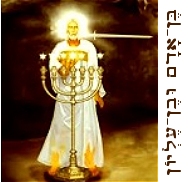
[ Saturday, June 1st after sundown marks the 40th day of the Omer Count.... ]
05.30.24 (Iyyar 22, 5784) Forty days after his resurrection, on Mem B'Omer (see Acts 1:3), Yeshua met with his disciples at the Mount of Olives (i.e., הַר הַזֵּיתִים) near Jerusalem, where he told them they would receive the promised Holy Spirit at the appointed jubilee of Shavuot (i.e., "Pentecost"). Upon his departure he blessed them, and Yeshua began to "ascend" bodily into heaven, thus signifying the close of his ministry on earth ("God with us") in anticipation of the advent of the Holy Spirit ("God in us"). [Note that in the New Testament, the account of the ascension of Yeshua is found in Luke 24:50-51 and Acts 1:3-11)].
The ascension of the Messiah fulfills prophecy as the glory of Yeshua enthroned at the right hand of the Father (Psalm 110:1; Matt. 22:41-46; 26:64), and therefore it marks the transition from his earthy ministry back to his heavenly one, and this is important because it annulled any further claim that Yeshua would physically visit people on earth until the parousia, or the second coming (note that Apostle Paul had encountered Yeshua after the ascension via visions, and not true physical contact in the earthly realm (see Acts 9:1-19; Gal. 1:11-2:1; 1 Cor. 15:8). The ascension signified the ultimate triumph of Yeshua as the "Son of Man" when he physically entered into the heavenly realm. It was not merely the spirit of Messiah that ascended to glory, but redeemed humanity that he represented in his resurrected body. The ascension eternally vindicates and enthrones the salvation of God in Yeshua.
But why 40 days? And what was Yeshua doing during this time? Frankly we don't know the details, though "40 days and nights" represents a period of completeness in the Scriptures. For instance, the cataclysmic judgment during the time of the great flood (Gen. 7:1), the embalming of Jacob (i.e., Israel) in Egypt (Gen. 50:3), the two occasions Moses ascended Sinai to receive the Torah (Exod. 24:18; Exod. 34:28), the intercession Moses made on behalf of Israel (Deut. 9:25); the mission of the spies who searched out the land (Num. 14:34), and Yeshua's tempation in the desert before he began his public ministry (Matt. 4:2; Mark 1:13) as well as his post-resurrection appearances (Acts 1:3) - all were 40 days in duration.
What is spiritually vital about all this, however, is that our Lord, the "Final Adam" (῾Ο ἔσχατος ᾽Αδὰμ, 1 Cor. 15:45) is now seated at the right hand of God (Psalm 110:1), forever enthroned as the Savior and LORD over all, the King of Glory (מֶלֶךְ הַכָּבוֹד) who has successfully completed his great mission to save humanity from the curse of death because of the original transgression in the garden (Rom. 5:12-21; 1 Cor. 15:21-22).
It was prophesied of our Lord Yeshua in Psalm 68:19 - "You have ascended to the highest (עָלִיתָ לַמָּרוֹם); You have taken captives out of captivity (שָׁבִיתָ שֶּׁבִי); You have acquired gifts for men (לָקַחְתָּ מַתָּנוֹת בָּאָדָם), yea, even for the rebellious (וְאַף סוֹרְרִים), that the LORD God may dwell among them (לִשְׁכֹּן יָהּ אֱלֹהִים). The apostle Paul later quoted this verse and applied it to the victory of Yeshua at the cross, explaining that He had first descended at his death and burial but later ascended far above all (Eph. 4:8-10; Col. 2:15). By delivering captive sinners from their captivity to Satan, the LORD bestowed gifts of the Spirit and eternal life to all who believe. Praise his name forever!
About Mem B'Omer...
We are in the midst of the 49 day "countdown" that runs from the day following the Passover until the day before the holiday of Shavuot ("Weeks" or "Pentecost"). This seven week period is called "Counting the Omer" (ספירת העומר) in the Torah (Lev. 23:15-16). During the Temple period, on each of these days an appointed priest would wave a sheaf (omer) of barley before the LORD as a symbolic gesture of dedicating the coming harvest to Him. This ceremony was called tenufat ha-omer ("waving of the sheaf"). On the 50th day, however, a sample of the first crop of the wheat harvest was baked into two loaves of leavened bread (called "Shtei Ha-Lechem," שׁתי הלחם) and waved before the altar as the climactic rite of the season (Lev. 23:15-20). Notice that this was the only time that otherwise forbidden leaven was used by the priests for the avodah (see Lev. 2:11).
 |
The 49 days between Passover and Shavuot forms a "chain" that links the two festivals together, and indeed Shavuot is regarded as the culmination of the experience of redemption, sometimes called Atzaret Pesach (עצרת פסח), or the "Conclusion of Passover." Just as the redemption by the blood of the lamb led to Israel's deliverance and the giving of the Torah at Sinai, so the redemption by the blood of Yeshua led to the world's deliverance and the giving of the Holy Spirit at Zion... And just as the covenant at Sinai created the nation of Israel, so the covenant at Zion created the worldwide people of God, redeemed from "every tribe and tongue" (Rev. 5:9). The waving of the "two loaves" of leavened bread therefore prophesied the creation of the "one new man," both Jew and Gentile, that would "firstfruits" of the Kingdom of God. In the Sovereign plan of God Almighty, ultimately there would be one flock, and one Shepherd for all God's children (John 10:16).
Since the resurrection of Yeshua occurred during the first day of the omer (i.e., on Firstfruits, or Yom HaBikkurm), and the Holy Spirit was given to the disciples 50 days later on Shavuot (Pentecost), all of Yeshua's post-resurrection appearances occurred during the days of the Omer count. Some of these appearances were as follows: On the first day of the Omer, Yeshua appeared to Mary Magdalene (Mark 16:9; John 20:16-18), some other women (Matt. 28:5-10), and then to Simon Peter (Luke 24:34; 1 Cor. 15:5). On the second day, He appeared to the two on the Road to Emmaus (Luke 24:13-32) and later that evening to the twelve disciples (Mark 16:14; Luke 24:33-39; John 20:19). A week later, He appeared to the Twelve again (John 20:26) and eight days later appeared to Thomas (John 20:24-29). Some time later, He appeared the third time to the disciples as they went back to their fishing jobs (John 21:1-14). Sometime later Yeshua appeared to 500 (1 Cor. 15:6) and then to James, the half-brother of our Lord Yeshua (1 Cor. 15:7). On Iyyar 25, or the 40th day of the Omer (called Mem B'Omer: מ"ם בעומר), Yeshua ascended into heaven from Bethany and commanded His followers not to leave Jerusalem until the promise of the Father was fulfilled during Shavuot (see Luke 24:44-53; Acts 1:9-11; Eph. 4:8).
The ascension of Yeshua (עליית ישוע) was foreshadowed by Moses and the receiving of the Torah at Sinai: Just as Moses had waited 40 days before the Torah was given to Israel, so the disciples waited 40 days before the promise of the Holy Spirit was given (Exod. 24:18; John 16:7, Acts 2:1-4). In both cases, at the appointed time revelation was given -- first in the form of "the Voice of the Living God speaking from the midst of the fire" at Sinai (Deut. 5:26), and later in the form of "tongues of fire" given in glory and power. Yeshua's Voice is now heard from the midst of the fire given at Zion...
Hebrew Lesson
Psalm 47:5 reading (click):
Why the Ascension Matters...
- The ascension of Yeshua (i.e., aliyat Yeshua: עליית ישוע) demonstrates that he is now seated at the right hand of God (יושב לימינו של אלוהים), ever making intercession for his people based on his resurrection victory over the power of sin and death (Mark 16:19; Eph. 1:20; Rom. 8:34; Heb. 1:1-3; Heb. 7:25; Heb. 9:24; Col. 3:1). Yeshua is the Ascended LORD (אֵל עֶלְיוֹן) and the great High Priest (הכהן הגדול הגדול) of the New Covenant. His ascension to heaven indicates his role as the Mediator between mankind and God (מֵתוֹוֵךְ בֵּין אלהים אֱנוֹשׁוּת). Some people ask where Yeshua is today. The ascension answers that question: He is presently in heaven making intercession for those who are trusting in Him, and he is also giving humanity further time to turn to him for life before he returns to earth to judge the world in fulfillment of his promise.
- The ascension moreover reveals the success of Yeshua's earthly ministry as the Redeemer of humanity. Everything that Yeshua had come to do he had accomplished, and the ascension signifies the perfection of his victorious redemption. He finished the work that the Father send him to do. Upon His ascension, Yeshua sent the Holy Spirit (רוּחַ הַקּדֶשׁ), the "Comforter" or "Advocate" (παράκλητος), who would give them counsel and guidance until He returns for his people (John 16:7).
- The ascension of Yeshua establishes his everlasting enthronement as the one and only King of Glory (מֶלֶךְ הַכָּבוֹד). His dominion is forever established as "an everlasting dominion, which shall not pass away, and his kingdom one that shall not be destroyed" (Dan. 7:13-14; Rev. 5:6-13). God's moral authority is eternally sure.
- The ascension of our Lord Yeshua foreshadows the final event in salvation history: Yeshua's personal, physical, glorious return (Acts 1:11). This is what we ask for when we pray, "Thy kingdom come, Thy will be done, on earth as it is in heaven" (Matt. 6:10). El Elyon (אֵל עֶלְיוֹן), the Ascended God, will return as the true Judge and King over all the earth. He will establish universal justice, end suffering, and destroy the power of death as he sets up the promised Kingdom of Zion (מַמְלֶכֶת צִיּוֹן) in fulfillment of the words of the Hebrew prophets. Yeshua is coming to vindicate Israel and to heal the nations by establishing truth, righteousness and love in the world. Amen.
- The resurrection and ascension make us "alive together" with the Messiah. Because of Yeshua, we are able to live on a different level of reality, free from the "law of sin and death" (Rom. 7:4, 8:2). We now have a new and living relationship with God - based on the freedom and intimate revelation given by the Holy Spirit - all because of our ascended Lord Yeshua, blessed be He.
- Yeshua told His followers that it was good that he would leave them, so that the Holy Spirit (רוּחַ הַקּדֶשׁ), the "Comforter" or "Advocate" (παράκλητος), would be given to them. "But I tell you the truth, it is for your advantage that I am going away. For if I do not go away, the Advocate (ὁ παράκλητος) will not come to you, but if I go, I will send him to you" (John 16:7). Notice that the word translated as "advantage" here is the Greek word συμφέρω (from σύν, "with" and φέρω, "to carry"), which suggests that we would be given power that "carries us" with the Lord during the trials of this life... O friends, how we need the Spirit of God to strengthen us! During this season, may our hearts cry out: בו רוח אלהים - bo, Ruach Elohim: "Come, Holy Spirit." Help us, O God, be your witnesses in this end-times generation. Amen.
Hebrew Lesson:
Psalm 110:1 reading (click):
Note: For more information, see "Mem B'Omer and the Ascension of Yeshua."
The Fear of the LORD...
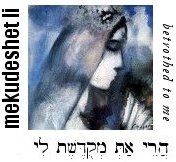
05.30.24 (Iyyar 22, 5784) Our Torah portion this week (i.e., parashat Bechukotai) includes a litany of woes assured to befall those who spurn God's truth and break covenant with Him (Lev. 26:14-46). The deeper intent of this admonition (tochechah) is to warn us of the grave danger of forfeiting our relationship with God – that is, of refusing to be healed of our illusions... Chastisement is a blessing from heaven, the "troubles of love" (יִסּוּרֵי אַהֲבָה) since its goal is to bring us back to God and to deliver us from eternal loss. This is why Yeshua warned us about the dangers of hell: if we do not heed the Voice of divine love, we risk literally everything, and that loss is irremediable and eternal... God's warning about hell expresses the great passion of his heart for us; his love calls us to receive eternal life and blessing, but if we refuse to come, we will suffer the loss of the only thing that ultimately matters. As it is written: "It is a fearful thing to fall into the hands of the Living God" (אֱלהִים חַיִּים).
The fear of losing love evokes a healthy zeal to protect it from loss... The same may be said of God's relationship with us. The gospel represents God's passion for us, the call of his heart, his desire to elevate us to the role of the beloved, and we respond by accepting Him as the Lover of our souls, the Ultimate Concern of our life. Sin threatens to seduce us away from God's love, to interfere with our relationship, which evokes God's "jealousy" to protect love from loss. This is what the "fear of the LORD" (יִרְאַת יְהוָה) most radically means: God's own fear that we would lose sight of our great need for his healing love...
It is written that "perfect love casts out fear" (1 John 4:18), but perfect love (τελεία ἀγάπη) must be "perfect," that is, reciprocal, complete, consummated, and alive with passion. In Hebrew, perfect love is "shalem" - that is, whole, healed, and unified (אַהֲבָה שְׁלֵמָה). Perfect love is both given and received... It is not "perfect love" to intellectually accept that God loves you in Yeshua our Savior. No, you must receive this as an inward passion, you must live within it, must embrace it, take possession of it, and let it fill your heart to abundance. This love, this "perfect love," then will cast away your fear of being unwanted, rejected, and abandoned. But to know this love, you have to open your heart and accept it as your own, the essential reality of who you are.
Hebrew Lesson:
Song 7:10 Hebrew reading:
We are told to "work out our salvation with fear and trembling" (μετὰ φόβου καὶ τρόμου) since the love of God appeals to all of our heart, soul, mind and strength. Therefore may you fully accept that you are accepted; may you receive the blessing of God's passion for your soul; may you walk (i.e., live, move, and have your being) in the abundance of God's unfailing and everlasting love, and may the Lord be your all-in-all. Amen.
Endurance and Hope...
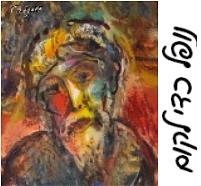
05.29.24 (Iyyar 21, 5784) Sometimes we feel overwhelmed in our lives. There's so much going on; troubles, uncertainties, and so on. The world seems out of control; disinformation and "mind games" are the substance of the "postmodern news." We become alienated, disorientated, and anxious; our emotions get the better of us, and we lapse into fearful thinking. We may grow numb, hardhearted and desensitized to the deeper message of our heartache.... We are tempted to despair over our sins, our sufferings, and our ignorance.
At such times it is essential to redirect our attention by turning to God in "teshuvah" (תְשׁוּבָה) or "repentance." Teshuvah is our response to the question given by our life circumstances. Deliberately seeking God's presence in the midst of our struggles is sometimes called "kavanah" (כַּוָנָה), a word that means "focus," "attention," or "concentration."
"When the enemy shall come in like a flood, the Spirit of the Lord shall lift up a standard against him" (Isa. 59:19). Set your heart in trust before God and reaffirm that his presence is both with you and for you. Despite the apparent chaos, look up and find your bearings. When we turn to the Lord with all our heart — with "all-that-is-within me" earnestness — then he will guide us and make our paths straight, despite ourselves... As it written in the holy Torah:"If from there you will seek the LORD your God, then you will find Him if you seek Him with all your heart and with all your soul" (Deut. 4:29). The "there" mentioned in this pasuk (verse) is the "there" of where we find ourselves -- in our exile, awaiting the completion of our redemption... In this context teshuvah means believing that God's "concealed good" is present, even in the midst of adversities we face...
Some people think they should turn to God for help only with their big problems, but not with the everyday struggles and inner conflicts that we face on a daily basis. This is a serious mistake. If God wants us to seek him be'khol levavkha -- "with all our heart," then understand that God wants all of us — and that includes our daily concerns, our missteps and sins, our sorrows and our joys. We turn to God in all that we are and in all that we do....
Yeshua taught us that the essence of Torah is mercy (Matt. 9:13; Matt. 23:23), and that God is close "in all our calling to Him" (Deut. 4:7), that is, in every appeal of our heart for Him. The Talmud says the central verse of Torah is "Know Him in all your ways" (Prov. 3:6), since by seeking the will of our heavenly Father, we attain the mitzvah (connection) of Torah.
The Hebrew word for trouble is "tzarah" (צָרָה), from the root idea of "constricting" or being bound (i.e., צָרַר). Indeed the land of Egypt, the house of slavery, is called mitzrayim (מִצְרַיִם), from a cognate root (צוּר) that means to "bind." This suggests that a narrow perspective is unable to understanding the "big picture." Of course it is impossible for us to fully fathom God's ways (Isa. 55:8), though we can rely on Him to lead us and to trust that our testing in this life is not in vain. That is why the sages remark that the Hebrew word lamah (לָמָה) "why?" also spells the word le'mah (לְמָה) meaning "for what?" In other words, instead of asking why afflictions befall you, ask how they may help you grow closer to God...
"Relax, nothing is in your control," though everything is in the hands of your Heavenly Father who is faithful and who has has promised to guide your way. Amen.
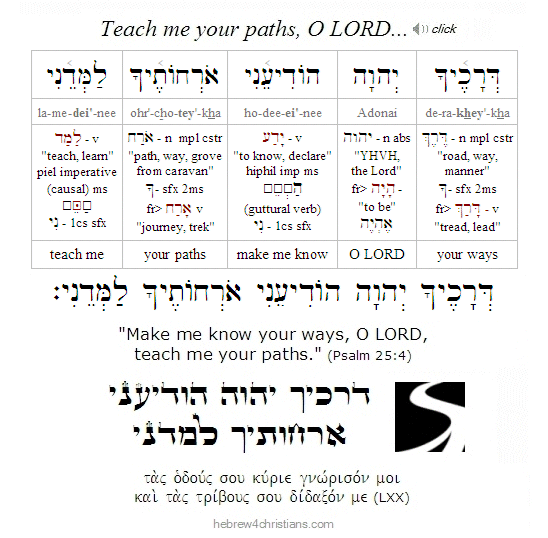 |
Troubles of Love...
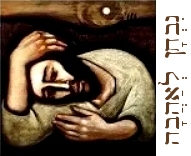
05.29.24 (Iyyar 21, 5784) Our Torah reading this week (Bechukotai) is the final portion of the Book of Leviticus (וַיִּקְרָא), which is the central book of the Torah. In light of all that God had done for the Jewish people - from their great deliverance in Egypt to the ordination of the priesthood in the Tabernacle - God expected them to live up to their high calling as His chosen people: "You shall be holy, for I the LORD your God am holy" (Lev. 19:2). Therefore, some of the sages say that the central point of this concluding portion is tochachah (i.e., the warning of punishment) rather than nechamah (i.e., comfort). The focus is not, "If you walk in my laws" (Lev. 26:3), but rather, "if you do not listen (shema) to me, then..." (Lev. 26:14)....
It has been said that the opposite of love is not hate, but rather indifference, and that explains why the punishments would come if the people "left their first love." Indeed, the "rebuke" portion of the tochachah begins with ve'im lo tishme'u li (וְאִם־לא תִשְׁמְעוּ לִי), "if you do not listen to me" (Lev. 26:14), which recalls the Shema and the duty to love the Lord bekhol levavkha, "with all your heart." If the people walk carelessly (i.e., keri: קְרִי) with God, then God will afflict them with "the troubles of love" (i.e., yissurei ahavah: יִסּוּרֵי אַהֲבָה). A student once asked his rebbe: "Do we get punished for our sins in this world?" His succinct response was, "Only if we are made fortunate..." The worst possible fate is for God to be indifferent to someone! Can anything be more tragic than to be forgotten or to go unnoticed by God? It is far better that He afflict you with yissurei ahavah - the "troubles of love!"
The idea of tochachah (rebuke, correction) is not simply something for ethnic Israel, of course, since the New Testament likewise warns us that God will punish those who likewise walk carelessly (i.e., keri: קְרִי) with Him. Have you forgotten the exhortation that addresses you as God's children? "My son, do not regard lightly (ὀλιγώρει) the discipline of the Lord, nor be weary by his reproof (תּוֹכֵחָה). For the Lord disciplines the one he loves, and reproves (יוֹכִיחַ) every child whom he receives" (Heb. 12:5-6; Prov. 3:11-12). The Lord charged the assembly at Ephesus that they had let go of their first love. Yeshua therefore urged them: "Remember from what high state you have fallen and repent! Do the deeds (ἔργα) you did at the first; if not, I will come to you and remove your menorah from its place – unless you repent" (Rev. 2:4-5). Because God is never indifferent toward those who are trusting in His salvation, he will discipline and correct us to keep close to Him. He will afflict us with the "troubles of love." As it is written, "It is a fearful thing to fall into the hands of the Living God" (Heb. 10:30).
Regarding the litancy of woes, troubles, and curses listed in parashat Bechukotai, I'd like to relate a beautiful story I once read long ago.... The son of a Torah sage was away from home during the Shabbat of Bechukotai, so he went to a different synagogue to heard it read. As he listened to the cantor (reader), he became progressively alarmed at the severity of the curses, until he fainted in the middle of the reading. After he was revived he was asked if this happened to him every year, to which he replied, "No, when my father reads the Torah, the curses sound like blessings." Amen. Rightly heard. the warning of punishment for our sin should awaken us to hear the heart of our heavenly Father, who loves us and profoundly cares how we live our lives...
Hebrew Lesson
Psalm 119:67 reading (click):
For more on this topic see: "The Troubles of Love: Further Thoughts on Bechukotai."
Narrow Gate of Despair...

05.28.24 (Iyyar 20, 5784) There is a great danger today of fearing the wrong things, and despairing over that which trivial in light of eternity. However, genuine despair is a gift from God, if it is received as a message to take heed of what is most important. "And this is the simple truth - that to live is to feel oneself lost. He who accepts it has already begun to find himself, to be on firm ground. Instinctively, as do the shipwrecked, he will look around for something to which to cling, and that tragic, ruthless glance, absolutely sincere, because it is a question of his salvation, will cause him to bring order into the chaos of his life. These are the only genuine ideas; the ideas of the shipwrecked. All the rest is rhetoric..." (Kierkegaard).
Like Jonah we first must be "swallowed up" in consciousness of our own hopelessness before we realize that we are without remedy apart from God's intervention and deliverance. We start there - in the "belly of the fish" - and later are brought forth by God's mercy and grace. This is the place of the cross, the "narrow gate" that leads to life. As we look to Yeshua, as we lean on him, he reveals more of himself to us.
Hebrew Lesson:
Psalm 86:13 Hebrew Reading (click):
Hillel the Elder had said, "If I am not for myself then who will be for me? (אם אין אני לי מי לי); But if I am only for myself, what am I? And if not now, when?" (Avot 1:14). Hillel points out here that the language of "I am" (אָנִי) and "for me" (לִי) reveals that we have a relationship with ourselves that must be sanctified and ordered before God. As Soren Kierkegaard once wrote: "The self is a relation which relates itself to its own self," that is, the self is always in a state of dialog. A healed self relates itself to God as the Ground of existence, since otherwise irremediable despair will result, eternal lostness within, an everlasting sickness of soul...
The remedy for being a lost self, relating only to itself without any center or ground, is to turn to God and to find your place in God's love and blessing. As we come to believe that we are accepted and loved despite our many imperfections, inadequacies, and character defects, we find courage to accept ourselves, to "let go" in trust. As Yeshua said, "whoever does not receive the kingdom of God like a child shall not enter it" (Luke 18:17).
Forget not His Love...
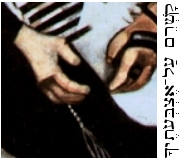
[ "We ought to give the more earnest heed to the things that we have heard, lest at any time we should drift away..." - Hebrews 2:1 ]
05.28.24 (Iyyar 20, 5784) If something is worth truly saying, it is worth saying more than once... We learn by repetition. Consider how Yeshua retold his parables and messages throughout his ministry. God knows we are dull of heart and full of ourselves and therefore he says: וזכרת את־יהוה אלהיך- "Now remember the LORD your God!" and "Take heed to yourself, and keep your soul diligently, lest you forget the things that your eyes have seen, and lest they depart from your heart all the days of your life" (Deut. 4:9). Likewise the Shema teaches us to rehearse Torah "diligently" - again and again - so that our lives are imbued in its language and its significance (Deut. 6:4-9). When we sit in our house, when we walk by the way, when we lie down, and when we rise up -- in every place and at every time -- we are to remember the truth and thereby walk before the Living God.
"Take heed to yourself..." This warning underscores the danger we face of "forgetting" God, of losing sight of the truth of reality, and thereby lapsing into the realm of the profane... We must, therefore, foster within us a state of ongoing vigilance that regards the greatness of God in the midst of our daily lives. "Give us this day our daily bread." Your life, your being, and your very existence come from God, but forgetting this leads to "tohu va'vahu," a life of vanity and chaos. Therefore let us practice God's presence; let us believe to see the goodness of the LORD in the land of the living. The language God uses bespeaks his imperative passion for us: "Do not forget me! Keep your heart open to my Presence! Know me in all your ways..."
Hebrew Lesson:
Deut. 4:9a reading (click):
Walking out God's Will...

05.27.24 (Iyyar 19, 5784) In our Torah this week (i.e., Bechukotai) we read: "If you walk in my decrees (אִם־בְּחֻקּתַי תֵּלֵכוּ) and guard my commandments (ואֶת־מִצְוֹתַי תִּשְׁמְרוּ) and do them (וַעֲשִׂיתֶם אתָם), then I will give you your rains in their season, and the land shall yield its increase, and the trees of the field shall yield their fruit" (Lev. 26:4). Note the order in this verse: first we learn to walk in God's "decrees" and then we do his "commandments," which teaches us that the fear of God, the respect for His authority, must come first (כבוד לפני התורה). Note also the connection between our reverence before the Divine Presence and its effect on our physical environment. When we walk in the will of God, yielding our hears to his direction (Torah), we become vessels of his presence in the world and conduits of blessing to our surroundings. Indeed, as we yield to God's truth, even the sword of our enemies will be unable to be used against us and we walk in peace (Lev. 26:6; Prov. 16:7).
The Torah commentator Rashi says that the phrase, "if you walk in my decrees" refers to labor in the study of Torah (i.e., limud Torah: לימוד תורה), since we cannot mindfully observe God's decrees (chukkim) and commandments (mitzvot) without first studying Torah... As it says in our Sciptures: "Make yourself diligent (σπούδασον σεαυτὸν) to be genuine before God, a workman that is unashamed, living the message of truth accurately" (2 Tim. 2:15). "If you will walk" is an invitation to grow in grace and understanding of God's truth.
Hebrew Lesson:
Proverbs 16:7 Hebrew reading (click):
Remembering our history...

[ "Blessed is the nation whose God is the LORD" - Psalm 33:12 ]
05.27.24 (Iyyar 19, 5784) In the United States of America, Memorial Day is a national holiday observed on the last Monday of the month of May, that commemorates the sacrifice of those men and women who died in military service for their country. For those who have lost a loved one during their military service, please accept our heartfelt condolences and appreciation for your great sacrifice...
And may the LORD God Almighty have mercy upon all the nations of the world by imparting the revelation of His Living Torah, Yeshua, as it says, "Where there is no prophetic vision the people cast off restraint, but blessed is the one who keeps Torah" (see Prov. 29:18). If there is no prophetic vision -- no apprehension of divine truth -- there is no direction, and this invariably leads to moral and spiritual disorder, chaos, and bondage.
בְּאֵין חָזוֹן יִפָּרַע עָם
וְשׁמֵר תּוֹרָה אַשְׁרֵהוּ
be·ein · cha·zohn · yee·pa'·ra · ahm
ve·shoh·meir · toh·rah · ash·rei'·hoo

"Where there is no prophetic vision the people cast off restraint,
but blessed is the one who keeps Torah." (Prov. 29:18)

Download Study Card
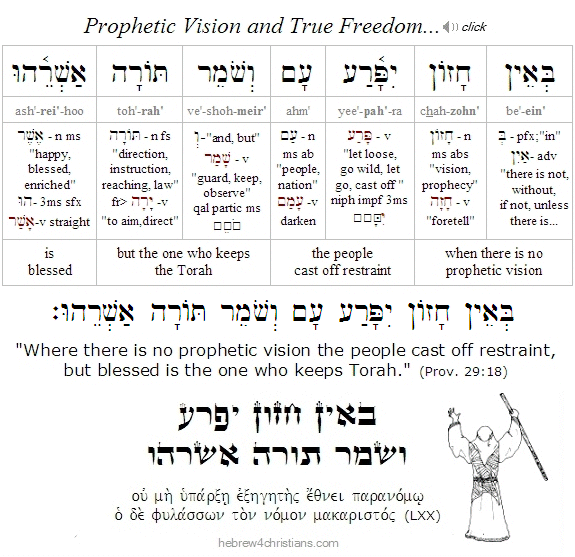
Note: Though our kingdom is "not of this world," pray for the United States -- a nation that has come under philosophical and ideological attack from those who seek to undermine America's history in order to forward their godless agenda. Pray for God's mercy for this land, and above all, for the miracle of teshuvah for all nations to turn to Him in these latter days. Amen (1 Tim. 2:1-4)
Parashat Bechukotai - בְּחֻקּתַי
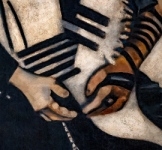
05.26.24 (Iyyar 18, 5784) Shavuah tov, chaverim! Our Torah reading this week, parashat Bechukotai, is the final portion of the central book of the Torah (i.e, Leviticus) which begins with the promise that if the Israelites would walk in the LORD's statutes (chukkot) and commandments (mitzvot) and perform them, then they would enjoy material blessings and dwell securely in the promised land. Moreover the LORD Himself would make His dwelling with them and would walk among them as their God. The people of Israel would then truly be am segulah (עַם סְגֻלָּה) - a treasured people among all the nations of the earth.
On the other hand, if the people disobeyed God and disregarded His commandments, then they would be considered covenant-breakers, and they would experience all manner of distress and tribulation in their lives. They would experience panic attacks, diseases, heartache, and all manner of tsuris (vexation, trouble); their enemies would eat their increase, and those who hate them would rule over them; they would flee at the rustle of a leaf, and their lives would be full of terror and misery – all because they refused to put the LORD God first in their lives. And if after all this trouble the people would still refuse to return to the LORD, the worst punishment of all would befall them: exile from the promised land and banishment from the Presence of the LORD Himself.
Nonetheless, despite their disobedience, God's love and mercy for Israel would never fully depart, for "if they confess their iniquity and the iniquity of their fathers in their treachery that they committed against me, and also in walking contrary to me, so that I walked contrary to them and brought them into the land of their enemies – if then their uncircumcised heart is humbled and they make amends for their iniquity, then I will remember my covenant with Jacob, and I will remember my covenant with Isaac and my covenant with Abraham, and I will remember the land" (Lev. 26:40-42). Moreover, even while they are in exile, in the land of their enemies, God vowed: "I will not cast them away; nor will I ever abhor them to destroy them and to break My covenant with them; for I am the LORD their God" (Lev. 26:44).
The portion (and the Book of Leviticus) ends with a discussion of various laws pertaining to vows and tithes that a person may make to contribute towards the upkeep of the Sanctuary. These include dedications of persons, animals, houses, and lands. The scroll of Leviticus ends with the emphatic statement: "These are the commandments that the LORD commanded Moses for the people of Israel on Mount Sinai" (Lev. 27:34).
חִינוּךְ לְנַצֵחַ
Educated for Eternity...

05.24.24 (Iyyar 16, 5784) We are being educated for eternity, and the life of faith is a long lesson in obedience -- learning to suffer God's will, to accept whatever happens, and to endure in hope. Practically speaking this means "laying aside" your desires and surrendering yourself -- all that is within you -- in trust of God's plan for your life, even (and especially) in the most harrowing of moments... Indeed, in light of suffering what we really need is perseverance, or what the New Testament calls hupomone (ὑπομονή), a word that means "remaining [μένω] under [ὑπο]" the Divine Presence while being tested (the word "suffer" comes from the Latin word sufferre, from sub- (under) + ferre, to carry, and therefore denotes "bearing under" difficulty). Laying aside our desires is a form of suffering that calls for patience and wisdom as we learn to endure our own frailty and to trust God for what is best...
For the child of God there are no "disappointments" in life, since God directs our steps and uses every circumstance for our ultimate good: "The steps of a good man are ordered by the LORD, though he fall, he shall not be utterly cast down..." (Psalm 37:23-24). To plead with God for some deliverance, to beseech him for the life of a beloved child or spouse; to cry out from the depths for mercy in the face of loss, as when beside a fresh grave - and to there affirm the threefold affirmation of kaddish: "The Lord gave, and the Lord has taken away; blessed be the name of the Lord" (Job 1:21) - is to learn the lesson of obedience - surrendering to God's will, refusing to despair even in the midst of our sorrows....
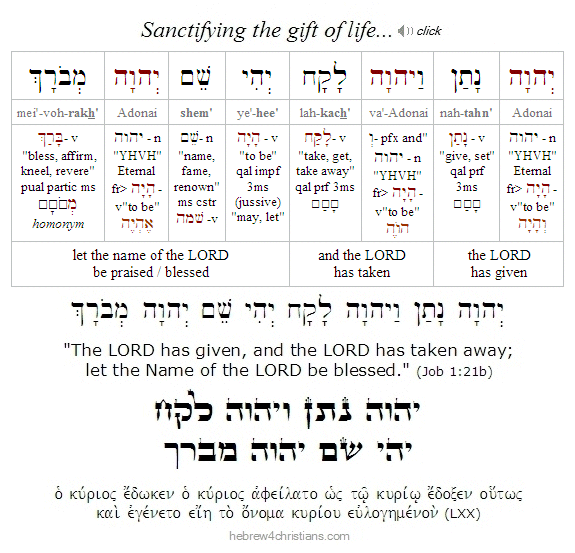 |
Therefore we suffer to learn obedience, for what is obedience that is not tested and refined by suffering? "Hear O Israel, the Lord is our God, the Lord is one" is the mantra of the Jewish heart (Deut. 6:4). The Shema is an invitation to "show up" by refusing despair; it is an affirmation that God's loving providence is in control of all that is essential for our lives.
The flesh needs no lesson to cling to its life and desire its pleasures, of course... God allows suffering in our lives as an opportunity to grow -- to affirm what is good in the midst of loss and to trust in God's direction and purposes. We do not learn obedience apart from the test of faith, and therefore obedience cannot be taught apart from the struggle to believe. We wrestle to surrender, with groans and sighs we utter: "not my will, but thy will be done."
Recall the Serenity Prayer: "God grant me the serenity to accept the things I cannot change, the courage to change the things I can, and the wisdom to know the difference." Serenity, or inner peace, comes when we surrender our will and our lives to God's care, and wisdom comes when we realize that such surrender of the heart makes all the difference. As Kierkegaard once said: "This is the key to finding rest in your suffering. There is only one way in which rest is to be found: to let God rule in everything. Whatever else you might come to learn only pertains to how God has willed to rule. But as soon as unrest begins, the cause for it is due to your unwillingness to obey, your unwillingness to surrender yourself to God."
In the midst of his lament, from within the whirlwind of dark passions, indignation, confusion, and struggle, God spoke to Job, and there Job learned the lesson of surrender before the overmastering beauty and glory of the LORD. "I have heard of thee by the hearing of the ear, but now my eye sees you; therefore I abhor myself and repent in dust and ashes" (Job 42:5-6). Through his suffering Job learned the lesson of obedience - he had to forsake his "own dark counsel" and "words without knowledge" (Job 38:2-3) by turning to the Lord in his brokenness and need. Job repudiated his reckless accusation that God was unjust and unloving. In Hebrew the phrase "therefore I abhor myself" might better be understood as "I recant what I said in my ignorance." Job found comfort (nacham) in turning back to God in trust, notwithstanding his ordeal. Whatever happened to Job was the miracle of grace, wherein he was able to forsake his own understanding - his own "demand" to understand - in trust that God is really his friend, and this consolation was more than enough....
It is the Spirit that gives life; the flesh profits nothing (John 6:33). It is impossible for the human heart to believe that God is gracious to him, and yet the very greatest danger is despairing of grace... Faith and grace are therefore intimately connected, for God's acceptance and forgiveness is for those who believe... We do not find God's heart by relating to him through the law - that is, by appealing to him as our Judge - but by relating to him through grace - that is, by believing and receiving him as our Savior. Despair comes from our own spirit trying to reason or bargain with God's acceptance; but salvation comes from hope imparted by the Holy Spirit, which is to say, by means of the miracle of God.
We are not without God's help in our suffering, friend. Yeshua promised that the Ruach HaKodesh (רוּחַ הַקּדֶשׁ) would be "called alongside" (παράκλητος) to comfort us on the journey. The English verb "comfort" literally means "to give strength" (from com- ["with"] and fortis ["strong"]), an idea similarly expressed by the verb "encourage," that is, to "put heart [i.e., 'core'] within the soul." In Hebrew, the word courage is expressed by the phrase ometz lev (אמֶץ לֵב), meaning "strong of heart," denoting an inner quality of the will rather than of the intellect. Ometz lev means having an inner resolve, a passion, and a direction.
The walk of faith requires courage, that is heart... The human mind reasons and therefore fears, but the heart is the center of our being, the core of who we are. The heart does not reason its way to love but instead allows love to inform and direct reason. Therefore God asks our hearts to trust in him, and he does not allow calculated human reason with its fears to move us on the way (Isa. 55:8). When we receive grace to faithfully suffer, we hear the Spirit whispering back to us: "Be not afraid..." "Live in me..." "Walk in the light..." "I am with you always..." "You are loved..."
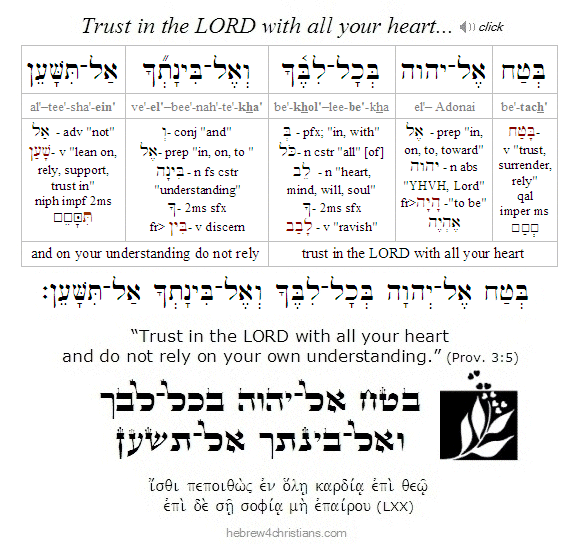 |
What are you dying for?
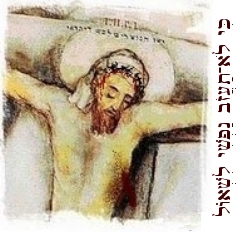
05.24.24 (Iyyar 16, 5784) We may sometimes ask the question, "What am I living for?" though the question may be turned around to ask, "What am I dying for?" for indeed we are given precious and few days during our sojourn here, and every day we live is a day we are deciding that for which we will die. What we are willing to die for reveals what we believe is the reason for our lives.
If you stop and think about it, you realize that you "cannot not" exist; indeed you were "thrown" into this world apart from your conscious consent, and moreover that you cannot escape the inevitability of dissolution, suffering, death. Meanwhile, your life passes quickly as a fleeting vapor, as it says: "As for man, his days are like grass; as a flower of the field, so he flourishes: for the wind passes over it, and it is gone; and the place thereof remembers it no more" (Psalm 103:15-16).
Here today, gone tomorrow... but to what end? Where are you going during your short sojourn here on earth? Do you believe in the spiritual world? If you believe you are on your way to heaven, how are you living today that demonstrates your journey?
Will there be regret when you die? Will there be regret in heaven? Is it possible to lose a measure of blessedness in the world to come through disobedience, faithlessness, and sin? It is a dreadful thought, and many of us feel that much of our life has been regrettable, but how we come to "build" our lives make the difference for eternity: "For no one can lay a foundation other than that which is laid, which is Yeshua the Messiah. Now if any man builds upon this foundation with gold, silver, precious stones, or with wood, hay, stubble, each one's work will become clear; for the Day will declare it, because it will be revealed by fire; and the fire will test each one's work, of what sort it is. If anyone's work which he has built on it endures, he will receive a reward, but if anyone's work is burned, he will suffer loss; but he himself will be saved, yet so as through fire" (1 Cor. 3:15). "For we must all appear before the judgment seat of Messiah, that each one may receive the things done in the body, according to what he has done, whether good or bad" (2 Cor. 5:10).
Yeshua gave us many parables admonish us to make the most of our lives. The "Parable of the Soils" warns us to be receptive to God's presence and to bear fruit (Luke 8:4-8); the "Parable of the Talents" warns us not to squander our lives out of fear or complacency (Matt. 25:14-30). The tragic judgment of the indifferent steward was expressed by Yeshua this way: "From him who has not, even that which he has shall be taken away" (Matt. 25:29). The "Parable of the Rich Fool" warns us to be rich toward God (Luke 12:13-21), and so on.
But what about all the great promises of the Lord that he will remove our transgressions "as far as the east is from the west," and that he will cast our sins to the depths of the sea and remember them no more? The LORD says: "I, even I, am He who blots out your transgressions for My own sake, and I will not remember your sins" (Isa. 43:25). Indeed does not the New Covenant specifically promise us deliverance from our sins? Prophetically Jeremiah spoke on behalf of God: "For they all shall know Me, from the least of them to the greatest of them, says the LORD. For I will forgive their iniquity, and their sin I will remember no more" (Jer. 31:34). And does not the Cup of our Savior represent the blood of the New Testament which is shed for many for the remission of sins (Matt. 26:28)? Amen, yes indeed, the problem of our sins has been taken care of by Yeshua at the cross: "Most assuredly I say to you, the one who hears My word and believes in Him who sent Me has everlasting life, and shall not come into judgment, but has passed from death into life" (John 5:24). God has made us accepted in Yeshua: "In Him we have redemption through his blood, the forgiveness of sins, according to the riches of his grace" (Eph. 1:7).
So it seems there is a difference between being forgiven and being free of regret, for the latter is a feeling of mourning over lost opportunities, a sorrow that, in light of the truth of how wonderful and kind God is, more could have been done for him, that a life of deeper obedience, passion, and fellowship was possible for us but, for was left unlived... "But God, who is rich in mercy, for his great love with which he loves us, even when we were dead in sins, has made us alive together with Messiah - by grace you are saved - and has raised us up together, and made us sit together in heavenly places in Yeshua the Messiah, that in the ages to come He may demonstrate the exceeding riches of his grace in his kindness toward us through Yeshua our Lord" (Eph. 2:4-7). Amen, God's mercy and truth kiss....
When the unnamed woman from Magdala wept and washed his feet with her tears, Yeshua said to the those that were present, "I tell you, her sins, which are many, are forgiven -- for she loved much" (Luke 7:44-48). In other words, she was so lavish in her love because she deeply regretted that she had missed what was most important, what she desperately needed all along... She saw her sin as blindness to God's love... After all, why would she weep over her sins unless she loved him? And how could she love him unless he first revealed his love to her? (1 John 4:19).
Love and regret... It's a bit of a paradox, somewhat like God's commandment to Israel to blot out the name of Amalek so that they would never forget what Amalek did to them! And we will sing a new "Song of Lamb" in heaven that remembers how we were redeemed from our sins by Yeshua's shed blood upon the cross... "And they sung a new song, saying, 'You are worthy to take the book, and to open the seals thereof: for You were slain and have redeemed us to God by Your blood from every kindred, and tongue, and people, and nation" (Rev. 5:9). The scene of the "Lamb that was Slain" sitting upon the throne of God surrounded by innumerable souls who were clothed in white, waving palms, and crying out praise for God's salvation is dramatic and wonderful: "For the Lamb who is in the midst of the throne shall feed them, and shall lead them unto living fountains of waters: and God shall wipe away all tears from their eyes" (Rev. 7:17). And yet all of this glory came at the utmost expense of the dark cloud of the cross; the overwhelming passion; the excruciating agony, the blood poured out in intercession for the forgiveness of our sins...
All this indicates that though we will have remembrance of our sins, they will be remembered only in relation to the unfathomably great sacrifice of Yeshua as our Healer and the lover of our souls. We have peace with God. Ah, a bittersweet and beautiful brokenheartedness! We shall only know our sin in relation to the unending love and tender mercies of our Lord...
I should add that there is a place for godly sorrow, of course, and for genuine remorse over our sins. As we understand God's great desire and love for us, we begin to realize that the essence of sin is the refusal of His heart for us. The underlying issue with sin concerns the question of God's love. Simply abstaining from certain actions does not address the deepest need of the heart. It is not turning away from sin that matters as much as turning toward God. The forgiveness of sin is meant to lead us to the life of love.
So again let us ask ourselves: "What am I dying for?" In this world we have one life to live, a brief time wherein we can come to know God and learn to yield to his love. Every soul shares this same existential position: we are born; we suffer, we die, and then we will face judgment (Heb. 9:27). And though we will suffer and die, how we live today has profound implications for our eternal destiny. If we cling to our suffering and bitterness we will be locked into a prison of hell. Though we all will suffer and we will all die, the answer is not to unthinkingly rage at life for its apparent injustice, for that spreads hatred, bitterness, and despair. Nor are we to pretend that life and death are meaningless, or to seek escape from the vapor of our fears by drugs, sex, pop culture, etc., for these are not solutions to our eternal and spiritual tribulations. Every person needs to be healed from the real the sickness of soul, namely eternal death, and the remedy for this comes only and exclusively through Yeshua and his intercession for us, since there is salvation in no other name (Acts 4:12). His is the Name before whom every knee shall bow and every tongue confess (Phil. 2:9-11; Isa. 45:23). And He alone gives eternal life to those who trust in him (John 10:28). "For there is only one God and one Intercessor who can reconcile God and humanity -- the man Yeshua the Messiah -- who gave himself as a ransom for all" (2 Tim. 2:5-6). There is only one Savior, one Redeemer, and one Healer of the human heart, and that is Yeshua the LORD.
So how shall we then live? What can we do to heal a broken and dying world? Well first of all we must settle the matter and decide to live in the truth of Messiah: we "set the Lord always before us" (Psalm 16:8). Doing teshuvah is always the first step. Then, when opportunity arises, we can confide our heart's convictions with others; we can share our hope and healing with those who are hurting and lost. Our Lord commissioned us to be his representatives or ambassadors of life. We are given the inestimable privilege of sharing the way of salvation to others. There is no higher calling, friends. Physical doctors may heal the body, but only the Lord can heal the soul, and the Lord uses broken people who trust in him to speak words of life by means of the Holy Spirit. As we sojourn our days, the Lord asks us to humbly share our faith with those for whom he died upon the cross and to invite them to come to Him for life (Matt. 28:19-20). The apostle instructs us to "sanctify the Lord God in your hearts, and always be ready to give an answer to anyone who asks you the reason for the hope that is in you, with humility and respect" (1 Pet. 3:15). Helping another soul come to know God and to be reborn by the Spirit of God is the greatest joy we will share throughout eternity to the praise to our great God and Savior. Amen.
Hebrew Lesson
Jeremiah 7:14 Reading (click):
Our Times in His Hand...
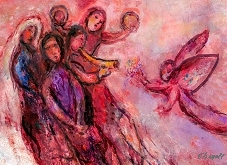
05.23.24 (Iyyar 15, 5784) Do you understand that in God's sovereign design and plan for creation, He breathed out a part of his very heart, soul, and strength to create you in his own "image and likeness," a reflection of his own self-existence and reality? This is the essential blessing that each of us has been given; this is the basis for awe. Rene Descartes' awareness of the inner witness of the soul: "I think therefore I am," echoes the אֶהְיֶה אֲשֶׁר אֶהְיֶה, "I am that I am," within our hearts. The LORD is the "God of the spirits of all flesh" (Num. 16:22) for "in Him we live and move and have our being" (Acts 17:28).
The moments of our lives, the ups and downs of our goings, the length of our days - and especially the purpose and end of our existence - are all in the hands of God, as it says: "In you I put my trust, O LORD; I said, 'You are my God; my times are in your hands" (Psalm 31:14-15). A person may "devise his own way," but it is the LORD that directs his steps.
If we consider our lives apart from God, however, all we see is wretchedness, limitations, shortness of days, and the absurd specter of death at the end of it all. Life always seems too short; the days fly past us like a dream, soon we are "cut off" and gone. When the moment of death occurs, many are lost to its eternal significance...
On the other hand, when we trust that our lives are under God's providential direction, and we realize that our Heavenly Father "numbers the hairs on our head," then we can quiet our hearts and abandon ourselves to his care (Isa. 46:8-10; Psalm 103:19). As it is written: "Those who trust in you know your Name; for you do not forsake those who seek you, O LORD" (Psalm 9:10). And as the Apostle Paul preached to the Athenians, "God, who alone is Creator, the Lord of heaven and earth, has given life and breath to all people, and from one man has made every nation of people to live on the earth, having determined prescribed times and the boundaries of their habitations" (Acts 17:24-26).
For the believer there is no greater comfort than to completely trust that the LORD will work "all things together" for our ultimate good (Rom. 8:28). "Whoever lives and believes in me shall never die" (John 11:26). Yet there is a veil. "God has made every thing beautiful in his time, and he has set eternity in people's hearts, so that no one can find out what he has ordained from the beginning to the end" (Eccl. 3:11). So while we know only "in part," as through "a glass darkly," we believe that the LORD goes before us and will always be with us (Deut. 31:8). And one day we shall see him "panim el-panim," face to face (1 Cor. 13:12). "Beloved, now are we the children of God, and it does not yet appear what we shall be: but we know that, when he shall appear, we shall be like him, for we shall see him as He is; and everyone that has this hope in Him is purified, even as he is pure" (1 John 3:2-3).
Χάριτι δὲ θεοῦ εἰμι ὅ εἰμι - "by the grace of God I am what I am" (1 Cor. 15:10). This is a radical axiom that should be foundational to our faith, namely that nothing occurs in our lives apart from God's will for our ultimate blessing. From small matters to big, from the seemingly insignificant to the momentous, from what seems hopelessly undone to the sheer miracle and glory of existence itself -- categorically everything, in every conceivable world, is under the sovereign hand of the One who works all things together for his glory and for our good. Amen. Yeshua "upholds all things" (φέρων τε τὰ πάντα) by the word of his power. "All things were created by him, and for him, and in him all things hold together" (ἐν αὐτῷ συνέστηκεν). Our Lord is the "Magnetic Center" of all reality, its beginning and its end.
How could it be otherwise? For who can overrule the will of God our Creator and the LORD over all? "From eternity to eternity I am God. No one can snatch anyone out of my hand. No one can undo what I have done" (Isa. 41:13). "For the Lord of hosts has planned, and who can frustrate it? And as for His stretched-out hand, who can turn it back?" (Isa. 14:27).
Therefore do not be afraid. "For I know the thoughts that I think toward you, says the LORD, thoughts of peace and not of evil, to give you a future and a hope" (Jer. 29:11). As Yeshua said: "Fear not, little flock; for it is your Father's good pleasure to give you the kingdom" (Luke 12:32). Hallelujah! For the Lord our God, the Almighty, reigns!
Hebrew Lesson
Psalm 9:10 reading with commentary (click):
The Purpose of Life...
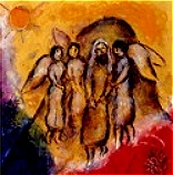
[ "You were once darkness; now you are light in the Lord. Walk as children of light." - Eph.5:8 ]
05.22.24 (Iyyar 14, 5784) The very purpose of our lives is to embody the heart of our Lord, to partake of the divine nature (John 15:7; 2 Pet. 1:4). We are commisioned to know the mind of Messiah and to share his redemptive vision for the healing of the nations (1 Cor.2:16; Psalm 67:1-2; Rev. 22:2). Anything that leads us away from walking in His light - any thought, word, emotion, or deed that is inconsistent with the grace and compassion of our Savior - is therefore a form of temptation.
Allow the light of God's love shine within you brightly. Refuse the darkness of fear. As Yeshua our Savior said, "Whoever has my commandments and keeps them, such is the one who loves me. And the one who loves me will be loved by my Father, and I will love him and will manifest myself to him" (John 14:21). Note that the Greek word for "manifest" means to "shine inside" (i.e., ἐμφανίζω, from ἐν, "in" and φαίνω, "shine"), indicating that the revelation would be inward light of the Divine Presence. Indeed, the Hebrew word for "praise" (i.e., tehillah: תהילה) comes from a verb that means "to shine" (i.e., halal: הלל), from which we derive the word "halo." Similarly, the word "aura" comes from the Hebrew word "ohr" (אוֹר) meaning "light." Let your inner light shine before others so that they may see your good works and give honor to your Father who is in heaven" (Matt. 5:16).
May it please our Lord to shine his face upon us so that His truth will be declared throughout the earth, and that his salvation (Yeshua) will flow to all the nations. Amen.
Hebrew Lesson
Psalm 67:1-2 reading (click for audio):
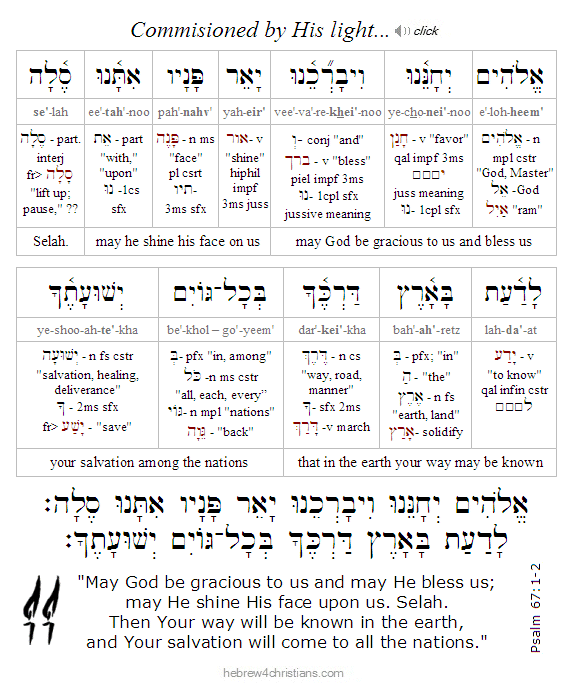 |
Theology and Humilty...
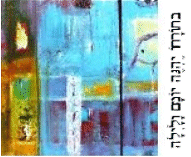
05.22.24 (Iyyar 14, 5784) Everyone is a theologian of sorts, though not everyone takes the time to think clearly and to reflect on the meaning of the words they use, and therefore studying Hebrew is necessary because so much muddled theology exists... Generally speaking "theology" (θεολογία) may be defined as reasoning (λόγος) about God (Θεός), though such reasoning is grounded in the philosophical activity of apprehending truth about ultimate reality. And just as everyone is a theologian (either a good one or not), so everyone is a philosopher of some kind or another, that is, a person who opines or speculates about the ultimate questions of life. To be a conscious person (as opposed to being numb or asleep) implies that you are haunted by the "big questions"of life (for example, "Who are we?" "Where did we come from?" "Why are we here?" "Where are we going?" and "What does it all mean?"), and therefore every self-reflective soul cannot escape the need to think clearly.
The disciples of Yeshua are called talmidim (תַּלְמִידִים), that is, "learners" who have a duty before God to know and to live the truth. We are to "study to show ourselves approved before God, rightly understanding the word of truth" (2 Tim. 2:15). The alternative to being talmud chacham (a wise student) is to be muddled (or indifferent) about what you believe and why your believe it. Faith is called the conviction (ἔλεγχος) or "argument" of truth (see Heb. 11:6). Not knowing the truth makes you vulnerable to various forms of philosophical deception and theological error, as it is written: "Beware lest anyone cheat you through philosophy and empty deceit, according to the traditions of men, according to the basic principles of the world, and not according to Messiah" (Col. 2:8). "However, we speak wisdom (σοφία) among those who are mature, yet not the wisdom of this age, nor of the rulers of this age, who are coming to nothing, but we speak the wisdom of God in a mystery, the hidden wisdom which God ordained before the ages for our glory" (1 Cor. 2:6-7). It is the knowledge of the truth that sets us free (John 4:24, John 8:32; 2 Cor. 3:17).
Because we must both love the truth and discern what is false, clear thinking is required of us. "Good philosophy must exist, if for no other reason, because bad philosophy needs to be answered" (C.S. Lewis). Now philosophy is philosophy, but loving God is something more... Faith is not just a "head trip," but a "heart trip," and therefore it is essential to immerse the passions in all that we do. There is a real danger of intellectualizing faith, becoming something of a "professor" about God or a "Bible answer man" where you live "up in your head," full of sophisticated thinking about abstruse matters while disregarding the existential pathos and demands of the gospel....
Over the years I have read various theologians that make God seem so remote and abstract that you wonder who or what is being talked about, after all. There is a danger to regard God as an "object' of knowledge -- a glorious, superlative, and supreme thing to study -- but a "thing" none the less. Tragically those who argue about theology have yet to learn the first truth that honest philosophy can offer, namely, that most of the time we don't really know (or fully understand) what we are thinking or saying. Being aware of our own blind spots requires forsaking our supposed infallibility and humbling acknowledging our own ignorance. We see "through a glass darkly." Indeed, the intellect can act as a "defense" against what the Living God says to the wounded heart. That's always been the danger of mere "religion," after all, offering recipes and rituals, dogmas and assured theological confessions, while forgetting the desperate and hurting souls who must find the love of God or die....
"God of Abraham, God of Isaac, God of Jacob -- not of the philosophers and scholars." These words represent Pascal's change of heart. He turned, not from a state of being where there is no God to one where there is a God, but from the God of the philosophers to the God of Abraham. Overwhelmed by faith, he no longer knew what to do with the God of the philosophers; that is, with the God who occupies a definite position in a definite system of thought. The God of Abraham . . . is not susceptible of introduction into a system of thought precisely because He is God. He is beyond each and every one of those systems, absolutely and by virtue of his nature. What the philosophers describe by the name of God cannot be more than an idea."
(Martin Buber: Eclipse of God, 1952)
Hebrew Lesson
Jer. 29:13 reading (click):
Assured by Love's Promise...
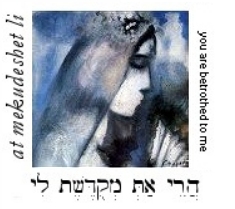
[ "Grace is not looking for good men whom it may approve, for it is not grace but mere justice to approve goodness. [Rather] it is looking for condemned, guilty, speechless and helpless men whom it may save, sanctify and glorify." - C. I. Scofield ]
05.21.24 (Iyyar 13, 5784) Right now, as you are seeing this, take a moment to reaffirm that the Lord Yeshua is your deliverer and that you trust in Him for eternal life. He promises the trusting heart: "I tell you the solemn truth, the one who hears my message and believes in the One who sent me has (i.e., present active indicative) eternal life and will not be condemned, but has passed over (literally, "crossed over") from death to life" (John 5:24).
Note that the verb translated "has passed over" is "perfect active" that expresses completed action: "this one has already crossed over from death to life." In other words, the gift of eternal life is an accomplished reality (though it is only experienced as we truly surrender to the love and grace of God from a heart of faith). The "basis" of life is now radically new and of a different order. As the apostle Paul later summarized: "For it is by grace you have been saved (i.e., a perfect passive participle that denotes completed action done on your behalf with effects that continue to the present) through faith, and this is not from yourselves, it is the gift of God, not a result of works, so that no one may boast" (Eph. 2:9-10). I'm so glad it's not the strength of my grip that keeps me holding on to God, but the strength of His...
So "be strong and of good courage" – chazak ve'ematz! The Lord our God promises "never to leave you nor forsake you" and to be with you wherever you go (see Josh. 1:5,9; Heb. 13:5, Psalm 139; Matt. 28:20). In the Greek New Testament, the wording of Hebrews 13:5 is highly emphatic: Οὐ μή σε ἀνῶ, οὐδ᾽ οὐ μή σε ἐγκαταλείπω: "Not ever will I give up on you; no, not ever will I leave you behind." Alevai! May you hear the voice of the Good Shepherd calling you, and may He forever keep you under His watchful care. Amen.
Hebrew Lesson
Jer. 31:3b Hebrew reading (click):
A Heart of Wisdom...
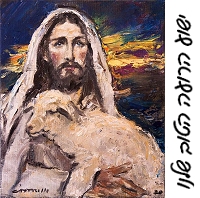
"Teach us to number our days aright that we may attain a heart of wisdom." - Psalm 90:12
05.21.24 (Iyyar 13, 5784) Since everything is under God's supervision, it is forbidden to regard actions and outcomes as the result of accident, chance, "luck," or happenstance... Those are all pagan ideas, based in ignorance and superstition. Faith in the LORD God Almighty is grounded in unqualified trust that He is Adonai Ro'i, the LORD your Shepherd, the One who restores your soul, and that conviction provides the framework for apprehending the truth of Torah. A lost faith regards the events of life as random, based on "fortune," and blind chance; it no longer sees God's hand in the affairs of daily life, but consigns the Divine Presence to a place of functional exile. For this the "like for like" judgment is given: as you regard your life as the product of random forces, so you will be unable to discern God's hand in your daily life.
We trust that "all things work together for good" (Rom. 8:28) and therefore we bless God for perceived evil as well as for perceived good, since all circumstances of life come from the hand of the LORD our God. We believe in an all-powerful, supreme LORD who has not abandoned the world, but who actively sustains and upholds it with benevolent intent. When difficult things happen to the righteous, we trust in God's personal care for their ultimate good, despite their present troubles. "Though he slay me, I will trust in Him" (Job 13:15). What's perhaps most heroic about Job is that he never turned away from hope, despite the crucifixion of his world. As Kierkegaard said, "The moment the LORD took everything away, he did not say, 'The LORD took away,' but first of all he said, 'The LORD gave..." (Upbuilding Discourses). This is the heart behind the Kaddish, the mourner's prayer, that expresses acceptance of God's world, despite the pain, sorrow, loss, and so on.
Therefore may God "teach us to number our days aright that we may get a heart of wisdom" (Psalm 90:12). The sages say on the day of death, one considers one's life as if it had been a single day... Life goes by so quickly, and we never know when our personal "Rosh Hashanah" will come. "No one knows the day or hour..." That's why it is so vital to be healed and to turn to God while there is still time. So turn to him today and bacharta ba'chayim – "choose life!" "For this commandment (of turning to God in faith) is not hidden from you, and it is not far away. It is not in heaven... nor across the sea.... Rather, the matter is very near you – in your mouth and your heart – to do it" (Deut. 30:11-14; Rom. 10:8-13).
Hebrew Lesson
Psalm 90:12 reading (click):
Remembering our Roots...
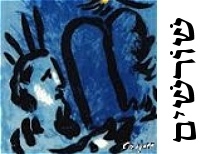
05.21.24 (Iyyar 13, 5784) How important are the Jewish roots of our faith? How important is our heritage in relation to our understanding of God's ways? Our Torah portion this week is called "Behar," from the phrase behar Sinai (בְּהַר סִינַי) found its opening verse (Lev. 25:1). But why does the word Sinai appear in a portion of Torah that discusses social and agricultural laws that were to be observed only later, in the promised land? What does the subject of the Sabbatical Year (shemittah) have to do with the revelation given at Sinai?
The sages say that the Sabbatical year was mentioned in connection with Sinai in order to teach that Moses received not only the Ten Commandments and the revelation of the Tabernacle there, but also specific laws regulating future social and economic practices of the people as well. The law of the Sabbatical year is a case in point, since it would have been absurd for a law that required farmers to abandon their farming practices once every seven years to have been proclaimed while the people wandered in the desert...
How important is tradition in our lives? So important that we could not understand even the first word of the Scriptures without it... There is a story that illustrates this point. A pagan came to Hillel seeking to convert to the faith in the LORD but was troubled with the idea of tradition, though he accepted the idea of the written Scriptures. Since the man did not know how to read Hebrew, however, Hillel began pointing to the letters in the written Torah to teach him the alphabet: "This is Aleph... this is Bet... this is Gimmel," and so on, until the man began to understand the letters of the Aleph-Bet. "Now come tomorrow, and I will teach you more." The next day, Hillel pointed to the exact same letters but reversed their names, "This is Gimmel... this is Aleph... this is Bet," and so on. The convert was confused: "But yesterday you said just the opposite!" Hillel replied, "Now you have had your first lesson. You see that the written word alone is insufficient, and we need the tradition to explain God's Word." Another way to make this point is to say that the Torah was not revealed along with a dictionary that defines the meaning of its words...
All this is said to remind us that the transmission of Torah from generation to generation demands that we trust. Indeed the very concept of "Torah" (or Scripture) is bound up with trust and community... This is true of the written word (i.e., trusting in scribal traditions that preserved the Scriptures for us), as well as the oral word (i.e., the customs, interpretations, translations, and wisdom that explain the meaning of the words themselves). Knowledge has been defined as "justified true belief," which implies that there can never be knowledge without trust. It is ludicrous to think that we can translate the Scriptures in a vacuum - all by ourselves without any help from others... We must humble ourselves and become "like little children" to learn from those who have gone before us, and this is why the Jewish value of Talmud Torah - teaching children the words and values of Torah - is regarded as so important. As the Talmud puts it, "The world exists because of the breath of the schoolchildren who study Torah" (Shabbat 119b).
But what about the words of the Holy Scriptures? Don't they transcend cultural factors? Are they not timelessly true and exempt from culturally conditioned ways of reading them? Not at all! Both Christianity and Judaism (as opposed to some other religions) do not worship a "book" that "floated down" from heaven complete with chapters and verses. Nor do we believe in a "divine dictation" theory that claims the Scriptures are "Xerox" duplicates of the words spoken by an angel or other divine being. No, the Scriptures are regarded as the products of history -- sacred history, of course -- but history nonetheless. Therefore we have the same problems trying to discern the meaning of the Scriptures as we do for any other type of literature: Who was the original author and the intended audience? What were the cultural circumstances? Why was this written? What kind of writing is it? Is it a poem (like a psalm), or perhaps an instructional maxim (like a proverb)? Am I reading an historical account, a description of a religious ritual, or something else? First we must know what we are reading - and to understand its historical context. Ignoring this simple rule leads to all sorts of errors in our reasoning and makes us unwitting victims of our own cultural biases. We will find ourselves "reading into" the Scriptures things that just aren't there, chaverim!
Regarding the literal words of the Scriptures, it's important to remember that the decisions made regarding which scrolls were "canonical" (and therefore to be included in our modern Bibles) came from the decisions made by earlier faith communities -- just as such decisions likewise preserved the sanctity of the sacred texts themselves. For instance, without the Jewish scribal transmission known as the masorah (מָסוֹרָה), it's unlikely we would know how to read and interpret many passages of Scripture today (Christianity also has its own scribal traditions that preserved the transmission of the Greek New Testament). Original Hebrew did not include vowel markings or other punctuation. Neither did the Greek of the New Testament, for that matter. Indeed, we can only understand the message of our faith through the medium of historical continuity, tradition, and ongoing dialog.... This was true even in the days of Yeshua, who endorsed the traditional tri-fold division of the Jewish Scriptures (the Law, Writings, and Prophets - Luke 22:44) and relied on Jewish tradition to teach great truths about his message (e.g., he associated the Passover seder with the "Last Supper" rituals of the New Covenant; he called himself Living Water and the Light of the world during Sukkot, and so on.) Yeshua placed high value on the "jots and tittles" of the texts of Scripture that were part of the spiritual heritage of his day (Matt. 5:18).
But didn't Yeshua condemn the "traditions of men" in His day? Didn't he reject the traditions of the elders of Israel (Mark 7:5-13)? Didn't he rhetorically ask the religionists of his day, "Why do you break the commandment of God for the sake of your tradition" (Matt. 15:2-10)? Yes he assuredly did, though it is important to understand the historical context of these sorts of statements. First, he was certainly not condemning "true traditions" that are outlined in the Scriptures themselves. Yeshua's entire ministry was predicated on the "appointed times" of the LORD and their fulfillment in him. "Do not think that I have come to abolish the Law or the Prophets; I have not come to abolish them but to fulfill them" (Matt. 5:17). Indeed, when he was asked what was the greatest commandment of God, Yeshua quoted the Shema: "Hear O Israel, the LORD is our God, the LORD alone; and you shall love the Lord your God with all your heart and with all your soul and with all your mind and with all your strength" (Mark 12:29-30), something Jewish tradition had affirmed since the time of Moses (Deut. 6:4-5). So no, Yeshua did not object to all traditions, but rather took issue with dogmatic interpretation of various aspects of ritual law and with the rabbinical interpositions that "built fences" around the simple meaning of the Scriptures. These man-made "fences" (i.e., gezerot) created unwarranted restrictions that obfuscated the teaching of Scripture and effectively relocated the source of interpretative authority to the religious leaders of the day... This was the crux of the disagreement between Yeshua and the Pharisees. (For more about this, see "The Heart of the Law; the Law of the Gospel".)
We all live by hours of the day, days of the week, seasons of the year, and God has revealed cycles and patterns of community life for Israel. Indeed, the mo'edim (festivals and appointed times) of the LORD are rooted in history and have prophetic implication for our lives. The "traditions of the elders" which Yeshua condemned had more to do with hidebound interpretations of the Scriptures (later embodied in the "Oral Law") than with the idea of tradition itself. The Greek word for "tradition" (παράδοσις) is a neutral term, simply meaning "handing down" (from παρά (down, from) + δίδωμι (to give)) what was given before. Both Judaism and Christianity hold to an "oral tradition" following the ministries of Moses and Yeshua, respectively. Because of the imminent expectancy of the return of Yeshua after His resurrection, the gospels were not committed to formal writing until the prospect of the death of the eyewitnesses loomed large. Moreover, there were numerous Gospel accounts which were eventually compiled into a standardized retelling of the story (Luke 1:1-4). In Jewish tradition, Moses received the written law at Sinai, but this cannot be understood in a vacuum. For instance, the details about how to construct the furnishings of the Tabernacle are not given, and the written law even endorsed the establishment of "judges" to interpret case law and establish precedent. Likewise the Apostle Paul admonished, "Therefore, brethren, stand fast, and hold the traditions (παράδοσις) which ye have been taught, whether by word, or our epistle" (2 Thess. 2:15, 1 Cor. 11:2). Indeed, in a New Testament sense, "tradition" refers to the Apostolic teaching in general, as well as the valid inferences from the Tanakh that are thereby implied (2 Tim. 3:16, Matt. 13:52).
There is legalism -- i.e., the idea that we are duty bound to perform certain rituals, behave a certain way, follow a set of rules, etc., and there is the liberty we enjoy as the heirs of God. There is a higher way of understanding the same thing -- namely understanding as an adult rather than as a child. Apprehending your identity as a son (or daughter) of the LORD God of Israel makes you no longer an outsider, a "child," an "outcast," etc., to the covenantal obligations and promises given to the Jewish people. As a co-heir and fellow member through adoption into the household of God, you are a new creation. Being a Jew is a matter of having a new heart, chaverim (Rom. 2:28-29).
Hebrew Lesson
Psalm 19:8a reading (click):
In Hebrew the word chinukh (חִנּוּךְ) means "education," a word that shares the same root as the word "chanukah" (חֲנֻכָּה, "dedication"). Unlike the Greek ideal that regards education as "enlightenment" (i.e., being "led out" of the cave of ignorance), the Jewish ideal implies dedication to God and His concrete purposes on the earth. This ideal goes beyond the process of merely transmitting information, since dedication must be modeled (lived) as well as intellectually taught. Maimonides noted that the Hebrew word chinukh comes from the Torah's description of dedicating a tool for use at the Holy Altar, "habituating the tool for its work." In other words, godly education is a process of modeling how to be made into a "fit vessel" for the service of God in this world. All other ends of knowledge ultimately exist for this purpose, and rightly understood, then, education may be regarded as a form of worship.
Disciples of Yeshua are called talmidim (תַּלְמִידִים) - a word that comes from lamad (לָמַד) meaning "to learn" (the Hebrew word for teacher is melamad (מְלַמֵּד) from the same root). Education is therefore foundational to being a disciple of the Messiah, and the great commission is for each of us to share His teaching with others (Matt. 28:19-20). May God help each of us to be students who are dedicated to living for the sake of Yeshua's Name.
Hebrew Lesson
Psalm 119:111 reading (click):
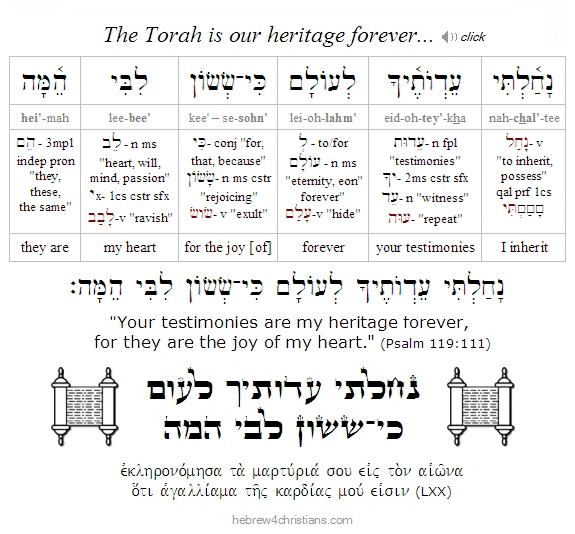 |
Related Audio:
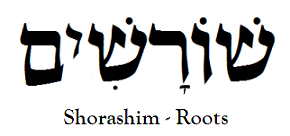
Blessing of Menuchah...

[ The following is related to our Torah reading for this week, Parashat Behar.... ]
05.21.24 (Iyyar 13, 5784) In our Torah for this week (i.e., parashat Behar), the LORD gave his people instructions about how they were to manage the promised land once they finally entered it. Instead of commanding the people to work hard to sustain themselves, however, God gave them laws of rest – of releasing their hold on the land (see Lev. 25:1-7). During the "Sabbatical years" (shemittah) the land was to lie fallow, and the people could eat only what was produced naturally, without any farming or organized harvesting.
Letting go of the land required the people to trust that God was in control of nature's creative processes, and to acknowledge that the process of growth is mysterious and divine. As Yeshua said: "The Kingdom of God (מַלְכוּת הָאֱלהִים) is like someone who spreads seed on the ground. He goes to sleep and gets up, night and day, and the seed sprouts and grows, though he does not know how. By itself (αὐτομάτη, i.e., "automatically") the soil produces a crop, first the stalk, then the head, then the full grain in the head. And when the grain is ripe, he comes in with his sickle because the harvest has come" (Mark 4:26-29). In other words, the "ordinary" process of the growth of a seed is miraculous and is a gift from above.
The "Torah of the Sabbatical Year" teaches us that creativity and fruitfulness requires that we let go and leave the outcome to God.
Hebrew Lesson
Psalm 116:7 reading (click):
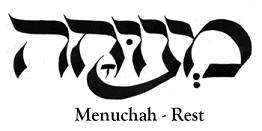
Strangers to this world...
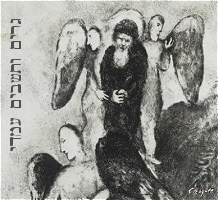
05.20.24 (Iyyar 12, 5784) Parashat Behar includes two special laws that were intended to radically affect the social, economic, and spiritual well-being of Jews in ancient Israel. The first law was to "release the land" every seventh year, called ha-shemittah (הַשְּׁמִטָּה), which meant that the land would lie fallow by not being seeded or harvested (see Lev. 25:1-6). The shemittah law involved far more than simply refraining from agricultural labor, however, since it implied that everyone was required to forgive all their debtors as well (Deut. 15:1-4). This recurring cycle of "rest and forgiveness" was to be commemorated as an appointed time (מוֹעֵד) when everyone would gather together during the festival of Sukkot to listen to the Torah read aloud (Deut. 31:10-12). God's word was proclaimed from Zion; the land would breath and rest; people's burdens were lifted; and everyone would dwell in booths (sukkot) to recall their temporary status on the way to obtaining an eternal inheritance... No wonder Sukkot was regarded as the most joyous of the Torah's holidays!
The second special law was even more joyous. After seven of these seven-year sabbatical cycles (shemittot) had elapsed, the 50th year (called the "Jubilee" year [i.e., shenat ha-Yovel: שְׁנַת הַיּוֹבֵל]) was proclaimed, and all servants would be set free (i.e., "released"), all debts would be forgiven, and the land would be "reset" to its original condition (Lev. 25:8-17). This joyful occasion is called the "Jubilee Release" and signifies the life of redemption (גְּאֻלָּה) for the community of God. It is also called Shemittah LaAdonai: "the LORD's Release" (Deut. 15:2). Just as Shavuot comes after seven cycles of seven days (i.e., the 50th day of Sefirat HaOmer) and therefore represents the perfection of freedom, so the Jubilee Year (Yovel) signals a time of freedom, dignity and equality for all people.
On Yom Kippur of the Year of Jubilee, a great shofar blast (i.e., teruah: תְּרוּעָה) would be sounded throughout all the land to proclaim liberty: "You shall sound the shofar on the tenth day of the seventh month, on the Day of Atonement (וֹם הַכִּפֻּרִים) shall you sound the shofar throughout all your land. And you shall hallow the fiftieth year, and proclaim liberty (דְּרוֹר) throughout all the land to all its inhabitants thereof: it shall be a Jubilee (יוֹבֵל) for you. And you shall return every man to his estate, and you shall return every man to his family" (Lev. 25:8-10). Despite the fact that part of this verse appears on the "Liberty Bell" in Philadelphia, this verse ultimately refers to the coronation of the Mashiach Yeshua as the true liberator of the Jewish people.... Indeed, the word yovel is another word for a ram's horn, or shofar, signifying the coronation of the King...
The observance of shemittah (שְׁמִטָּה) was a real test of faith, since it meant that the Jews had to completely trust that the LORD would provide for them, despite abandoning their usual farming and banking practices. God repeatedly warned the Jews not to oppress one another (Lev. 25:14,17) and explicitly promised His protection and care despite these counterintuitive practices (Lev. 25:18-22). Sadly, the people did not observe the laws of shemittah, and this eventually lead to the 70 year captivity in Babylon, one year in captivity for each year that shemittah was disregarded (2 Chron. 36:20-21).
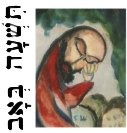
Regarding the laws of Shemittah and Yovel, the LORD states: "The land shall not be sold in perpetuity, for the land is mine, for you are strangers (גֵּרִים) and settlers (תּוֹשָׁבִים) with me" (Lev. 25:23). This is a paradoxical phrase, since a ger is one who is just passing through, like a visitor or tourist, whereas a toshav is one who is a resident, like a settler or citizen. How can someone be both a visitor and a resident of a place, or a stranger and a citizen at the same time? How can one "pass through" a place he is said to dwell?
Concerning this paradox the Maggid of Dubna comments: "If you see yourselves in this world as strangers and remember that you are here only for a short visit, passing through the hallway of this world, then I will settle among you. However, should you see yourselves as settlers on this world, "owners" who are here to stay, then I am but a stranger among you. Either you are the settlers and I the stranger, or you the stranger and I the settler."
Torah describes the people of faith as "gerim ve'toshavim imadi" (גֵרִים וְתוֹשָׁבִים עִמָּדִי), "stranger-settlers" with God in this world (Lev. 25:23). We are "in" but not "of" this realm; we live in the temporal yet are looking for the heavenly city to come (Heb. 11-9-10). Indeed the Eternal dwells among those who are exiles in this world, but to those who lay claim to life in this world God makes himself a stranger. .. As James warned, "Do you not know that friendship with the world is enmity with God? Therefore whoever wishes to be a friend of the world makes himself an enemy of God" (James 4:4). Likewise the Apostle John admonished: "Do not love the world or the things in the world. If anyone loves the world, the love of the Father is not in him... For the world is passing away along with its lusts, but whoever does the will of God shall abide forever" (1 John 2:15,17). Those who walk in faith invariably find themselves gerim v'toshavim (גֵּרִים וְתוֹשָׁבִים) - "strange settlers" upon the earth (Heb. 11:13).

Abraham "sojourned" in the land of promise, as in a foreign land, living in tents with his children because he looked for a city whose builder and maker was God (Heb. 11:9-11). Likewise we are strangers and exiles here, on the journey to the reach "the City of Living God, to heavenly Jerusalem, to the assembly of the firstborn who are enrolled in heaven" (Heb. 12:22-23). When we take up the cross and follow Yeshua, we die to this world and its dreams. We die to ourselves in order to find life (Mark 8:35-36). We give up houses, lands, all our possessions, family relationships, and even our own lives in order to find residence with God (Matt. 19:29; Luke 14:26). We reckon ourselves "dead" to this world as our home and "look not to the things that are seen but to the things that are unseen; for the things that are seen are transient, but the things that are unseen are eternal" (2 Cor. 4:18). We walk by faith, not by sight. Faith is the conviction (ἔλεγχος) of things unseen (Heb. 11:1) - and that includes the conviction that God will visibly care for our needs even if we let our gardens go fallow and release our claim on all our debtors...
We must venture out to take hold of the miraculous Presence of God. "According to your faith be it done unto you" (Matt. 9:29). I pray that we do not miss this awesome opportunity to truly share the present exile with God, chaverim, for one day those who are "strangers" with Him shall share His glory.... Meanwhile, we are not without comfort, though we still groan for the great homecoming to come.
Hebrew Lesson
Psalm 39:12 reading (click for audio):
When we are strangers to this world, we reside with God: we are called residents of heaven. To be a stranger to this world is a great blessing, since it means we identify our home in the heart of God. By extension, reality is measured by proximity to the Eternal, and the material world - when regarded as an end in itself - is nothing but an illusion, since it cannot exist apart from the sustaining power of God (Heb. 1:3; Col. 1:16-17; Rev. 4:11). The sages note that in Hebrew there is no language of categorical ownership, since all things are conditioned by time. We say yesh li (יש לי) - "there is to me" (for this time) rather than "I have" or own. Ownership is related to the "bone" (עצם) of something, its inner structure and essence. God alone is koneh shamayim va'aretz (קנה שׁמים וארץ), the Owner of Reality (Gen. 14:19). "For from him and through him and to him are all things. To him be glory forever. Amen" (Rom. 11:36).
His Welcoming Presence...
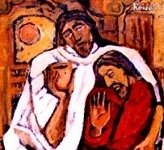
05.20.24 (Iyyar 12, 5784) "Not being welcome is your greatest fear. It connects with your birth fear, your fear of not being welcome in this life, and your death fear, your fear of not being welcome in the life after this. It is the deep-seated fear that it would have been better if you had not lived" (Nouwen). The message of the gospel is - above all else - an invitation, a cry of welcome, that sings out to you in your loneliness and shame. The core of the battle is here - whether you will decide to trust in God's love or shrink back into the places of darkness, isolation, and pain. Yeshua says, "Come to me; I love you, I accept you; I receive you; please, be welcome with me; I will take your hand, I will be with you..."
I've wrestled with this sort of painful fear for as long as I can remember... a sense of not being welcomed, of not belonging, being "outside" looking in... For me, heaven is a sense of home, of acceptance, a place where you are "inside out" and yet completely loved. In short, heaven is nothing less being loved and accepted by the Lord, and hearing him say, "I love you; you belong to me; I call you my friend..."
Lord I need you; I need you more than my next breath or heartbeat, for your lovingkindness is better than life itself... I come before you; this is my request: that I might know your love, and that you might know my heartache for you. You said "seek my face, and my heart said to you, 'Your face, Lord, do I seek." Do not leave me bereft of comfort, O God; do not hide your face from me. For "whom have I in heaven but you? And there is nothing on earth that I desire besides you. My flesh and my heart may fail, but God is the strength of my heart and my portion forever..."
There is much talk about "receiving Jesus" into our hearts, but it is even more important to understand that He receives us into His heart... Shalom to you, dear friends. May God fill us all with a sense of his welcome, his acceptance, and his delight in you. Amen.
Hebrew Lesson
Psalm 63:3 reading (click):
Faith and Testing...

[ The way up is down and then up again. We ascend by descending and ascending again... ]
05.20.24 (Iyyar 12, 5784) When we go through a crisis or a difficult trial, we often discover what kind of person we are and what we really believe. This can be either unsettling or comforting, depending on how we understand God and whether we believe in his love for us.
God has not promised us an easy life, but rather a meaningful life full of troubles, sorrows, with abiding joy. The life of faith is no picnic in the park but rather an ongoing battle to hold fast to our confession despite various trials and temptations that come our way. Indeed the Scriptures clearly foretell that each of us will experience manifold trials in this life for the purpose of developing a patient and persevering character (James 1:3-4; Rom. 5:3; Heb. 10:36; Luke 21:19). These trials are given to us by divine design and under the direct supervision of the Lord, and therefore accepting them as part of God's plan for our lives encourages us to be faithful when we experience hardship (Job 1:21).
From a theological (or spiritual) perspective, a trial should not be regarded as a tragedy, though it is indeed tragic when a person who professes faith in God falls to pieces when they encounter troubles in their life. When this happens, it reveals their faith was meaningless in times of testing and unable to give the soul comfort.
It is easy to regard yourself as a "person of faith" when things are going well for you - when your prayers appear to be answered, when your health is good, when you are enjoying relative prosperity, and so on - in other words, when your faith doesn't challenge you to believe in God when you are in darkness, but simply appends to your life a sense of well-being and satisfaction. But it is when things suddenly go wrong, or when calamity occurs, that you feel dread in your "kishkas" and your hope is shaken... You may rashly conclude that God is not really with you, and that you were deceived in your religious views. If the suffering is intense or ongoing, you may be tempted to think God has abandoned you.
The way of a strong and mature faith, however, looks beyond the vicissitudes of temporal circumstances to apprehend the LORD who ordains all things for the blessing of our salvation. It relies on godly reasoning to discern that, whatever else may be going on, God is upon the throne and can be trusted to keep his promises to us.
"Faith is the substance (ὑπόστασις) of things hoped for, the conviction (ἔλεγχος) of that which is unseen" (Heb. 11:6). In other words, faith is the essence of hope in the unseen reality and goodness of God for our lives. As such, faith necessarily looks beyond the ephemeral and fleeting to reaffirm God's eternal counsel and good will. It reasons that God is not capricious or irrational; it confesses his moral perfections and holiness, and it avows that what God is true to his promises: what he has ordained is absolutely reliable and certain to pass (Mal. 3:6; Num. 23:19; 1 Sam. 15:29; Psalm 33:4; Psalm 119:160; James 1:17; etc.). And since God has secured for us eternal life and blessing in the sacrifice of his beloved Son, we can rest assured that he will not change his beneficent purposes for the good of our salvation and the glory of his name. Whatever our present circumstances be, God's concern for us remains faithfully constant, and therefore we can trust in his love for us.
That is what "at-one-ment" means, after all (John 17:22-23). Because God loves and accepts us, we trust Him to be present for us, even in the darkest of hours, on the other side of the veil, where he there "prepares a place for us" (John 14:2). As Yeshua said, "I tell you the solemn truth, the one who hears my message and believes the One who sent me has eternal life (חיי עולם) and will not be condemned, but has passed (i.e., μετά + βαίνω, lit., "crossed over" [עָבַר]) from death to life" (John 5:24). God's love "crosses over" from death to life and now forever sustains me.
Our great Savior calls out to all who are willing to hear, "Come to me, all who labor and are heavy laden, and I will give you rest. Take my yoke upon you, and learn from me, for I am gentle and lowly in heart, and you will find rest for your souls. For my yoke is easy, and my burden is light" (Matt. 10:28-30). Hallelujah! God loves you with an everlasting love; he has promised that all who come to Him will never be rejected or cast out (John 6:37).
Yeshua died so you could live (2 Cor. 5:21); you are made safe because of God's love for you (John 5:24; 10:28-30; Rom. 15:7). The Lord is always with you; he will never leave nor forsake you; indeed, nothing can separate you from God's unfailing and invincible love (Rom. 8:35-39). You are forgiven and declared righteous; you will not come to shame; you were chosen by God to know him forever. Your life and end are with God: you are a beloved child, welcome at God's table, given place in God's home...
"God is not a man, that he should lie, nor a son of man, that he should repent. Has he said, and will he not do? Or has he spoken, and will he not make it good?" (Num. 23:19). God does not say one thing and mean another; he does not play "head games" with us nor confound our hope in Him. No, "He is the Rock, his work is perfect; for all his ways are justice; he is a God of truth and without injustice: righteous and upright is he" (Deut. 32:4). By his very nature and being as YHVH (יהוה) God is faithfulness, truth, and love. He is to be trusted before all things. "Forever, O LORD, Your word is settled in heaven" (Psalm 119:89).
If you are ever tempted to think that God has been unjust or unfair, back up and investigate your theological assumptions. Understand that it is impossible for God to do evil or to act unjustly toward you. It is unthinkable that the LORD our Redeemer, the Savior who died on the cross bearing your sins would ever seek anything less than what is best for your life. So despite circumstances that may appear distressing, affirm that in no case has the LORD your Good Shepherd abandoned you or brought you to shame.
We rightly affirm that God is "omnipotent" (i.e., kol yakhol: כֹּל יָכוֹל), that is, he is all-powerful and that nothing can ever thwart his will (Dan. 4:35; Isa. 14:27; Isa. 43:13), but does that imply that can God do absolutely anything without qualification? Can he, for instance, create a rock so heavy that he cannot lift it? Can he make 2+2 = 5? Of course not, and there are many things God cannot do because they are inconsistent with his nature and essence. God cannot lie; he cannot do evil; he cannot commit suicide; and so on. None of these things implies any limitation of God's glory and power, of course, since God is "that which no greater can be conceived," and therefore he cannot be other than the maximal source of positive perfections... Therefore God, who has given us tokens of his presence and goodness by virtue of creation, by conscience, and by direct revelation, will not suddenly undermine his will by failing to bring us into the fullness of his promises. Surely the Lord of Glory, who gave up his only begotten Son for our salvation, who underwent the extreme passion of the sacrifice of his most beloved for our ransom, surely he will give us the blessing to persevere under trial; surely he will never forsake you.
As the Apostle Paul affirmed: "He who has begun a good work in you will perfect it (ἐπιτελέσει) unto the day of Yeshua the Messiah" (Phil. 1:6). God will confirm you to the end that you may be blameless in that day (1 Cor. 1:8; Psalm 138:8). The Lord is "able to keep you from stumbling, and to present you faultless before the presence of His glory with exceeding joy" (Jude 1:24).
God who is all-powerful, all-loving, and all-good has promised you blessedness and eternal life. Since he is all-powerful, nothing can overrule his will; since he is all-loving, he intends what is for your best; and since he is all-good, he cannot lie and therefore his promises for your blessedness and eternal life are forever secure. Your present suffering, therefore, serves the purpose of refining your faith, developing godly character, and revealing the depths of God's passionate intercession for all people. Your patience in life, your endurance, is the means by which you "sow" your faith; your reward for faith will bring glory and praise to the LORD for his mercies and wonders. "Behold, I have refined you, but not as silver; I have tried you in the furnace of affliction. For My own sake, for My own sake, I do it, for how should My name be profaned? My glory I will not give to another" (Isa. 48:10-11).
When your life seems to come undone, when your world is falling apart, when you are riddled with besetting pain and vexing sorrows, remember who God is and put your trust in his promises. Hold fast to God's eternal purpose for you to know and love him forever: "This is eternal life, that they may know You, the only true God, and Yeshua the Messiah whom You have sent" (John 17:3). Affirm God's faithful presence. Come boldly to him for mercy and grace to help in your daily struggle to believe. The LORD is always with you and he has promised to make all things new. In his time and according to his will, "all shall be well, all shall be well, and all manner of thing shall be well." Amen.
Hebrew Lesson
Psalm 138:8 reading (click for audio):
parashat Behar:
Shemittah and "Jubilee" Years
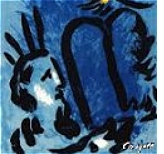
05.19.24 (Iyyar 11, 5784) Shavuah tov, chaverim! Our Torah portion this week (parashat Behar) begins with the commandment that an Israelite farmer must let his land remain fallow every seventh year. This is called the "Sabbatical year" (i.e., shemittah: שמיטה. "release"), and the inhabitants of the land were permitted to glean whatever the farmland produced naturally. In addition, the people were told to count seven cycles of seven years – a total of 49 years – and to mark the arrival of the fiftieth year with blasts of the shofar on the Day of Atonement (Yom Kippur). This fiftieth year would be a time of "Jubilee" (i.e., yovel: יוֹבֵל) – a year of "release" for the land and all its inhabitants. All slaves would be set free, debts would be canceled, and the stewardship of the land would revert to its original titleholders.
In this connection, you might wonder how to determine whether a given year is a Sabbatical year (i.e., shemittah). The procedure is simple: Take the current Jewish year and divide by seven; if there is no remainder, it is a shemittah year; otherwise it is not. For example year 5784 is not a Sabbatical Year, whereas year 5789 is a Sabbatical Year (note that the Jewish year begins on Rosh Hashanah, on Tishri 1, in the fall). The Jubilee year (yovel) of course follows the seventh of the seven year cycles (i.e., 7 x 7 + 1), though there are some questions about which iteration (1st, 2nd, 3rd... 99th) is currently active. According to some authorities, the last Jubilee year was on Yom Kippur 5776, that is, Tues. Oct. 11th, 2016, so the next would be 50 years later (i.e., in the year 5826).
Inner Transformation...

05.17.24 (Iyyar 9, 5784) The fact that God knows the number of hairs on your head is just to say that he knows you better than you know yourself... Your heavenly Father "sees in secret," and that also means that he can and will save you from whatever is hidden within you that still resists his love and touch... We have to trust in God's power to heal us, even when it seems that healing is not forthcoming, even when we still find ourselves divided, troubled, and anxious. We have to believe that God's help is always present. "Be strong, and let your heart take courage, all you who hope for the LORD."
God sees what He does within us, His "it-is-finished" work, the effect of His great salvation within our hearts, even if at this present hour this may be hidden from our eyes... There is appearance, and there is reality; and only God sees what is ultimately real. We have to trust in His promise to be transformed into the divine nature, even if today we find ourselves sinful, needy, and in disrepair... By God's grace we are what we are. So don't give up. We are saved by hope (ἐλπίδι ἐσώθημεν, Rom. 8:24), a hope for you today. Shabbat shalom....
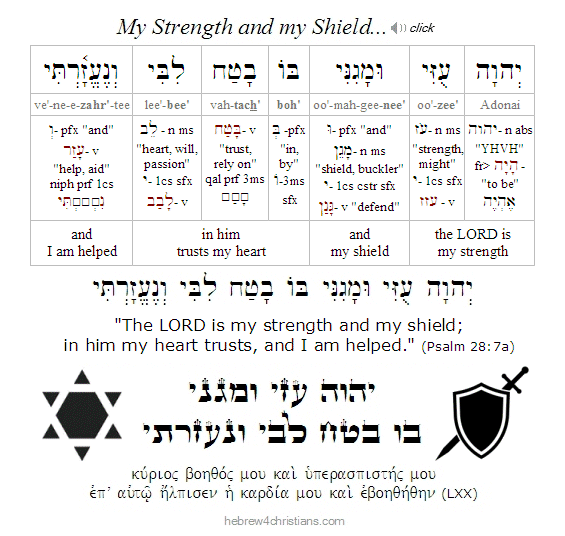 |
Consolation in Grief...
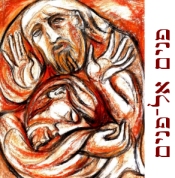
05.17.24 (Iyyar 9, 5784) Just a quick personal update, friends. I've been living in an emotional fog the last few months, grieving, soul-searching, feeling okay one day, the next falling to pieces... I don't sleep much; I am riddled with various pains. I review the past and try to understand but find no resolution. In my heartache I nevertheless "remember the future" and the precious promises of God. In my tears there is hope.
The Lord is present in the midst of the mess of my life; He is patient and kind, merciful and gracious, despite my ever present shortcomings and smallness of faith. I seek His consolations in my temptation to blame myself and live in sadness. When I get exhausted over myself, I pray in silence; my heart understands that He truly loves me and is always at my right hand.
Thank you for your prayers and support as I continue to press on in ministry, trusting in God's healing love and grace, and eagerly awaiting the day we shall see Him face to face. May that day come soon! Amen. - John
"Blessed be the God and Father of our Lord Yeshua the Messiah, who is the Father of Mercies (אַב הָרַחֲמִים) and God of all Comfort (וֵאלֹהֵי כָּל נֶחָמָה), the One who comforts us in all our affliction, so that we may be able to comfort those who are in any affliction, with the comfort with which we ourselves are comforted by God" (2 Cor. 1:3-4). Amen.
Faith without Fear...
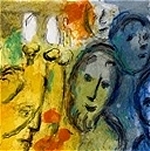
And he said unto me, "My grace is sufficient for thee (דַּי לְ חַסְדִּי), for my strength is made perfect in weakness." Therefore I will boast all the more gladly of my weaknesses, so that the power of Messiah may rest upon me... for when I am weak, then I am strong. - 2 Cor. 12:9-10
05.16.24 (Iyyar 8, 5784) The Spirit of the LORD speaks to the heart of faith: "Fear not, for I have redeemed you; I have called you by name, and you are mine" (Isa. 43:1). God has personally redeemed you, friend; he calls you by name, and you belong to Him. The Lord loves you with an everlasting love (אהבת עולם) and draws you close (Jer. 31:3). He will never leave nor forsake you, even if you might face waters that seem to overwhelm or fires that seem to devour (Isa. 43:2). The will of your Heavenly Father will never lead you to a place where his love will not there sustain you. Faith finds its place in God's heart.
Worry is a place of exile and pain. We are commanded, al tira, "fear not," because fear was behind the original sin in the garden, just as mistrust lies behind our own hiding and self-imposed exile from God... Since sin expresses a heart of fear (Rom. 14:23), the way of healing is to courageously turn back to God, despite our uncertainties. We can trust God's love for us because of the cross of Yeshua our Lord. If we haven't received God's love and acceptance, we are still enslaved to fear and abide in a state of exile. The love of God casts out our fear because it casts out all our sins (1 John 4:18).
It is written, "God has not given us the spirit of fear, but of power and of love, and of a "sound mind" (2 Tim. 1:7). Memorize that verse. The Greek word for "sound mind" means "safe" because of the power and grace of the Living God... If you sense fearful oppression within your heart, turn to the Lord and offer him focused praise. Lift up your soul to him and thank him for your trouble. This has the double benefit of confessing your trust in God's care, as well as vexing the enemy of your soul. Come boldly to the throne of grace to find your help (Heb. 4:16); cast all your anxiety on him, for he cares for you (1 Pet. 5:7).
The Name of the LORD (יהוה) means "Presence" and "Love" (Exod. 3:14; 34:6-7). Yeshua said, "I go to prepare a place for you," which means that his presence and love are waiting for you in whatever lies ahead (John 14:1-3; Rom. 8:35-39). To worry is to "practice the absence" of God instead of to practice His Presence... Trust the word of the Holy Spirit: "For I know the plans I have for you, declares the LORD, plans for healing peace and not for evil, to give you a future and a hope (Jer. 29:11).
Take comfort that your Heavenly Father sees when the sparrow falls; he arrays the flower in its hidden valley; and he calls each star by name. More importantly, the Lord sees you and understands your struggle with fear... Come to him with your needy heart and trust him to deliver you from the burdens of your soul (Matt. 11:28).
Hebrew Lesson
Isa. 43:1b reading (click):
Theodor Herzl Day - May 19th
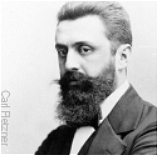
05.16.24 (Iyyar 8, 5784) This coming Sunday, May 19th is "Herzl Day" in Israel (i.e., Yom Herztl: יום הרצל), a national holiday established by the Knesset to commemorate the achievements and Zionist vision of Theodor Herzl (1860-1904), a man considered by many to be the father of the modern State of Israel.
During Herzl Day a memorial service held on Mount Herzl in Jerusalem, the site of Israel's national cemetery, where Herzl's tomb is located. It should be noted that though Herzl was a remarkable man, he was greatly influenced and helped by Bible-believing Christians who foresaw the vision of Zion and the reestablishment of the State of Israel and who therefore assisted him by providing support for his political vision.
For more information about Herzl Day, click here.
Hebrew Lesson
Psalm 122:6 reading (click):
Our Common Struggle...

05.15.24 (Iyyar 7, 5784) We all struggle with sin in our lives, and each of us needs deliverance from various attachments and fears that keep us from the "deeper seeing" of faith. The problem is within ourselves, that is, the contradiction of heart we experience in our double-mindedness, our ambivalence, and our unbelief (Jer. 17:9). We may recite the "Shema" every day and say that we love God with all our being, but in the ordinary moments of daily life we are drawn to other concerns, alien affections, other "gods." Indeed, whatever matters most to us, whatever consumes our attention, time, resources, and our interest, is something we "worship," that is, something we esteem as worthy and valuable...
People necessarily value things, and therefore every person alive is a "worshiper" (i.e., a person who finds "worth" in something). This applies equally to a devout atheist or pious skeptic as much as it does a deeply religious person... The question that matters, however, is what is your ultimate concern? What do you really want? Only when we begin to understand what draws and attracts us can we begin to discern what we really need. Therefore we must first acknowledge our false worship, our radical selfishness, and our sundry attachments in order to be set free. We must confess the truth that we are slaves.
Pride blinds us to the truth of our sickness of heart, persuading us to deny our problems, to cover them up, and to try harder and harder to "control" ourselves. This is a spiritual dead-end, a vicious circle, the "law of sin and death." We are set free, however, when we die to ourselves, that is, when we surrender to the love of God and receive the miracle of promised deliverance. Since we are powerless to change ourselves, to reform our lower nature, and to be healed by our own best efforts, we must abandon our "religion" and rely entirely upon the God for the power to heal. This is an ongoing venture: We die daily; we take up the cross daily, we walk with a limp from our inner struggle, and we cling to God alone show us the way and to guide our steps. Beloved, we have been crucified with Messiah and the old nature has lost its power over us; we are alive by the miracle of God's power. "If we live by the Spirit, let us also walk in the Spirit" (Gal. 5:25).
Hebrew Lesson
Zech. 4:6b reading (click):
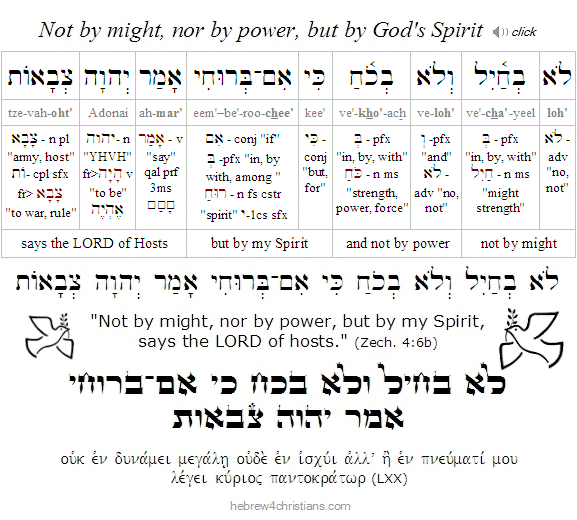 |
Sanctifying God's Name...
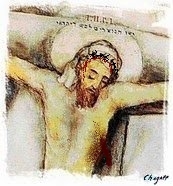
[ The following is related to our Torah reading for this week, Parashat Emor.... ]
05.15.24 (Iyyar 7, 5784) From our Torah this week (Emor) we read: "You shall not profane my holy Name, that I may be made sacred among the people of Israel" (Lev. 22:32), which the early sages said provides the basis for "kiddush HaShem" (קידוש השם), or the duty to always honor God, even if that might mean enduring martyrdom for your faith.
Jewish halakhah (law) furthermore says we are to think of kiddush hashem whenever we recite the Shema, that our inmost intent should be self-sacrifice (mesirat nefesh), or the willingness to give up our lives to God in complete surrender. After all, if we are not willing to give up our lives for God, how can we be willing to genuinely live for him? The purpose or goal of our very existence is to know and love God, to be sanctified in truth, but if we value our carnal lives on earth as more important, we exist in a state of contradiction. Therefore people obsessed with their own physical safety, health, pleasure, happiness, well-being, etc., do not know the true meaning of life...
Our lives on this earth were not meant to be an end in themselves, but rather a means to the greater end of knowing and loving the Eternal God. Indeed, God's love is better than any sort of life this present world can afford. As Jim Elliot once said, "He is no fool who gives what he cannot keep to gain what he cannot lose."
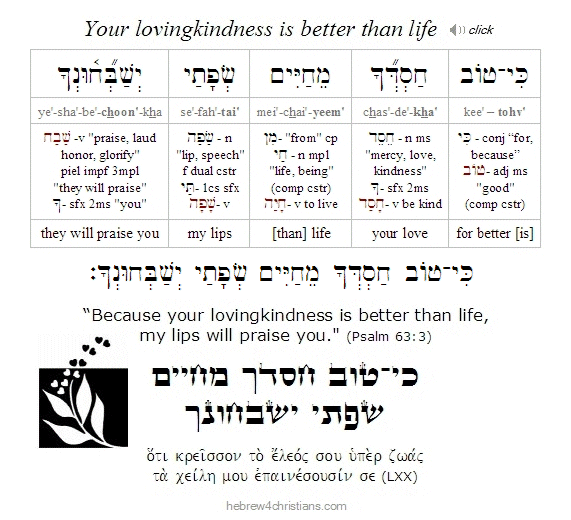 |
Sanctifying God's Name means that we regard our relationship to God to be an end in itself - our ultimate concern - and there is nothing higher that may challenge our duty before heaven. "Seek first the kingdom of God and his righteousness" (Matt. 6:33). Our mortal life in this fleeting world is a means to the end of reaching our eternal destiny (Psalm 16:11), and esteeming the means above the end is therefore idolatry (Rom. 1:25). This is called chillul HaShem (חילול השם), or profaning the Name of God...
Our faith in the LORD may lead us into collision with the world and its spurious power structures, however "we ought to obey God rather than men" (Acts 5:29). Taking a stand for Torah truth will make you an outsider to the "crowd" and its endless idols and vanities. Indeed a person of genuine moral conviction may be labeled an "enemy of the state," may be persecuted as a "terrorist," and may even suffer martyrdom.
Shadrach, Meshach, and Abednego rightfully defied the king's decree to bow down before the "golden image," and they confessed that they were willing to die rather than betray the truth of the LORD of Israel (see Dan 3). This is a prime example of kiddush HaShem, honoring the truth of God even at the risk of losing our lives. For many Jews, reciting the Shema is a solemn declaration that we esteem the truth of God above all things, that God alone is our ultimate good, and that we must be willing to surrender our lives rather than to deny the greatness and glory of His Name. Many tzaddikim have died with the Shema on their lips...
Kiddush HaShem may be understand both literally and metaphorically. Literally understood, kiddush HaShem (i.e., martyrdom) is a possibility, one of the severest tests that may be given to the soul, and the temptation is to shrink back from the threat of death by denying the faith... Metaphorically understood, kiddush HaShem is a necessity, an essential act of the will that decides to "take up the cross" and follow Yeshua, and the temptation is to minimize the truth, to compromise the faith, and thereby to slowly fade away...
In this connection Yeshua asks, "What will it profit a person if he gains the whole world and forfeits his soul?" (Mark 8:36). Indeed, finding your life, value, and "place" here is to exile yourself from the promise of heaven. As Yeshua said, "Whoever finds his life will lose it, and whoever loses his life for my sake will find it" (Matt. 10:39). What is required, in other words, is categorically everything, with nothing left over. As Dietrich Bonhoeffer reminds us: "Salvation is free, but discipleship will cost you your life."
We see an example of both chillul HaShem and kiddush HaShem in the life of the Apostle Peter. On the one hand, though he had boldly professed that he would be willing to die for Yeshua, he later denied that he even knew his Savior and friend (Luke 22:33-34). After doing teshuvah (i.e., repentance) however, Peter became wholehearted and fearless, and Christian tradition says he eventually died as a martyr under the tyranny of wicked Emperor Nero...
Likewise, in our effort to relate to people of different faith, we may be tempted to soften the demands of the gospel or to minimize the deity of Messiah. Sadly I've seen this happen a lot among Gentiles who get so enamored with the Jewish roots of the Christian faith that they begin to question, then outright deny the central Torah of our Messiah (the deeper law of mercy). Indeed we must not confuse the covenants of God, for this leads to double-mindedness and is regarded as "spiritual adultery" (see Rom. 7:1-4). It is chillul HaShem - the desecration of the Name of God - to turn away from the meaning and message of the cross of Messiah (Gal. 6:14; 1 Cor. 2:2). The price of being loyal to Messiah is mesirut nefesh (מְסִירוּת נֶפֶשׁ) -- surrendering your life by "taking up the cross." The cross is a scandal to religion and all other attempts to whitewash the truth about the human condition (Gal. 5:11).
In the Kaddish we read: "yitgadal ve'yitkadash shemei rabba," meaning "may God's great Name be magnified and sanctified." Amen, and may we honor and sanctify the presence of the LORD by turning to Him with all our heart, soul, and strength, knowing Him in all our ways. He is faithful and will help us sanctify His Name...
Hebrew Lesson
Deut. 6:4 reading with comments (5 min audio):
Being made whole...

05.14.24 (Iyyar 6, 5784) The Scriptures admonish us to be transformed by "renewing our minds" (Rom. 12:2), though exactly how we are to do this is an open question. Our perspectives and attitudes are shaped by assumptions we make about life, many of which are "pre-conscious" or hidden from our awareness. Habitual thoughts, biases, prejudices, fears, and so on, all affect (and can distort) the way we see and understand reality.
In light of this, then, how can we change our thinking? How can we overcome our habitual negativity, misery, and general unhappiness? How can we develop right thinking power? How can we learn to apply our minds to perceive the good, instead of responding in unreflective, prejudiced, and negative ways to our circumstances? How can we discipline our will so that "if there is anything worthy of praise, think about these things" (Phil. 4:8)?
There are countless books on the subjects of logic, detecting fallacies, clear thinking, and using sound reasoning techniques, but there are not many that discuss the "morality" or "rightness" of our thinking, that is, our God-given responsibility to perceive the truth and to consistently express it in our everyday actions. And since our thinking invariably leads to practical choices, we have an essential duty to know the truth and live out its implications in our lives. The failure to do so is not only inconsistent, logically speaking, but immoral, ethically speaking (and dangerous, spiritually speaking, since bondage is ignorance of the truth). If the truth bears witness that there is a personal God who creates each soul in the world, for instance, this should affect how we value and respect others, and the failure to do so will result in cognitive dissonance and internal contradiction that will yield mental suffering, misery, emotional pain, and insecurity in our lives. A "double-minded" person is "two-souled" (δίψυχος), unstable (i.e., ungrounded, restless, unbalanced) in all his ways (James 1:8).
Deliverance comes from receiving the light of truth, being "single-minded," with our eye focused on what is real. "If your eye is "single" (i.e., ἁπλοῦς, sincere, focused)," Yeshua said, "your whole body will be filled with light" (Matt. 6:22). This is the "deeper seeing" of faith to discern the truth that underlies existence itself. Likewise the Torah commands: "You shall be made whole (i.e., tamin: תָּמִים) with the LORD your God" (Deut. 18:13). We are made "whole" or "perfect" (i.e., complete) when we resolutely turn to God for healing of our inner dividedness, as it says: "The Torah of the LORD is perfect (תָּמִים), returning the soul" (Psalm 19:8). And where it is written, "Let us hear end of the matter: Fear God and love his commandments, the text adds: ki zeh kol-ha'adam (כִּי־זֶה כָּל־הָאָדָם), "for this is the whole man," suggesting that those who return will be healed of double-mindedness (Eccl. 12:13). Ultimately we are made whole when we are united to God in Messiah, for then we are "with the LORD our God" and the Spirit writes Torah within the heart of faith (Jer. 31:33).
The heart of truth sees beyond the present to find meaning in the Eternal, yet it refocuses on the present to endow it with sacred significance... "Love hopes all things" (1 Cor. 13:7). To rightly see the present moment, in other words, we must first look to the Eternal, since that grounds our perspective and contextualizes our hope: "For this light momentary affliction is preparing for us an eternal weight of glory beyond all comparison, as we look not to the things that are seen but to the things that are unseen. For the things that are seen are transient, but the things that are unseen are eternal" (2 Cor. 4:17-18).
Hebrew Lesson
Deut. 18:13 reading (click):
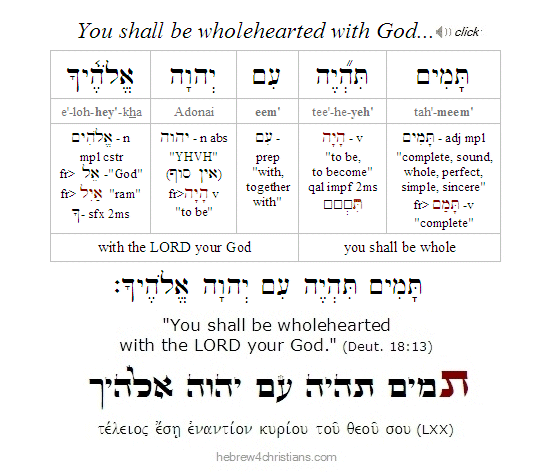 |
Regard this as a prophecy for your life: "You shall be made whole with the LORD your God" (Deut. 18:13). God's love heals the inner brokenness of our hearts. When we accept this, we discover that surrendering to God's direction truly makes us "whole." "As many as I love, I reprove and correct: be zealous therefore, and turn. Listen! I stand at the door and knock. If anyone hears my voice and opens the door I will come into his heart and share a meal with him, and he with me" (Rev. 3:19-20). These are words of our Lord Yeshua, who speaks to those who "hear his voice."
Amen. May we open the door of our hearts and turn to Him now...
Prophetic Significance of Israel...

[ Today marks Yom HaAtzma'ut (יום העצמאות) - Israel's Independence Day.... ]
05.14.24 (Iyyar 6, 5784) Can a case be made that we among the "terminal generation" before the return of Yeshua? The Torah predicted that the "End of Days" would occur sometime after the return of the Jewish people from their worldwide dispersion back to the land of Israel (see Deut. 30:1-3), and indeed the theme of exile and return is repeated in the prophets (see Jer. 23:3; 32:37-38; Ezek. 37:21, etc.). Therefore it is surely extraordinary that Israel was reborn as a nation in their ancient homeland on May 14, 1948 (Iyyar 5, 5708), after nearly 2,000 years of exile...
Moreover, the existence of the modern State of Israel is entirely consonant with New Testament prophecies regarding the advent of the Messiah, since Yeshua taught that the Jewish people would indeed be in the land of Israel at the time of his second coming, and that the city of Jerusalem would be surrounded by enemies of the Jewish state (see Matt. 24-25; Mark 13, Luke 21). Furthermore, if we understand a "generation" to mean 70-80 years in duration (as stated in Psalm 90:10), then when Yeshua said, "this generation (ἡ γενεὰ αὕτη) shall not pass until all these things take place" (Matt. 24:34), he was perhaps referring to the generation that would originate with the restoration of the modern State of Israel, which further implies that Daniel's 70th Week (i.e., the Great Tribulation) could begin very soon. And while it is true that "no one knows the day or hour" of the "great day of the LORD" (יוֹם־יְהוָה הַגָּדוֹל), Yeshua faulted the scribes and the Pharisees for failing to discern "the signs of the times" (Matt. 16:3) and for missing the "time of their visitation" (Luke 19:44), and therefore are we likewise admonished to use discernment as we anticipate his second coming...
Hebrew Lesson
Isa. 66:8 reading (click):
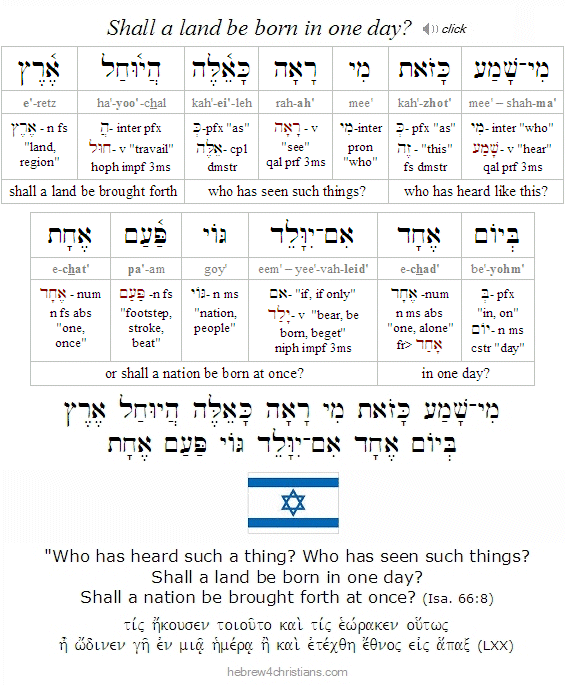 |
Am Yisrael Chai! - the people of Israel live! Like many other prophetic statements found in the Jewish Scriptures, this verse from the prophet Isaiah is "dual aspect," since it was both partially fulfilled when the Jewish people reestablished the State of Israel, but it will be entirely fulfilled at the outset of the Millennial Kingdom after the return of Messiah (see Isa. 66:7-16; Rom. 11:26). Meanwhile we behold the restoration of the "Fig Tree," and understand that the great harvest draws near, friends... May God help each one of us be awake, ready, with hearts full of steadfast faith (1 John 3:2-3; Titus 2:11-14; Matt. 24:32).
Regardless of how you may regard the prophetic events that herald the "end of the age," however, know this: Today might be your last in this world - your very own "Rosh Hashanah" when you will appear before the Judge and Creator of your life... Therefore should we live each day as if it were our last and pray that God will help us to serve Him in the truth.
Finally let me (preemptively) add that while we may discern that the time is indeed "short" and that the hour "draws near," I do not believe in "date setting" or predicting the return of the LORD, since that is "chokhmah nisteret" (חכמה נסתרת), "sealed wisdom," known only to the Father (see Matt. 24:36, Acts 1:7; 1 Thess. 5:2, etc.). Shalom.
Happy Birthday Israel!
Perfectionism and Holiness...

[ The following is related to our Torah reading for this week, Parashat Emor.... ]
05.14.24 (Iyyar 6, 5784) Our Torah portion this week (i.e., parashat Emor) begins by explaining special requirements for Israel's priests, and then goes on to list the yearly cycle of Sabbaths and the seasonal festivals. First of all the priests (kohanim) were required to be "perfect," without any physical defect or uncleanness that might render them unfit for service. Everything about the priests – their clothing, hair style, skin condition, and especially their adherence to the meticulous steps required to offer the daily sacrifice (לֶחֶם אֱלהָיו) - was to be "defect free," and any deviation might incur the penalty of death itself (see Lev. 10:2; Num. 4:15, 2 Sam. 6:6-7). On the other hand, what sometimes disqualified a priest were things simply beyond his control, for instance, a variety of physical disabilities such as blindness, having a limp or disfigured limb, and so on (see Lev. 21:16-21).
Thinking about these requirements raises some provocative questions concerning the meaning of "perfection" in our lives, and particularly how we, as a deeply flawed people, can possibly be "perfect." The question is radical and affects how we are to understand practical holiness or the idea of "sanctification": Are we to seek to be perfect people, and if so, how do we understand what this means? Is our spirituality bound up with perfectionism, with flawless performance, and with always being and doing what is right?
In the Sermon on the Mount Yeshua warned that our righteousness should exceed that of the religious leaders of his day (Matt. 5:20), and he went on to say: "be perfect, as your heavenly Father is perfect" (Matt. 5:48). Here we note that the Greek word translated "perfect" (τέλειος) may mean "mature" or "fully developed" more than morally flawless, though regarding moral and spiritual practice this distinction is not clear cut, especially if by "mature" we mean godly in character, as the context of Yeshua's statement clearly implies (see Matt. 5:1-48). The Hebrew word translated as "perfect" (תָּמִים) can also mean "complete," but it can connote being "wholehearted," "sound," or even healed (שָׁלֵם). So the question arises, does the word "perfect" mean "flawless" or "healed" -- or perhaps both?
Of course we affirm that God alone is truly perfect (Deut. 32:4; Psalm 18:30), completely good (Matt. 19:17), flawlessly righteous (Psalm 145:17), entirely holy (Isa. 6:3; Rev. 15:4), and peerlessly unique (Exod. 15:11; Jer. 10:6-7), but how can we relate to God's overmastering perfection in the midst of our daily flaws and chronic imperfections? How dare we approach "to offer the bread of God" (Lev. 21:17)?
Followers of the LORD are called to be a nation of priests, a "select people," set apart to serve God in holiness (Exod. 19:5-6; 1 Pet. 2:9; Lev. 11:45), but it is clear we are blemished, imperfect, blind, halt, needy, and unclean... This is common to the human condition: all of us, Jew or non-Jew alike, are broken, flawed, and in the midst of the inevitable flow of life that leads to death and decay (Rom. 3:23). We are sick with sin and unable to heal ourselves, and therefore we need a radical transformation - "deliverance from ourselves" – that must come through divine intervention and the miracle of spiritual rebirth (John 3:3,7).
Nevertheless in this world the paradox still remains: we are finite yet long for the undying, the infinite; we are in flux yet anchored in hope; we are a "new creation" yet still saddled with the old nature; we are made holy yet we live in the midst of the profane; we are purified yet still need cleansing; we are healed yet are still wounded; we are redeemed of God yet still need to turn to God in teshuvah; we die daily yet have eternal life. Our hearts are to be a divine sanctuary, yet we are powerless to make God appear in our midst...
Perfection haunts us; we often confuse the ideal and the real. Our romantic visions fail us; all of us are strangers, wanderers, in lonely exile. And the question then becomes – how do we embrace the "already-not-yet," the process, the fleeting days with their poignant moments – within the context of real hope, a vision that heals and brings us real comfort? How do we make peace with our imperfections, our present darkness, and our hunger for deliverance? How do we envision healing in the midst of our brokenness?
Ironically those defects that disqualify us as priests can be transformed (by grace) into compassion for others, and this can enable us to reach out to God in the midst of our flawed existence... After all, the deepest role of the priest is to draw others near to God, but this requires empathy and awareness of the needs of others. Therefore God clothed himself with our frailty, our infirmities, and the brokenness of our sin in order to redeem us in Yeshua. As it is written, we have a high priest who is able to sympathize (συμπαθέω) with our weaknesses (Heb. 4:15). The priest of the New Covenant is a mediator through through poverty of spirit and mourning (Matt. 5:3-8). Just as Joshua the high priest was graciously given robes of righteousness in exchange for his filthy garments (Zech 3), so we are given an imputed righteousness that comes through trusting in "the One who justifies the ungodly" (Rom. 4:5). "For our sake God made Him (i.e., Yeshua) to be sin who knew no sin, so that in him we might become the righteousness of God" (2 Cor. 5:21). This is a righteousness that is "apart from the law, though the law and prophets testified of it; namely, the righteousness of God given through the faithfulness of Yeshua the Messiah" (Rom. 3:21-22). Our present groaning for the complete deliverance is a gift given by the Spirit of God crying out within our hearts (Rom. 8:22-23).
C.S. Lewis once remarked, "God doesn't love you because you are good, but He will make you good because He loves you." This goodness is the miraculous inner working of an imparted godliness, the divine gift of a new heart and spirit (Ezek. 36:26). Awaken to your eternal perfection in the world to come: "You shall be perfect even as your heavenly Father is perfect" can be read as a prophecy. Do not give up, friends; do not succumb to despair. We must learn to endure ourselves and believe in the healing to come. "Do not lose heart. Though our outer self is wasting away, our inner self is being renewed day by day. For this light momentary affliction is preparing for us an eternal weight of glory beyond all comparison, as we look not to the things that are seen but to the things that are unseen. For the things that are seen are transient, but the things that are unseen are eternal" (2 Cor. 4:16-18). And may God help us walk in perfect faith in His unfailing love (Phil. 3:14).
Hebrew Lesson
Ezekiel 36:26a reading (click):
Transformed by Love
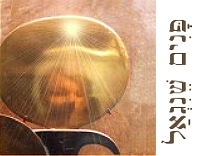
05.13.24 (Iyyar 5, 5784) How do we change? How are we made new? Is it through self-effort? making resolutions? changing our diet or wardrobe? going into counselling? joining a "religion"? Or do we change by the miracle of God's compassionate intervention in our lives? When Yeshua invites us to turn and come to Him, he wants us to awaken to something so valuable that we would be willing to give up everything in the world to take hold of it (Matt. 13:45-46). True spiritual transformation is not just about leaving your sin behind you (as good as that is), but is rather about discovering the glory of true and infinite life. It's about being the beloved. May the Lord help us see...
God's love sees the hidden beauty, worth, and value of your life. "Again, the kingdom of heaven is like a merchant in search of fine pearls, who, on finding one pearl of great value, went and sold all that he had and bought it" (Matt. 13:45-46). You may be tempted to identify with the merchant and regard this parable as a challenge to give up everything to obtain the surpassing worth of the kingdom of heaven, but another way to understand it is to see God as the Merchant, the central character of the story.... Instead of you paying the great price for the pearl, turn the story around: God pays the price - and you are regarded as His choice pearl! You are a treasured possession, the "apple of God's eye..."
Hebrew Lesson
Psalm 17:15 Hebrew reading (click):
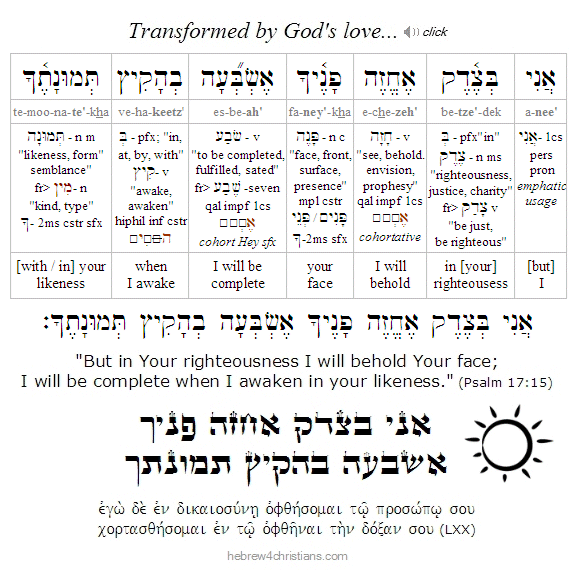
We are changed by the power of unconditional love, but this means that we must allow ourselves to be loved without attempting to earn it (Rom. 4). If we are willing to receive love only if we regard ourselves as worthy or deserving of it, then we will reinforce the illusion that love can be bought, explained, or owed to us based on our merit.
Have you discovered the glory and wonder of God's unconditional love, despite the many sins and the shame of your life? Do you know "in your gut" that his love means no longer having to defend or explain yourself? God's love enables you to quit hiding what you really are from Him; you can give up the pretense of being something you're not. When you turn to the Lord in the transparency of your brokenness, weakness, and neediness, you will find Him there, accepting you for who you really are...
That's the message of gospel, after all. The cross of Yeshua is the end of "self improvement" projects, and that includes the "end of the law" as the means of attempting to find our acceptance before God (Rom. 10:4). We come to know God's love and acceptance "apart from the law," that is, despite our repeated failures, pain, and loss of the false self. We are truly changed as we disclose more and more of what we really are to God, that is, when we come "out of the shadows" to be made visible and healed before His glorious Presence. Then we discover the "lightness" of being united to the risen Messiah and the "law of the Spirit of life in Yeshua (תּוֹרַת רוּחַ הַחַיִּים בְּיֵשׁוּעַ). May God work within us all such a miracle!
Stealing the Mind (גְּנֵבַת דַעַת)
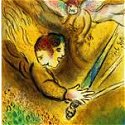
05.13.24 (Iyyar 5, 5784) It is written in our Torah: "You shall not put a stumbling block before the blind (לִפְנֵי עִוֵּר לא תִתֵּן מִכְשׁל); you shall fear God; I am the LORD" (Lev. 19:14). Just as no one can deny the validity of logic by means of logical argument, so no one can intelligibly deny that truth is necessary... Indeed, every person intuitively believes that truth exists, since otherwise he or she would not ask any questions or make any statements. In other words, we instinctively presuppose the value and reality of truth whenever we communicate, and we understand that there is an implied social contract to be honest and not to deceive others. Deceitful language puts a "stumbling block before the blind" when it is used to withhold important information from others. Politicians who make mutually exclusive promises to different groups of people are dishonest and cloak their true intentions. The same may be said about people who sell their products or services using misleading claims.
Those who willfully misdirect others violate the ninth commandment not to bear false witness (Exod. 20:16; 23:1). Such deception is called "genevat da'at" (גְּנֵבַת דַעַת), or "stealing of the mind," since it defrauds another person's thinking. Misleading people is a violation, then, of both the commandment not to steal and the commandment not to bear false witness.
The Torah warns us never to exploit other people's vulnerability or to take advantage of their good will and trust. Those who use false words and deceitful language to blind the eyes of the gullible will assuredly face judgment, as it is written: "No creature is hidden from God, but everything is naked and exposed to the eyes of him to whom we must render an account" (Heb. 4:13). Lying to others is desecration, profanity, and ultimately a form of violence. As Martin Buber once said, "What is accomplished through lies can assume the mask of truth; what is accomplished through violence can go in the guise of justice, and for a while the hoax may be successful. But soon people realize that lies are lies at bottom, that violence is violence - and that both lies and violence will suffer the destiny history has in store for all that is false."
Those who cause others to stumble will tragically discover that truth will be a stumbling block to them. May God help us to fear Him and to be yashar – upright in our communication with others. Therefore may each of us proclaim: "I have chosen the way of truth; I have set your judgments before me" (Psalm 119:30; also 2 Tim. 2:19).
דֶּרֶךְ־אֱמוּנָה בָחָרְתִּי
מִשְׁפָּטֶיךָ שִׁוִּיתִי
de'·rekh · e·moo·nah · vah·char'·tee
meesh·pah·te'·kha · sheev·vee'·tee

"I have chosen the way of truth;
I have set your judgments before me." (Psalm 119:30)

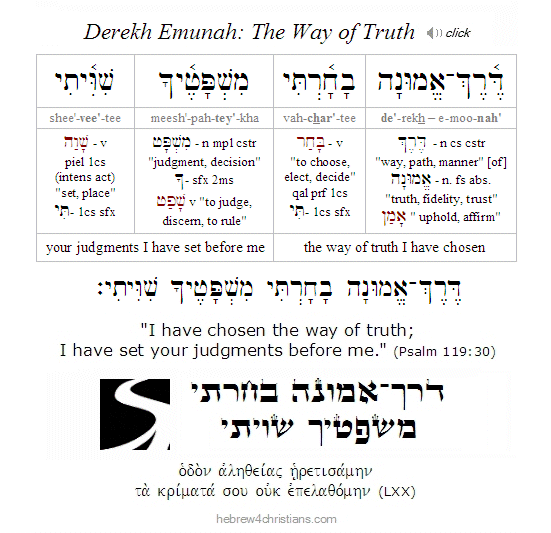
Parashat Emor - אמור
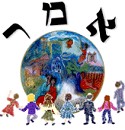
05.12.24 (Iyyar 4, 5784) Our Torah portion this week (parashat Emor) lists the eight main holidays explained in the Jewish Scriptures. In the Torah, these "holidays" are called "appointed times" (i.e., mo'edim: מוֹעֲדִים), a word which comes from the Hebrew root meaning "witness" (עֵד). Other words from this root include edah (עֵדָה), a "congregation," edut (עֵדוּת), a "testimony," and so on. The related verb ya'ad (יָעַד) means "to meet," "to assemble," or even "to betroth." The significance of the holy days, then, is for the covenant people of the LORD to bear witness to God's love and faithfulness. As it is written:
כל־ארחות יהוה חסד ואמת
לנצרי בריתו ועדתיו
kohl - ohr·khot · Adonai · che'·sed · ve·e·met
le·noh·tze·rei · ve·ree·toh · ve·ei·doh·tahv

"All the paths of the LORD are compassion and truth
to those keeping his covenant and his testimonies."
(Psalm 25:10)

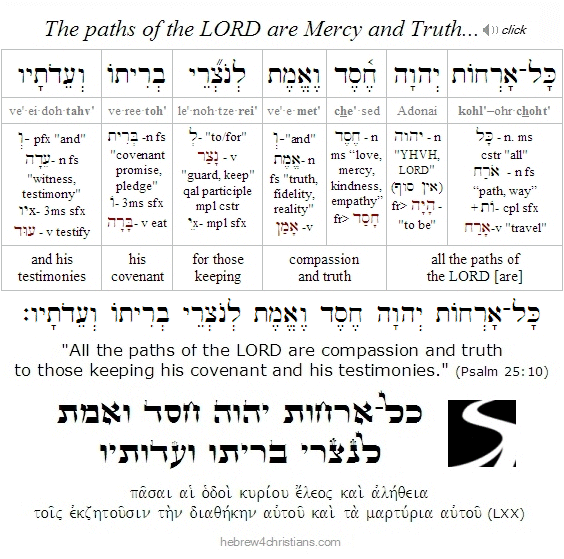 |
Metaphorically the "paths of the Lord" (i.e., orechot Adonai: ארחות יהוה) are likened to ruts or grooves created by the wheels of a caravan (i.e., orechah: ארְחָה) passing repeatedly over the same ground. These paths signify the Divine Presence journeying with God's children in this world. In temporal terms, we are able to discern the path by means of the divine calendar. God's love and faithfulness attend to His covenant (brit) and to the commemorations of the yearly "appointed times" that testify of God's faithful love. Keeping God's testimonies, then, means that we will be careful to observe the holidays in order to witness to God's truth...
"Speak to the people of Israel and say to them, 'These are the appointed times of the LORD (מוֹעֲדֵי יְהוָה) that you shall proclaim as holy convocations (מִקְרָאֵי קדֶשׁ); they are My appointed times'" (Lev. 23:2). Note that these hallowed times - the very first of which is the weekly Sabbath - are "of the LORD," and that means they should be regarded as appointments given by God Himself to help draw us closer to Him, to reveal His prophetic truth, and to remind ourselves of His great plan for our lives. God did not give us the Torah in vain, friends, neither does He speak out of two sides of his his mouth... Yeshua was the Voice of the LORD speaking the words of Torah to Israel at Sinai, and therefore every "jot and tittle" (קוֹצוֹ שֶׁל יוֹד) is indeed relevant to our lives as his followers (Matt. 5:18-19).
God's "Super Sign" of Israel...
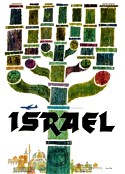
[ Yom Ha'aztmaut is observed on Iyar 6th, which begins Monday, May 13th at sundown and runs through the following day until sundown... ]
05.10.24 (Iyyar 2, 5784) After the Jewish people had suffered for nearly 2,000 years of exile as foretold by Spirit of God to Moses (see Lev. 26:38, 44; Deut. 28:64-64) and the other Hebrew prophets (Isa. 43:5-6; Jer. 30:11; Joel 3:2; Ezek. 36:8-10; Hos. 9:1-10, etc.), Israel was miraculously reborn as a nation in their ancient homeland on May 14, 1948 (Iyyar 5, 5708). Today Jews across the world celebrate Iyyar 5 as Israeli Independence Day (this year we observe it earlier to so it will not fall on the Sabbath).
Israel's Independence Day is called Yom Ha'atzma'ut (יום העצמאות), the "day of independence." In Hebrew, the word independence (atzma'ut) comes from atzmi - "my bones" (i.e., etzem: עֶצֶם), so the name itself alludes to God's glorious promise to revive the "dry bones" (עֲצָמוֹת) of Israel by bringing the Jewish people back from their long exile during the End of Days (Ezek. 37:1-6). "Son of man, can these bones live?"
Hebrew Lesson
Ezekiel 37:3a Hebrew reading (click):
This is all remarkable, but why should Christians care about ethnic Israel? After all, many Christian denominations advocate some version of "Replacement Theology" and regard the promises God originally made to the Jewish people as belonging exclusively to their church... The existence of the modern State of Israel therefore evokes little thanks to God from these groups, and some of their ranks even regard Israel's revived presence on the world stage as an embarrassment to their typically "liberal" theology. Hence we see the (remarkably bad) phenomena of so-called "Christian" church denominations that express anti-Israel sentiment, even asking their followers to divest investments in Israel on behalf of the "Palestinians," etc.
As I mentioned before, the title "Christ" refers to the anointed King of Israel, the Mashiach (מָשִׁיחַ)... To confess "Jesus is the Christ" is therefore to affirm that He is none other than the Messiah, the rightful King of Israel (מֶלֶךְ יִשְׂרָאֵל). Followers of Jesus, the One born "King of the Jews" (Matt. 2:2), should therefore care deeply about Israel because the existence of Jewish people - and of the nation of Israel in particular - demonstrates that the LORD (יהוה) is completely faithful to the covenant promises He made to our patriarchs (e.g., Gen. 15:9-21). Indeed, the Scriptures teach that the Name of God is forever designated as אלהי אברהם אלהי יצחק ואלהי יעקב - "the God of Abraham, the God of Isaac, and the God of Jacob" (Exod. 3:15), just as it is also the "LORD God of Israel" (יְהוָה אֱלהֵי יִשְׂרָאֵל). The perpetuity of the Jewish people - despite so much satanic hatred over the millennia - is an awesome testimony of God's loyal love (Jer. 31:35-37). עַם יִשְׂרָאֵל חַי / am Yisrael chai: "The people of Israel live!" Israel is a sign of the "sure mercies of David" (חַסְדֵי דָוִד הַנֶּאֱמָנִים) that are revealed in Yeshua, the Jewish Messiah (Isa. 55:1-6). Moreover, the New Covenant itself, as foretold by the prophet Jeremiah, explicitly promises the perpetuity of the Jewish people throughout the ages:
Behold, the days are coming, declares the LORD (יהוה), when I will make a new covenant (בְּרִית חֲדָשָׁה) with the house of Israel and the house of Judah, not like the covenant that I made with their fathers on the day when I took them by the hand to bring them out of the land of Egypt, my covenant that they broke, though I was their husband, declares the LORD. But this is the covenant that I will make with the house of Israel after those days, declares the LORD: I will put my Torah (תּוֹרָה) within them, and I will write it on their hearts. And I will be their God, and they shall be my people. And no longer shall each one teach his neighbor and each his brother, saying, 'Know the LORD,' for they shall all know me, from the least of them to the greatest, declares the LORD. For I will forgive their iniquity, and I will remember their sin no more."
Thus says the LORD, who gives the sun for light by day and the fixed order of the moon and the stars for light by night, who stirs up the sea so that its waves roar - the LORD of hosts is his Name: "If this fixed order departs from before me, declares the LORD, then shall the offspring of Israel (זֶרַע יִשְׂרָאֵל) cease from being a nation before me forever." Thus says the LORD: "If the heavens above can be measured, and the foundations of the earth below can be explored, then I will cast off all the offspring of Israel for all that they have done, declares the LORD. (Jer. 31:31-37)
According to this theologically critical passage, if you saw the sun shine today or the stars in the night sky, you can be assured that God's promise to preserve the "offspring of Israel" -- (i.e., zera Yisrael: זֶרַע יִשְׂרָאֵל) -- is in effect. Indeed, in the world to come, heavenly Jerusalem will have the names of the twelve tribes of Israel engraved upon its gates (Rev. 21:12). Note well that this is the only occurrence in the entire Tanakh (i.e., "Old Testament") that the "New Covenant" (בְּרִית חֲדָשָׁה) is explicitly mentioned... It is a foundational passage of Scripture for those who claim to be followers of the Jewish Messiah.
The spiritual blessings Christians enjoy come from the root of God's covenants with Israel (Eph. 2:11-22; Eph. 3:6; Col. 1:12; Gal. 3:29, 2 Pet. 1:4). Yeshua our Savior was born the King of the Jews, and he plainly said הַיְשׁוּעָה מֵאֵת הַיְּהוּדִים הִיא- "salvation is from the Jews" (Matt. 2:2; 27:11; John 4:22). The Apostle Paul clearly warned those who think the church has "replaced" Israel: "Remember it is not you who support the root, but the root that supports you" (Rom. 11:18). This doctrine is so foundational that it may be rightly said that how you think about Israel will affect every other area of your theology. Indeed, the nation of Israel is God's "super sign" that He is faithful to His covenant promises (Jer. 31:35-37). Celebrating Israel's existence acknowledges God's loyal love for us all! For more on this subject, see the article, "Is Christianity Anti-Jewish?"
In the holy Torah we read how God said to Moses, "Say this to the people of Israel, 'The LORD, the God of your fathers, the God of Abraham, the God of Isaac, and the God of Jacob (אלהי אברהם אלהי יצחק ואלהי יעקב), has sent me to you.' This is my name forever, and thus I am to be remembered throughout all generations'" (Exod. 3:15).
Hebrew Lesson
Exod. 3:15b Hebrew reading (click):
Amen, the LORD alone is our King, our Savior, and our Healer forever and ever (Isa. 45:22). "Your Name, O LORD, endures forever, your renown, O LORD, throughout all ages" (Psalm 135:13). Therefore the prophet cries: "in the east give glory to the LORD; in the coastlands of the sea, give glory to the Name of the LORD, the God of Israel" (Isa. 24:15).
Hebrew Lesson
Psalm 135:15 Hebrew reading (click):
The Olive Tree Israel...

[ Israeli Independence day (i.e., Yom Ha'atzmaut: יוֹם הָעַצְמָאוּת) begins Monday, May 13th at sundown and runs through the following day. Praise God for Israel. עם ישראל חי ]
05.10.24 (Iyyar 2, 5784) Do you have a Jewish heart? If you say that you love the "LORD God of Israel" (יהוה אֱלהֵי יִשְׂרָאֵל) -- and it's clear that the LORD God of Israel loves the Jewish people -- it follows that you likewise will love the Jewish people (see Deut. 7:6-8; 14:2; 2 Sam. 7:23-24; 1 Kings 8:53; 10:9; 1 Chron 17:20-21; Isa 43:1-3; Jer. 31:31-37; Ezek. 36:24-28; Rom. 11:1-2;11:28; Hos. 11:1-11, etc.). After all, the LORD Yeshua is called מֶלֶךְ הַיְּהוּדִים / melech ha-Yehudim: the "King of the Jews" (Matt. 2:2, 27:11, etc.), and the very term "Mashiach" [i.e., "Christ"] is a regal term denoting the anointed King of Israel.
Christians who pray to "Jesus Christ" are really praying to Yeshua as the anointed King of the Jews... And one day (very soon) Yeshua will indeed return to Jerusalem, the "City of the Great King" (Matt 5:35), to assume the throne of David and complete the redemption originally promised to the Jewish people (Zech. 12:1-13:1; 14:1-9, Ezek. 37:12-14, etc.). God will prove faithful to ethnic Israel, friends, and to deny this is to radically question God's faithfulness to the "Church." Indeed, let me say this as plainly as I can: Churches or teachers who claim that God has abandoned ethnic Israel are directly impugning the credibility of the Gospel message itself. Yes, it's that serious of an issue...
Note the verse that says, "I will bless those who bless you, but the one who discounts you will be cursed" (Gen 12:3). Why is this the case, chaverim? The answer is found in the second half of the verse: "For in you all the families of the earth shall be blessed" [i.e., through the advent of your Seed, the Messiah]. We cannot impugn the promises of God given to the Jewish people without likewise impugning God's promises given to us in Messiah. To say that God is "done with the Jewish people," or to consign them to a dark fate, is to disregard them, to curse them, and that results in reciprocal judgment from heaven.
Hebrew Lesson
Genesis 12:3a reading (click):
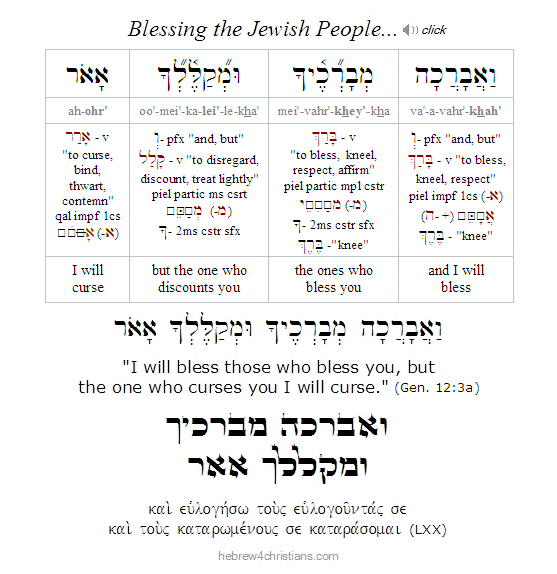 |
The physical descendants of Abraham are called בָּבַת עֵינוֹ (bavat eino), the "pupil of God's eye" (Zech. 2:8), a term of endearment that the LORD uses for no other nation on earth. Indeed the very habitations of the nations were established based on the number of the children of Israel (see Deut. 32:8). The Scriptures declare that the LORD will never abandon His original covenant people but will yet choose them for His Name's sake (Isa. 14:1).
The church has not replaced Israel in God's redemptive plan but is blessed to be "grafted in" to the original "root" of Israel. "Remember," Rabbi Paul warns, "it is not you who support the root, but the root supports you" (Rom. 11:18). "Blessed be the LORD God of Israel from everlasting to everlasting! And let all the people say, 'Amen, hallelujah!'" (Psalm 106:48).
Note: Please don't regard the "curse" mentioned in Genesis 12:3 to suggest that God is somehow vindictive, prejudicial, petty, etc. No, the reason the curse befalls those who reject God's plan for Israel is because Israel was the means God chose to bring salvation to the world: Yeshua was born the King of the Jews who came to ransom all those who trust in him - both Jewish and non-Jewish - from the curse of spiritual death (Gal. 4:4, Rom. 3:2, John 4:22).
The reason God can't bless people who hate the Jewish people or Israel is because that would mean he would bless those who hate the truth, who spurn salvation, and who love darkness... The same God who promises us life and healing in Yeshua is the one who promised never to cast of Israel or to eternally disown the Jewish people. To paraphrase C.S. Lewis, God cannot give us a good apart from himself, since there literally is no such thing.
Hebrew Lesson
Psalm 106:48a reading with commentary (click):
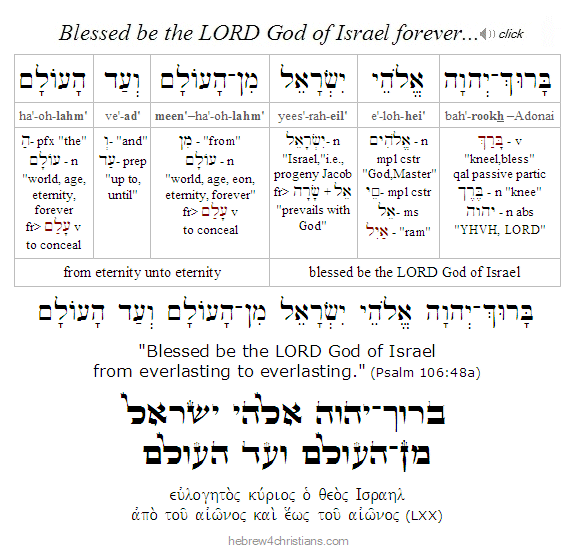 |
Related Topics:
Forsake me not, O LORD...
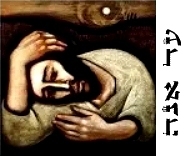
05.09.24 (Iyyar 1, 5784) Though it is true that God will never leave nor forsake us, he nevertheless allows trouble in our lives so that we will learn to call upon him and know his heart (1 Pet. 1:5-9). For how else will we understand the truth of our great need for him, and how else his great provision?
"Blessed are the poor in spirit," describes the poignant awareness of our inner poverty, our bankruptcy of heart, the destitution of our condition (Matt. 5:3). We cry inwardly, "Forsake me not, O LORD: O my God, be not far from me" (Psalm 38:21) because we realize our need for deliverance from ourselves; we understand that we cannot take a step in his way apart from his upholding. "Hold thou me up, and I shall be safe: and I will have respect unto thy statutes continually" (Psalm 119:117).
"Forsake me not, O LORD," is the mantra in our darkness, the antiphon of God's promised Presence, despite the present darkness; it is the cry of the heart that knows that only God can get us through the next moment and its temptation to despair. "Forsake me not, O LORD, lest I be swallowed up by my pain, my fear, my sadness, my anguish of heart; Forsake me not, O LORD, for I am nothing but the anguish of the moment, the sorrow of loneliness, the fear of my own heart as I tremble before you in my desperation; O forsake me not, O LORD."
O precious Savior, You came to heal the sick; you spoke life to those who are without strength or remedy; you came to seek the lost, to find those who are without a place or sense of belonging in this world. O Lord, you know that without you I can do nothing; you know that I am weak, poor, and needy; my path is perilous and I have no hope apart from you. Be not far from me; do not leave me to my own devices nor the counsel of my own soul. Save me, O God, for the glory of your Name; be magnified in your heart of love and faithfulness. Amen.
Hebrew Lesson
Psalm 38:21 reading (click):
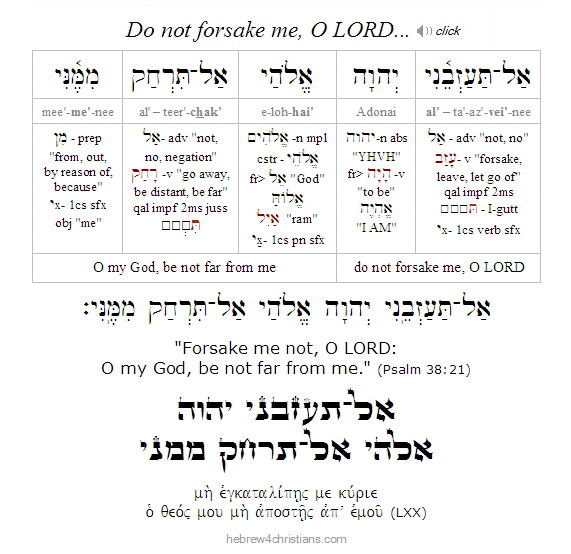 |
The Goal of Holiness....
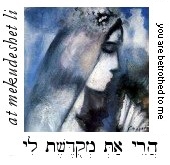
05.09.24 (Iyyar 1, 5784) In our Torah portion for this week (Kedoshim) we read: "Speak to all the congregation of the people of Israel and say to them, 'Be holy as I the LORD your God am holy'" (Lev. 19:2). This doesn't mean wrapping ourselves up in some protective cloak of religious rituals as much as it means accepting our own atonement: reconciling who we are with our past, finding healing and love, and walking in genuine hope...
Holiness isn't as much "separation" from the profane as it is "consecration" to the sacred, and in that sense it is a kind of teshuvah, a turning of the heart back to reality.... Negatively put, "being holy" is turning away from fear, despair, and anger; positively put, it is embracing the worth and value of life, respecting the Divine Presence, and walking in the radiance of God's love. Amen, let is be so. Hashivenu Adonai....
Hebrew Lesson:
Lam. 5:21 reading (click):
|

































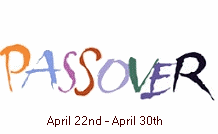

![Spring Holiday Timeline (H4C]](../../../../About_HFC/Site_News/Archive-2024/roshchodeshim-line.gif)
